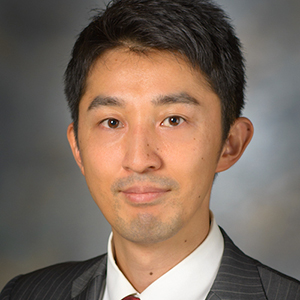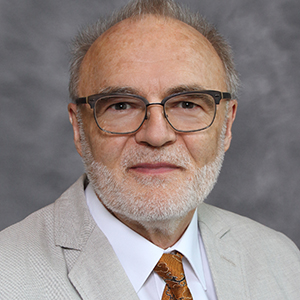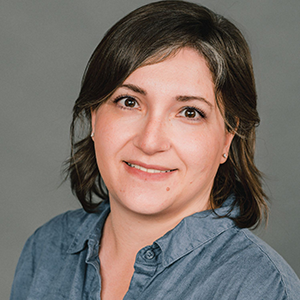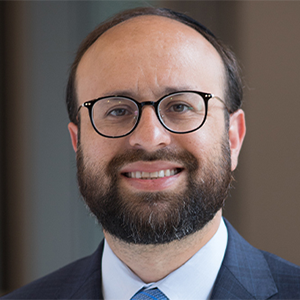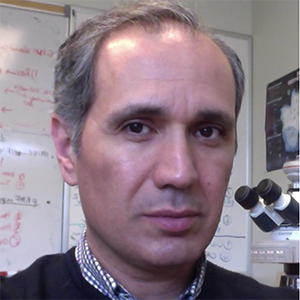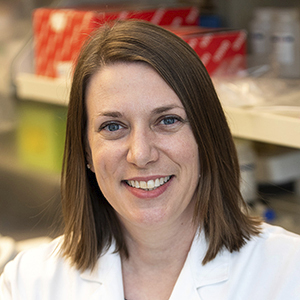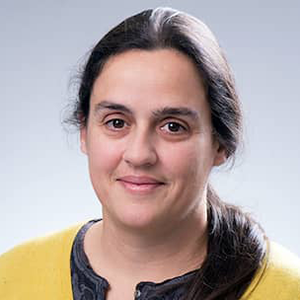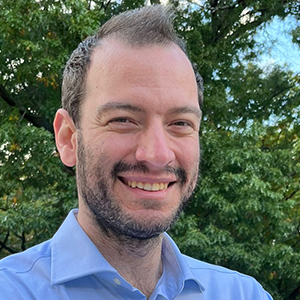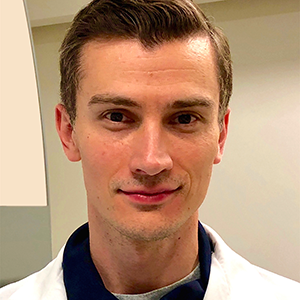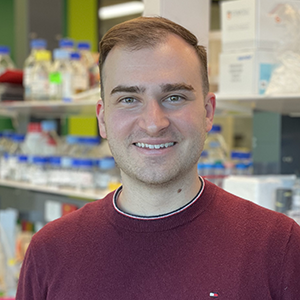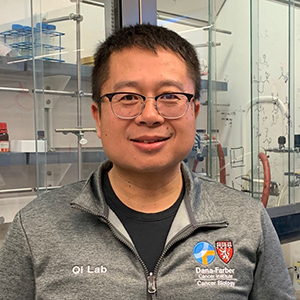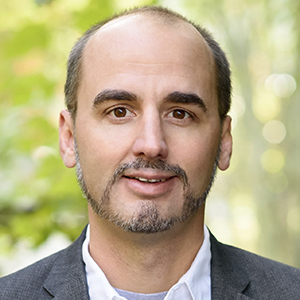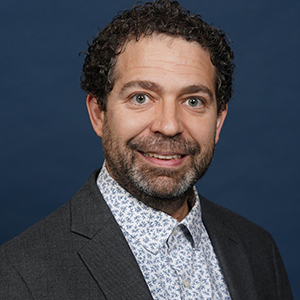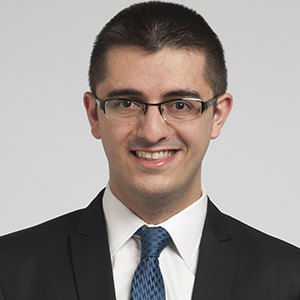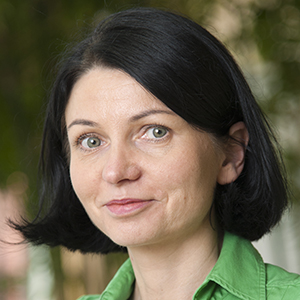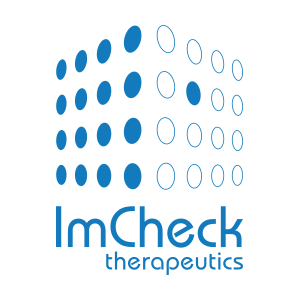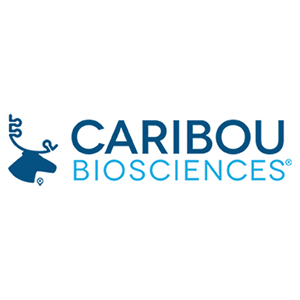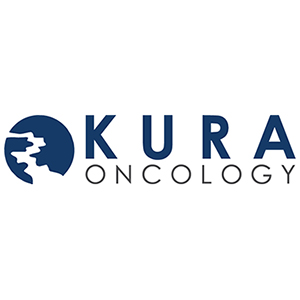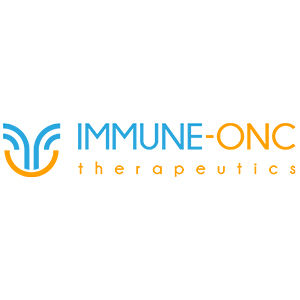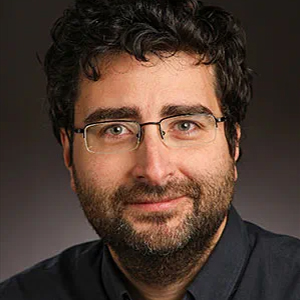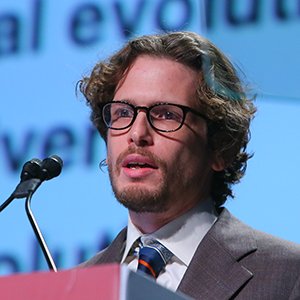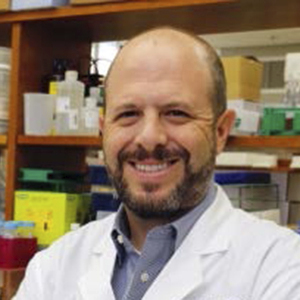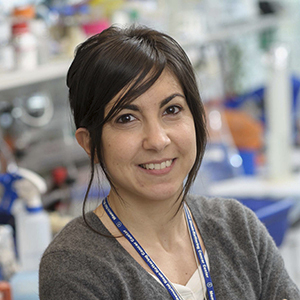Research We Fund
With hundreds of projects currently underway, we fund scientists through our academic grant programs and biotech partners through our strategic venture philanthropy initiative. Use the filters below to find an LLS-funded project.
For a better viewing experience, please use a larger device.
A phase 1 study of AUTX-703, a KAT2A/B degrader, in patients with AML or MDS
In June 2025, LLS made an equity investment in Auron Therapeutics to "Support Clinical Development of AUTX-703 in Relapsed/Refractory AML and MDS."
Auron Therapeutics is a platform-powered company targeting cell-state plasticity to improve patient outcomes in oncology and inflammatory disease. Auron pioneered its AURIGIN platform, which uses AI and machine learning to compare cell states and identify novel drug targets, optimal development models, and biomarkers to facilitate proper patient selection, ultimately accelerating the development of effective and durable therapies.
Leveraging its AURIGIN platform, KAT2A/B was identified as a key driver of cell plasticity and disease. AUTX-703 is a first-in-class, oral KAT2A/B degrader and is being evaluated in a Phase 1 dose escalation and dose optimization study in patients with relapsed/refractory AML or MDS (NCT06846606).
Program: Therapy Acceleration ProgramProject Term: Start Date: June 25, 2025 End Date: August 8, 2025
REACH: Researching & Enhancing Access to Clinical trials in Veterans with Hematologic cancers
Cancer clinical trials (CTs) provide high-quality care and are important for advancing treatment options, yet most Veterans Administration (VA) facilities do not have CTs available for veterans with blood cancer and face challenges in enrolling veterans on the CTs that do exist. With an innovative, multi-faceted approach to supporting VA research teams as well as educating and assisting veterans, this study will address barriers at the institutional, clinician, and patient levels to increase enrollment of veterans with blood cancer on CTs.
Program: Equity in AccessProject Term: Start Date: July 1, 2025 End Date: June 30, 2030
The Collaboration and Infrastructure Program for Diversifying Blood Cancer Clinical Trials
This study will evaluate the effectiveness of two integrated initiatives aimed at enhancing enrollment of minoritized patients in blood cancer clinical trials. The first initiative aims to increase access to trials by utilizing procedures and technology that facilitate referral of patients from community sites of care to an academic cancer center, fostering physician collaboration, and supporting patient navigation. The second initiative seeks to lower trial design-related barriers at the cancer center through equity-focused alterations to the trial development infrastructure and processes combined with a comprehensive staff engagement strategy.
Program: Equity in AccessProject Term: Start Date: July 1, 2025 End Date: June 30, 2030
Defining ctDNA monitoring and immune modulation in a novel, risk stratified clinical trial for PTLD
Posttransplant lymphoproliferative disorders (PTLD) are a group of lymphomas that arise during immunosuppression following organ transplantation and are a significant source of morbidity and mortality. PTLD remains challenging to treat due to disease heterogeneity, patient comorbidities, the risk of infectious complications, and organ rejection. The goals of this proposal are to (1) study the therapeutic efficacy and safety of dose modified R-EPOCH in High-Risk PTLD patients; (2) determine the utility of ctDNA defined molecular response as a novel risk-stratification biomarker in PTLD; (3) understand the impact of immune-suppression on T cell function, T cell receptor diversity, and the detection of oncoviruses. The overall goal is to reduce morbidity and identify novel biomarkers for personalized precision treatment decisions to improve survival in this devastating disease.
Program: Academic Clinical Trials Program (ACT)Project Term: Start Date: February 1, 2025 End Date: January 31, 2028
Cellular and genetic drivers of Cutaneous γδ T-cell lymphomas (PCGDTL)
Primary cutaneous γδ T-cell lymphoma (PCGDTL) is a rare type of lymphoma caused by the rare types of T-cells called γδ T-cells (most T cells in our body in αβ T-cells). The disease usually shows symptoms in the skin, thus it is also considered a rare type of skin cancer. The disease is very aggressive. After diagnosis patients may die within 3 months. Only about 10% patients are alive after 5 years. However, little is known about the disease. For the last two decades, most knowledge has been generated with a handful of patient samples. More research is needed, which may lead to discovery of new treatments for PCGDTL patients.
Program: Student Mentorship and Research Training (SMART)Project Term: Start Date: July 1, 2024 End Date: June 30, 2025
Mechanisms of Inducing differentiation in CBFA2T3-GLIS2 positive AML
AMKL is a rare leukemia that largely affects infants and toddlers. Of the various subtypes of this disease, CBAF2T3-GLIS2 positive AMKL has proven particularly difficult to treat with traditional cytotoxic chemotherapies and bone marrow transplantation with dismal outcomes. The objective of this study is to investigate protein dependencies in CBAFT2T3-GLIS2 fusion positive AMKL to identify new, and desperately needed, drug targets.
Program: Student Mentorship and Research Training (SMART)Project Term: Start Date: July 1, 2024 End Date: June 30, 2025
A Decentralized Randomized High-Fiber Dietary Trial to Improve Outcomes in Newly Diagnosed Myeloma
We will conduct a decentralized randomized controlled trial of a high-fiber plant-based dietary intervention among patients with multiple myeloma undergoing induction chemoimmunotherapy. The study will assess whether the intervention (meals and virtual coaching) leads to improved rates of complete response, and quality of life mediated by improvements in weight and insulin resistance. The study is expected to provide rigorous evidence of the effectiveness of this intervention in patients with newly diagnosed multiple myeloma and support the development of low-cost, minimal-risk nutrition as a strategy to improve cancer treatment outcomes.
Program: Academic Clinical Trials Program (ACT)Project Term: Start Date: March 1, 2025 End Date: February 29, 2028
A phase 1 study of STX-0712, a CCR2-CyTAC monocyte depletor, in patients with CMML
In December 2024, LLS made an equity investment in Solu Therapeutics to "Support Preclinical and Clinical Development of STX-0712 in hematological malignancies, primarily in CMML."
Solu Therapeutics is a biotechnology company dedicated to developing next-generation therapeutics to eliminate disease-driving cells in cancer, immunology and other therapeutic areas. The company’s proprietary CyTAC (Cytotoxicity Targeting Chimera) and TicTAC (Therapeutic Index Control Targeting Chimera) platforms enable the development of innovative medicines that combine the target-binding capability of small molecules with the therapeutic power of biologics.
STX-0712 is a CyTAC targeting the GPCR CCR2, which is a selective marker expressed at high levels on pathogenic monocytes. Pathogenic monocytes expressing CCR2 have been shown to be the key drivers in some hematological malignancies. A Phase 1 trial is ongoing to assess the safety and efficacy of STX-0712 in patients with advanced CMML (NCT06950034).
Program: Therapy Acceleration ProgramProject Term: Start Date: December 18, 2024 End Date: August 8, 2025
Translating molecular profiles into treatment approaches to target disparities in lymphoma
Although many patients with diffuse large B-cell lymphoma (DLBCL) are cured with standard therapy, others will die from their disease. Survival is significantly worse for African American (AA) patients and those with Epstein- Barr virus (EBV), which is common in patients from Latin America. The reasons behind these poor outcomes are not well understood, in part because most studies of molecular features in lymphomas have not included enough patients from these racial and ethnic groups.
Lymphoma tumors include not just the cancer cells themselves, but also surrounding cells and proteins that help the cancer cells survive. To understand why AA DLBCL patients and those with EBV have worse outcomes, we will look at differences in genes and tumor make-up in a large collection of DLBCL samples with good representation of these patient groups. Our goal is to find the factors most important to target with new treatments to improve survival for AA and EBV+ patients. We will also build innovative models of DLBCL in the lab to (1) discover how tumor make-up and gene changes affect tumors’ response to treatment, and (2) test new therapies designed to benefit AA DLBCL patients and patients with EBV-associated DLBCL.
Overall, our LLS SCOR Program seeks to bridge the knowledge gap in molecular features of DLBCL in underrepresented populations, and fast-track development of novel targeted therapies that can improve outcomes for these vulnerable patients.
Program: Specialized Center of Research ProgramProject Term: Start Date: October 1, 2024 End Date: September 30, 2029
Understanding Leukemia in Children with Down Syndrome to Develop Better Therapies
This Specialized Center of Research is focused on identifying the contributions of chromosome 21, which is present in three copies in individuals with Down syndrome (DS), to acute leukemia. Children with DS are at a 20-fold increased risk of leukemia compared to the overall pediatric population and frequently have other health issues that complicate leukemia treatment. Although acute myeloid leukemia in children with DS (ML-DS), which frequently evolves from transient abnormal myelopoiesis (TAM), has a better outcome than acute myeloid leukemia (AML) in children without DS, those who relapse following treatment face an extremely poor prognosis. Similarly, children with DS who develop B-ALL have a worse prognosis than those without DS due to excessive treatment-related mortality and increased risk of relapse. Our overarching, united goal is to develop novel therapies to cure DSassociated leukemias and to reduce the side effects of treatment in this vulnerable population. In addition to children with DS, our study has major implications in other cases of pediatric and adult leukemias. For example, chromosome 21 amplification is one of the most significant gains in several classes of malignancies, including certain subtypes of AML, hyperdiploid ALL, and iAMP21. Amplification of chromosome 21 is also a feature of the acute leukemia phase of a disease named myelofibrosis. Therefore, insights we gain from this research will impact a large group of patients with acute leukemia.
Program: Specialized Center of Research ProgramProject Term: Start Date: October 1, 2024 End Date: September 30, 2029
Genomic and epigenomic interactions of complex structural variants affecting outcome in multiple myeloma
Multiple myeloma is characterized by severe changes in chromosomes that result in gains or losses of genetic material. Several key events disrupt the genome of myeloma cells and are important in defining poor patient outcome, but the biological mechanisms of how they cause high-risk disease is not known. We will perform comprehensive genomic studies, involving six different cutting-edge techniques, to examine the interactions of these high-risk events and identify the mechanisms leading to them.
Program: DiscoveryProject Term: Start Date: October 1, 2024 End Date: September 30, 2027
Targeting aberrant epigenetic condensates in myeloid malignancies
Genetic changes of ASXL1 are very frequent in human blood cancers. We found that the altered forms of ASXL1 protein promote blood cancers through forming tiny liquid-like droplets in the cell. In this project, we aim to develop a method to specifically break these droplets to inhibit its activity in driving blood cancers.
Program: DiscoveryProject Term: Start Date: October 1, 2024 End Date: September 30, 2027

Craig Jordan, PhD
University of Colorado Denver, Anschutz Medical Campus
Aurora, ColoradoModeling LSC heterogeneity at unprecedented resolution in AML
Our goal is to perform high-resolution molecular characterization of human leukemia stem cells (LSCs). We have developed an integrated set of single-cell techniques that will assess transcriptional, genomic, and phenotypic features of primary LSC populations obtained from patients undergoing varying forms of treatment. We expect to create a molecular atlas of primary LSCs that will provide the leukemia research community with a powerful resource for the development of improved therapies.
Program: DiscoveryProject Term: Start Date: October 1, 2024 End Date: September 30, 2027
Targeting Microenvironment Determinants in Peripheral T-cell Lymphoma
Peripheral T-cell lymphomas are highly aggressive blood cancer that have very poor survival rate, highlighting the need for new therapies to improve patient survival. We aim to improve our understanding of the characteristics of the individual cancer cells and their interaction with surrounding cells in the tumor environment with the goal of identifying new drugs that we can validate in preclinical models and move into more efficient treatments for lymphoma patients.
Program: DiscoveryProject Term: Start Date: October 1, 2024 End Date: September 30, 2027
Defining mechanisms of sensitivity and resistance to PI3K gamma inhibition in AML
The goal of our laboratory is to discover, study, and the translate new leukemia therapies to the clinic. In this project, we are studying a signaling pathway, called PI3 kinase gamma, that we believe is important in patients with AML and might lead to new treatments using drugs that target its activity.
Program: DiscoveryProject Term: Start Date: October 1, 2024 End Date: September 30, 2027
Interrogating T-cell apoptotic priming to improve CAR-T persistence in treatment of lymphoid malignancies
CAR-T cells are made from a patient’s own immune cells, altered so that they specifically recognize and kill the patient’s cancer cells. They are effective in many but not all cases of B-acute lymphoblastic leukemia (B-ALL) and diffuse large B-cell lymphoma (DLBCL), among other blood cancers. In this proposal we seek to better understand ways to select T cells that will make better CAR-T cells as well as to treat CAR T cells them in ways to make them work better in the cancer patient.
Program: DiscoveryProject Term: Start Date: October 1, 2024 End Date: September 30, 2027
A phase 2 study of RVU120, a novel CDK8 inhibitor, in patients with myelofibrosis
In August 2017, LLS TAP partnered with Ryvu Therapeutics (formerly known as Selvita) to support "A Phase 1b Study of SEL120 in Patients With Acute Myeloid Leukemia or High-risk Myelodysplastic Syndrome."
Ryvu Therapeutics is a clinical-stage drug discovery and development company focusing on novel small molecule therapies that address emerging targets in oncology using a proprietary discovery engine platform.
RVU120 (SEL120) is a highly selective first-in-class CDK8/CDK19 small molecule inhibitor. Ryvu is currently enrolling several Phase 2 clinical trials: RVU120 in combination with venetoclax for patients with relapsed/refractory AML (RIVER-81, NCT06191263), RVU120 as monotherapy for patients with low-risk myelodysplastic syndromes (REMARK, NCT06243458) and RVU120 as monotherapy and in combination with ruxolitinib for patients with myelofibrosis (POTAMI-61, NCT06397313).
Program: Therapy Acceleration ProgramProject Term: Start Date: August 17, 2017 End Date: August 8, 2025
Epigenetic Mechanisms and Targeting in Hematological Malignancy
Blood cancers can be caused by aberrant regulation of genes that control cell growth and development. The root cause of this problem may be the presence of mutant regulator proteins in the cell and abnormal switching on or off of target genes. Our SCOR studies the molecular basis of this gene deregulation using cell cultured in the laboratory, in human specimen and animal models.
Melnick will study the complex of proteins evolve in looping DNA segments to put gene regulatory sequences in proximity of genes critical for the development of antibody producing B cells. Abnormalities of this apparatus lead to lymphoma. Roeder will study multi-protein complexes involved in “bookmarking” chromatin (the complex of DNA and histones found in the cell nucleus) by chemical modification. He studies the proteins that initiate transcription of DNA into RNA and that assure the passage of the polymerase that creates messenger RNA across genes. Soto-Feliciano studies TRIM28, a protein essential for growth of acute leukemia will identify its mechanisms and target genes. Licht will study the role of chromatin regulators in the response of the immune system to multiple myeloma and how inhibitors of chromatin regulator inhibitors affect the tumor immune response. Patel will study in explore the three-dimensional structures of these protein complexes critical for gene regulation in blood malignancies to understand their mechanisms and develop new small molecules to modulate their action.
Program: Specialized Center of Research ProgramProject Term: Start Date: October 1, 2024 End Date: September 30, 2029
A phase 2 study of RVU120, a novel CDK8 inhibitor, in patients with low-risk MDS
In August 2017, LLS TAP partnered with Ryvu Therapeutics (formerly known as Selvita) to support "A Phase 1b Study of SEL120 in Patients With Acute Myeloid Leukemia or High-risk Myelodysplastic Syndrome."
Ryvu Therapeutics is a clinical-stage drug discovery and development company focusing on novel small molecule therapies that address emerging targets in oncology using a proprietary discovery engine platform.
RVU120 (SEL120) is a highly selective first-in-class CDK8/CDK19 small molecule inhibitor. Ryvu is currently enrolling several Phase 2 clinical trials: RVU120 in combination with venetoclax for patients with relapsed/refractory AML (RIVER-81, NCT06191263), RVU120 as monotherapy for patients with low-risk myelodysplastic syndromes (REMARK, NCT06243458) and RVU120 as monotherapy and in combination with ruxolitinib for patients with myelofibrosis (POTAMI-61, NCT06397313).
Program: Therapy Acceleration ProgramProject Term: Start Date: August 7, 2017 End Date: August 8, 2025
Impact of State Health Insurance Mandates on Affordability and Utilization of Fertility Preservation in Adolescent and Young Adults with Blood Cancers
Fertility preservation (FP) treatments can prevent infertility caused by blood cancer. However, FP costs are high, and these services are typically not covered by insurance, contributing to low utilization. New state laws require insurers to cover FP, but it is unknown if they improve access to care. Using national insurance data, this study will examine how much out-of-pocket costs remain, whether patients’ share of costs is like that of other cancer services, and whether and which types of laws increase use and affordability.
Program: Equity in AccessProject Term: Start Date: July 1, 2024 End Date: June 30, 2027
Enhancing Connection and Communication with Community-Based Oncology Practices to Improve Cancer Clinical Trial Recruitment: The ECCO Study
In collaboration with 10 community-based oncology practice sites, this study will implement a multi-level intervention trial to test the effectiveness of two community oncology strategies designed to increase trial accrual by focusing on a) enhancing the relationship between community oncologists and trial PIs and reducing barriers to referral, and b) an interactive online training focusing on improving community oncologists’ knowledge and attitudes about trials, as well as their ability to discuss clinical trials with their patients.
Program: Equity in AccessProject Term: Start Date: July 1, 2024 End Date: June 30, 2029
Insurance Inequities in Hodgkin Lymphoma Treatment and Survivorship in the Southeast
Black and Hispanic individuals diagnosed with Hodgkin lymphoma (HL) face worse survival rates across all ages. Using an innovative data source, this study will examine differences by insurance status in the receipt and quality of HL treatment in Aim 1 and care engagement and support after treatment (survivorship care) in Aim 2. Using diverse patient voices, this study will characterize and understand how patients make decisions about treatment and survivorship care by insurance type in Aim 3.
Program: Equity in AccessProject Term: Start Date: July 1, 2024 End Date: June 30, 2027
Exploiting Novel Therapeutic Vulnerabilities in Chronic Myelomonocytic Leukemia
The overall objective of this project is to identify novel pathways that may be targeted for therapeutic benefit in CMML. We have identified abnormal inflammation mediated by RSK1 in CMML patient cells, and we hypothesize that RSK1 drives CMML disease development. We thus propose studies to determine how RSK1 contributes to CMML pathogenesis, and to evaluate the therapeutic potential of RSK1 inhibition for CMML patients.
Program: CMML InitiativeProject Term: Start Date: November 1, 2023 End Date: October 31, 2026
RECONNECT: Overcoming Racial and Ethnic Inequity in Clinical Trial Enrollment via Clinical Trial Nurse Navigation and Provider Communication Training
This study will implement a skill-based didactic course for providers to improve the quality of communication around structural racism, mistrust, implicit biases, and clinical trial counseling. This study will also implement a culturally competent, specialized clinical trials nurse navigation program that connects patients to educational resources around clinical trials and standardizes pre-screening for new patients prior to the initial clinic visit.
Program: Equity in AccessProject Term: Start Date: July 1, 2024 End Date: June 30, 2029
A phase 1 study of DR-0201, a bispecific myeloid engager, in patients with B-NHL
In November 2022, LLS made an equity investment in Dren Bio to "Support Clinical Development of the DR-01 Program for Rare Leukemia & Lymphoma Indications Including Large Granular Lymphocyte Leukemia (LGLL) and Cytotoxic Lymphomas."
Dren Bio is a clinical-stage biopharmaceutical company focused on developing therapeutic antibodies for the treatment of cancer, autoimmune and other serious diseases. Dren Bio’s pipeline encompasses two distinct programs, the first focusing on the engineering of antibodies with enhanced antibody-dependent cellular cytotoxicity (ADCC) capabilities and the second revolving around its proprietary Targeted Myeloid Engager and Phagocytosis Platform.
DR-01 is a novel antibody targeting CD94 which is known to be upregulated on LGLL cells. DR-01 functions through depletion of target cells via ADCC by means of fratricide, a method in which the same cell type induces ADCC on each other. A Phase 1/2 trial is ongoing to assess the safety and efficacy of DR-01 in previously treated LGLL patients and cytotoxic lymphomas (NCT05475925).
DR-0201 is a first-in-class bispecific antibody capable of engaging tissue-resident and trafficking myeloid cells to induce deep B cell depletion via targeted phagocytosis. DR-0201 is currently being evaluated in a Phase 1 study in B-NHL patients (NCT06392477).
Program: Therapy Acceleration ProgramProject Term: Start Date: November 21, 2022 End Date: August 8, 2025

Anushree Vichare, PhD, MBBS
The George Washington University
Washington, District of ColumbiaAddressing Inequities in Access to Care for Patients with Hematologic Malignancy: Understanding the Impact of Telehealth Policies in Medicaid
Telehealth could improve access for Medicaid patients with a blood cancer who experience barriers to specialty care, but not all specialists offer it. Using Medicaid data, this study will provide novel information on whether blood cancer specialists are continuing to use telehealth following the COVID-19 pandemic when telehealth use increased dramatically. This study will also examine if telehealth helps address inequities in access to specialists, including for racial/ethnic minoritized groups and those living in rural areas.
Program: Equity in AccessProject Term: Start Date: July 1, 2024 End Date: June 30, 2027
The Role of the DNA Sensor AIM2 in B Cell Fate and Function After HCT
Altered B cell homeostasis plays a key role in the development of chronic graft-vs-host-disease (cGVHD) after hematopoietic stem cell transplantation (HCT). We hypothesize that the DNA sensor AIM2 plays a critical role in the fate of BCR-activated B cells after HCT. We will utilize novel mouse models to investigate AIM2-BCR modulation with clear translational implications in autoreactivity perpetuating cGVHD as well as functional humoral deficiency and vaccine hyporesponsiveness after HCT.
Program: Career Development ProgramProject Term: Start Date: July 1, 2024 End Date: June 30, 2027

Daniel Pollyea, MD
University of Colorado Denver, Anschutz Medical Campus
Aurora, ColoradoLower Dose Mitoxantrone for Venetoclax Resistant Acute Myeloid Leukemia
Venetoclax-based regimens are the standard of care for many patients with acute myeloid leukemia (AML) and are highly active therapeutic strategies for this challenging disease. However, some patients do not respond, and most patients who do respond will relapse. We have discovered that resistance to venetoclax may be mediated by the movement patterns of calcium throughout a cell. Furthermore, we have found that mitoxantrone, a conventional chemotherapy agent, can interrupt these calcium fluctuations at very low doses. Therefore we have proposed a clinical trial using lower-dose mitoxantrone for AML patients whose disease has resistance to venetoclax-based regimens.
Program: Academic Clinical Trials Program (ACT)Project Term: Start Date: July 1, 2024 End Date: June 30, 2027
Memory-like NK cells after hematopoietic cell transplant to eradicate measurable residual disease
Relapse in patients with acute myeloid leukemia (AML) after hematopoietic cell transplant (HCT) is associated with extremely poor prognosis and thus remains a major unmet need. Natural killer (NK) cells are attractive for treating relapse in the post-HCT setting as these cells are not associated with causing graft-versus-host-disease. Cytokine-induced memory-like (CIML or memory-like) NK cells described by our group, demonstrate enhanced anti-leukemia activity, and persist for up to several months in an immune compatible post HCT setting (when derived from the stem cell donor). The goal of this trial is to evaluate donor CIML NK cells early after HCT in AML patients with measurable residual disease (MRD) and therefore otherwise with a high risk of relapse.
Program: Academic Clinical Trials Program (ACT)Project Term: Start Date: July 1, 2024 End Date: June 30, 2027
Spatial architecture and malignant cell characterization of nodular lymphocyte-predominant Hodgkin lymphoma
Nodular lymphocyte-predominant Hodgkin lymphoma is recognized as a disease entity in a spectrum of related diseases, including T-cell rich B-cell lymphoma. Although treatments are generally effective, a subset of patients suffers from lymphoma progression and aggressive disease transformations. Here, we propose to analyze clonal evolution of tumor cells and describe the spatial architecture of tissues with the goal to improve molecular classification and develop novel therapeutic approaches.
Program: Career Development ProgramProject Term: Start Date: July 1, 2024 End Date: June 30, 2026
Targeting Myeloid Malignancies through IRAK4 Synthetic Lethality Dependencies
Based on our preliminary data, we hypothesize that IRAK4 inhibition leads to LSPC reprogramming in MDS and AML. Aim 1 will evaluate the mechanism by which IRAK4 inhibition leads to LSPC reprogramming in cell lines, mice, and PDX samples. Aim 2 will concentrate on understanding of how IRAK4 inhibition creates synthetic lethal dependencies with the CELMoD CC-885 and how neosubstrates of CC-885 mediate the synergy upon IRAK4 inhibition in leukemic cells.
Program: Career Development ProgramProject Term: Start Date: July 1, 2024 End Date: June 30, 2027
Harnessing METTL3 inhibition in acute megakaryoblastic leukemia driven by the t(1;22) fusion involving a member of the m6A writer complex
I want to understand how the t(1;22) translocation that involves a member of the m6A writer complex drives acute megakaryoblastic leukemia (AMKL). To identify culprit genes and pathways I will use multi-omics, including RNA, eCLIP, and TimeLapse Seq and proteomics. I will dissect the RBM15-MKL specific effects of a novel METTL3 inhibitor in primary murine and human AMKL in vitro and in vivo. My ultimate goal is to cure this rare infant leukemia by harnessing METTL3 inhibition.
Program: Career Development ProgramProject Term: Start Date: July 1, 2024 End Date: June 30, 2026
Understanding How Hematopoietic Developmental State Determines Oncogenic KMT2A Fusion Formation and Leukemic Potential
My goal is to understand how cancer-associated gene fusions arise and cause disease. Specifically, I am studying how oncogenic fusions involving the gene KMT2A arise in different hematopoietic cell-types and how developmental context drives the development of leukemia. My long-term goals are to leverage an increased fundamental understanding of leukemogenesis provided by this research to improve treatment and lengthen lifespan for patients with KMT2A fusion-driven leukemias.
Program: Career Development ProgramProject Term: Start Date: July 1, 2024 End Date: June 30, 2027

Ana Vujovic, PhD
University of Colorado Denver, Anschutz Medical Campus
Denver, ColoradoInvestigating the dependency for protein synthesis in Venetoclax/Azacitidine-resistant acute myeloid leukemia
Relapsed and/or refractory acute myeloid leukemia (AML) display resistance to Venetoclax and Azacitidine (Ven/Aza) with approximately one third of patients demonstrating upregulated protein synthesis. This proposal will investigate the mechanism(s) underlying the dependence of Ven/Aza-resistant AML on protein synthesis as well as the functional consequences of targeting this pathway. Successful completion of these studies will provide novel insights into Ven/Aza resistance mechanisms.
Program: Career Development ProgramProject Term: Start Date: July 1, 2024 End Date: June 30, 2027
Functionalizing novel PHIP variants in ancestry specific Acute Myeloid Leukemia
AML risk stratification established by previous studies do not reflect survival outcomes observed in Black patients. Exome sequencing of 100 Black AML patients revealed the novel variants previously not affiliated with AML, including PHIP. Using multiomic patient sample captures and GEMMs, we will functionalize variants in PHIP and assess if they drive leukemogenesis and/or therapy resistance. The overall goal of this work is to implement inclusive genetic assessment tools for AML diagnosis.
Program: Career Development ProgramProject Term: Start Date: July 1, 2024 End Date: June 30, 2027
Targeting SF3B1 splicing factor mutant myeloid malignancies through dependency on GPATCH8
Mutations in RNA splicing factors, particularly those involving the core splicing factor SF3B1 are amongst the most common mutations found in myeloid neoplasms. We recently identified a cofactor protein known as GPATCH8 which is required for the aberrant function of mutant SF3B1. We now seek to understand and target the ways in which GPATCH8 and SF3B1 interact. In so doing we hope to develop new treatments for leukemias containing mutant splicing factors.
Program: Career Development ProgramProject Term: Start Date: July 1, 2024 End Date: June 30, 2027
Uncovering MGA-driven epigenetic reprogramming in Richter's syndrome
Richter’s syndrome (RS) is a critical complication of chronic lymphocytic leukemia. RS patients are refractory to most existing therapies and show a median survival of ~12 months. I aim to dissect the function of a frequently mutated gene in RS (i.e., MGA) through cutting-edge single-cell analyses of patient samples and mouse models. The objective of these studies is to understand transformation biology, unravel novel therapeutic vulnerabilities, and provide the basis for personalized therapy.
Program: Career Development ProgramProject Term: Start Date: July 1, 2024 End Date: June 30, 2027
T cell Memory in Cure of Diffuse Large B Cell Lymphoma: An Investigation of the Immune Interactome
While many patients with diffuse large B cell lymphoma (DLBCL) are cured with initial treatment, some patients relapse even after multiple therapies, and their outcomes are poor; we believe that the quality of the patient’s T cell memory plays a critical role in determining how they respond to treatment. To investigate, we will analyze the response pattern of circulating immune cells in cured and relapsed DLBCL patients, as well as the immune signals generated by the tumors, and create CAR T cells from the T cells with anti-tumor properties found in cured patients. We will evaluate the ability of these CAR T cells to fight lymphoma; if successful, our research can rapidly be translated into new immune therapies for patients with high risk or relapsed DLBCL.
Program: Translational Research ProgramProject Term: Start Date: July 1, 2024 End Date: June 30, 2027
Targeting the microenvironment to increase immunity and immunotherapy response in DLBCL
To survive and proliferate lymphoma cells must co-opt normal cells residing the tumor microenvironment. This process results in the suppression of the activity of immune cells that otherwise will attack cancer cells. In this project we will develop a novel oral treatment that by acting on the microenvironment will restore lymphoma immunity and increase the activity of immunotherapy.
Program: Translational Research ProgramProject Term: Start Date: July 1, 2024 End Date: June 30, 2027
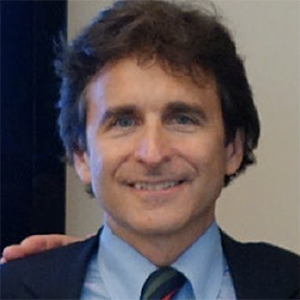
James Rubenstein, MD, PhD
University of California, San Francisco
San Francisco, CaliforniaTowards Risk-Adapted Therapeutic Strategies in CNS Lymphoma
This project will significantly advance the treatment and prevention of CNS lymphomas in two key areas. One, we will further develop and validate candidate genomic biomarkers that identify high risk disease and that are useful in risk stratification in future clinical investigations in primary CNS lymphoma. Two, we will evaluate novel pharmacologic interventions that we hypothesize will: a) potentiate both the anti-lymphoma immune response, including agonists of the toll like receptor 7 and 8 pathway, as well as the combination of the anti-CD19 monoclonal antibody tafasitamab plus lenalidomide; and b) antagonize the NFkB pathway, via the orally-administered BTK degrader, Nx-5948, that we have demonstrated to be active in preclinical models using patient-derived CNS lymphomas.
Program: Translational Research ProgramProject Term: Start Date: July 1, 2024 End Date: June 30, 2027
Exploiting escape from Y-inactivation as a synthetic dependency in MYC-driven lymphoma
As a lymphoma develops it expresses genes that are normally silenced to convey a survival advantage. When these genes are on the X or Y (sex chromosomes) they may present a gender-specific therapeutic target. We have identified a gene (DDX3X in females or DDX3Y in males) that is reactivated in lymphomas such that the lymphomas cannot survive if this gene is removed. This project will develop new ways to inhibit DDX3X and Y as a novel treatment for poor-risk and aggressive lymphoma.
Program: Translational Research ProgramProject Term: Start Date: July 1, 2024 End Date: June 30, 2027
KT1, a novel NK trispecific antibody for the treatment of AML and MDS
New treatments for AML and MDS are urgently needed. We have developed and performed preliminary testing of a novel, patent-protected, trispecific NK cell engager named KT1 which targets AML blasts and leukemia stem cells (LSCs) expressing CD33 and CD123 for elimination by effector cells that express CD16a/b. We plan to test the ability of KT1 to release cytokines and facilitate killing of CD33- and/or CD123-expressing targets by different types of CD16a/b-positive effector cell populations including resting natural killer (NK) cells, cytokine-induced memory-like (ML) NK cells, gamma/delta T cells, and macrophages both in vitro and in leukemic mice. We anticipate that a future treatment of AML and/or MDS with KT1 combined with a donor leukocyte transfer of allogeneic NK, ML NK, or gamma/delta T cells will have excellent therapeutic efficacy and a far better safety profile than many currently studied immunotherapies being tested in patients with AML or MDS.
Program: Translational Research ProgramProject Term: Start Date: July 1, 2024 End Date: June 30, 2027
Targeting TP53-Y220C mutant AML
TP53-Y220C is a recurrent hotspot TP53 mutation observed predominantly in AML and MDS among hematological malignancies. This study aims to investigate the mechanism of action and therapeutic activity of PC14586, a compound designed to bind p53-Y220C protein and stabilize it in the wild-type conformation and to develop mechanism-based combinations that improve its efficacy in TP53-Y220C mutant AML.
Program: Translational Research ProgramProject Term: Start Date: July 1, 2024 End Date: June 30, 2027
Targeting Leukemia Stem Cells with the Novel Antibody Drug Conjugate
To improve the cure rate of patients suffering from acute myeloid leukemia (AML), our study aims to target resistant leukemia stem cells by developing an 'antibody-drug conjugate' (ADC) against CD99, a protein expressed on these cells. Initial tests of two ADC versions have shown promise in combating AML. Our next steps involve refining the anti-CD99 antibody, identifying the optimal drug for conjugation, and testing the ADC on patient-derived leukemia models. Completing these objectives will pave the way for a phase 1 clinical trial, offering a potentially transformative treatment for AML.
Program: Translational Research ProgramProject Term: Start Date: July 1, 2024 End Date: June 30, 2027
Pluripotent Stem Cell-derived CAR-T and CAR-NK Cells for Immunotherapy of Leukemia and Lymphoma
Cytotoxic cells of the immune system, including T and NK cells, can be targeted to seek out and destroy leukemia, lymphoma and myeloma cells by engineering them to express chimeric antigen receptors (CARs) which empower the cell to home to and kill the cancer cells. Typically, such CAR-T and CAR-NK cells are generated from a patient's own blood, but sometimes heavy pre-treatment with chemotherapy leaves inadequate supplies of T and NK cells. We propose to generate T and NK cells from Pluripotent Stem Cells, which through genetic manipulation can be rendered suitable for treating any patient with an "off-the-shelf" cell product, hence facilitating otherwise cumbersome, labor-intensive, and expensive patient-specific cell therapies.
Program: Translational Research ProgramProject Term: Start Date: July 1, 2024 End Date: June 30, 2027
Mitochondrial reprogramming to restore age-driven dysfunction in T cell and boost CAR-T cell therapy
In the Cancer Immunology field, the “aging” variable has not been investigated profoundly yet, even though aging is the first factor associated to cancer. This represents a major limitation on the significance of the experimental results and their translation to the clinic. We believe that with our proposal we can shade light on important biological processes which drive immunotherapy failure. We have shown that T cell function is dependent not only on the differentiation state but also on their biological age. Thus, taking in consideration aging and the age-driven metabolic defects in T cells will help to better understand their biology and develop better strategies to boost immunotherapy.
Program: Translational Research ProgramProject Term: Start Date: July 1, 2024 End Date: June 30, 2027
Improving outcomes of multiple myeloma using TGF-beta resistant BCMA-targeted CAR T cells
Immunotherapy using chimeric antigen receptor (CAR) T cells, or CARTs for short, holds great promise for improving outcomes and survival of patients with relapsed and/or refractory multiple myeloma (RRMM). Next-generation “armored” CARTs that can overcome transforming growth factor beta (TGF-beta) dependent immune suppression in the tumor microenvironment may provide deeper and more durable disease control than the TGF-beta sensitive CART products currently in clinical use.
Program: Translational Research ProgramProject Term: Start Date: July 1, 2024 End Date: June 30, 2027
Targeting the Osteogenic Lineage as a Therapeutic Strategy in Multiple Myeloma
Multiple myeloma causes devastating bone disease characterised by focal bone lesions and generalise bone loss, which leads to an increase in bone fractures. Current therapies only stop bones from getting worse so patients continue to suffer fractures. We discovered that inhibiting a molecule called sclerostin in mice increases bone and is much better than current treatments. In this program we will investigate whether inhibiting sclerostin is able to restore lost bone and reduce fractures in patients with myeloma.
Program: Translational Research ProgramProject Term: Start Date: July 1, 2024 End Date: June 30, 2027
Enhancing the “fitness” of anti-BCMA CAR T cells for improved efficacy in multiple myeloma
Chimeric antigen receptor (CAR) T cell therapy is a form of immune-based therapy where a patient’s own immune cells are genetically engineered to recognize and kill the tumor cells. This therapy has revolutionized the treatment of certain blood cancers and excitingly, two CAR T cell products were recently approved for the treatment of multiple myeloma.
Despite impressive initial clinical data showing responses in 73-98% of patients, most patients still relapse after CAR-T cell therapy within 3 years. Therefore, there is a significant unmet need to further enhance the effectiveness of CAR T cell therapy in this disease. In this project we will investigate whether an approach we have shown to make CAR T cells “fitter” and more effective in solid tumors is also effective in the context of multiple myeloma.
Program: Translational Research ProgramProject Term: Start Date: July 1, 2024 End Date: June 30, 2027
A randomized clinical trial of oral vitamin A to reduce chronic graft versus host disease in BMT
Vitamin A is safe, well tolerated and positively affects gut immune health. Graft versus host disease (GVHD) is a life-threatening complication of bone marrow transplant (BMT) which happens due to inflammatory changes in the gut. We harnessed the anti-inflammatory properties of vitamin A by giving it to children before bone marrow transplant (BMT) and showed reduction in acute gut and moderate/severe chronic GVHD. We will validate our findings in this currently proposed study of an independent group of adult BMT patients. We will give vitamin A or placebo before BMT to adult BMT patients and observe for reduction of chronic GVHD in vitamin A recipients compared to placebo. This study will be a step forward in adoption of vitamin A as a universal strategy to prevent GVHD which is affordable ($1.25 for entire treatment), non-toxic, and doesn’t suppress the immune system.
Program: Academic Clinical Trials Program (ACT)Project Term: Start Date: October 1, 2024 End Date: September 30, 2027
Novel CD7 CAR T-cells for refractory T-cell malignancies affecting pediatric and AYA patients
T-cell leukemias and lymphomas have devastating outcomes if they recur after or don’t respond to standard treatment, with the only hope of cure being bone marrow transplant (BMT). Unfortunately, many pediatric, adolescent and young adult (AYA) patients are unable to achieve clinical remission (and thus unable to proceed to BMT) with standard salvage therapies, which are often even more toxic than upfront therapies. Available treatment options for patients with relapsed or refractory T-cell malignancies (particularly pediatric and AYA patients) are lacking, thus 3-year survival rates are <15% for these patients. This proposal aims to study a less toxic, targeted approach using patient or donor-derived T-cells engineered to target an antigen expressed on over 90% of T-cell malignancies that affect pediatric and AYA patients (CD7 Chimeric Antigen Receptor T-cells).
Program: Academic Clinical Trials Program (ACT)Project Term: Start Date: July 1, 2024 End Date: June 30, 2027
BAFF-ligand CAR T-cells and pre-apheresis B cell lymphodepletion for relapsed / refractory CLL
Most CLL patients treated with CAR T-cells that target the CD19 antigen on the cell do not achieve a complete remission. CLL cells express other molecules on their surface; one of them is the receptor for BAFF (BAFF-R), which is highly expressed. We propose a phase I trial investigating LMY-920 for treatment of CLL. LMY-920 is a different type of CAR T-cell because it does not rely on an antibody structure to identify BAFF-R, but uses the structure of the ligand BAFF itself, and this may help avoid resistance to CAR T-cells.
We also aim to improve the quality of the CAR T-cell product by removing the circulating B cells with a monoclonal antibody prior to collecting lymphocytes for manufacture.
Program: Academic Clinical Trials Program (ACT)Project Term: Start Date: July 1, 2024 End Date: June 30, 2027
Cotargeting oncogenic protein translation and apoptosis in acute myeloid leukemia
The focus of my research is to evaluate the efficacy of and to unravel the molecular mechanisms underpinning a novel drug combination in AML targeting oncogenic protein translation and apoptosis. We will utilize genetic perturbation and other orthogonal approaches, including in vitro and ex vivo assays, and in vivo AML PDX models. The goal of my research is to transform the clinical management of AML patients, particularly for relapsed and difficult-to-treat subgroups.
Program: Career Development ProgramProject Term: Start Date: July 1, 2024 End Date: June 30, 2026
Targeting the cell surface U5 snRNP complex as a novel immunotherapy for AML
A major limitation of immunotherapy approaches for AML has been the lack of known targetable cell surface antigens specific to AML cells. This project characterizes the pathologic and biologic effects of a novel cell surface antigen complex uniquely present on AML cells but not normal hematopoietic precursors, known as the U5 snRNP complex. Furthermore, we will interrogates U5 snRNP complex components as novel AML-associated antigens and CAR T cells targets for AML treatment.
Program: Career Development ProgramProject Term: Start Date: July 1, 2024 End Date: June 30, 2027
Prevention of antigen escape by modulation of off-target tumor killing in T cells
T-cell mediated therapies are all impeded by the same cause- tumoral antigen (Ag) escape: rare Ag– cells in tumors survive the initial attack and lead to relapse. We recently took an innovative approach by enhancing T cells' ability to attack the Ag- cells during the initial treatment. That process is modular by pharmaceutical intervention.
The proposed project will analyze cryopreserved excisional B-NHL biopsies to identify possible pharmaceutical targets potentiating their 'vulnerability’.
Program: Career Development ProgramProject Term: Start Date: July 1, 2024 End Date: June 30, 2026
Novel Immunotherapy Combinations in Relapsed, Refractory Mantle Cell Lymphoma
We are evaluating two parallel clinical trials with synergistic immunotherapies in mantle cell lymphoma (MCL), including 1) tafasitamab and lenalidomide and 2) glofitamab and lenalidomide. We will investigate how these treatments impact the MCL immune microenvironment and mediate anti-tumor immune responses, and will correlate these changes with outcome.
Our goal is to develop safe, effective, and "off-the-shelf" immunotherapies to improve outcomes for patients with relapsed, refractory MCL.
Program: Career Development ProgramProject Term: Start Date: July 1, 2024 End Date: June 30, 2029
Understanding the role of Metabolic Regulator SIRT5 in Acute Lymphoblastic Leukemia
SIRT5 is a master regulator of central energy metabolism. The survival and growth of Acute Myeloid Leukemia (AML) cells depend on SIRT5. I will employ genetic SIRT5 disruption and small molecule inhibitors to target SIRT5 in Acute Lymphoblastic Leukemia (ALL) cells and primary samples. This study aims to 1) determine the effects of SIRT5 inhibition on ALL in vitro and in vivo, and 2) identify SIRT5-regulated pathways and mechanisms underlying SIRT5 dependency in T-ALL.
Program: Career Development ProgramProject Term: Start Date: July 1, 2024 End Date: June 30, 2026
Mechanisms of oncogenic transcription in NPM1-mutant myeloid leukemia
NPM1-mutated leukemia is the most common AML in adult and characterized by upregulations of HOXA/B genes and MEIS1. Given the importance of oncogenic transcriptional program, I will determine regulatory molecules that cooperate with mutant NPM1 on chromatin by combining CRISPR/Cas9 screening approach in an innovative model system of endogenous transcription reporters with proteomics approach. This will facilitate identification of novel therapeutic targets specific for NPM1-mutated AML.
Program: Career Development ProgramProject Term: Start Date: July 1, 2024 End Date: June 30, 2026
Glycotyping as a novel approach to study leukemia stem cell heterogeneity and function
Leukemia stem cells (LSCs) are highly heterogeneous populations and key contributors to AML progression. Here, I aim to employ heparan sulfate (HS) glycotyping to resolve LSC heterogeneity. Using complementary genetic and antibody-based approaches, I will delineate the functional roles of HS pathway during AML progression. The newer insights provided by these studies could potentially uncover novel LSC therapies and facilitate diverse training for me to become an independent leukemia researcher.
Program: Career Development ProgramProject Term: Start Date: July 1, 2024 End Date: June 30, 2026
Patient-Reported Outcomes and Survivorship in Histiocytic Neoplasms
Advances in the treatment of Langerhans cell histiocytosis and Erdheim-Chester disease have led to a growing survivor population; however, there is a lack of information regarding the long-term outcomes, healthcare needs, and health-related quality of life in the era of targeted therapies. We propose the creation of a large national cohort of survivors with histiocytosis to address unanswered questions, eventually leading to targeted survivorship programs for this vulnerable population.
Program: Career Development ProgramProject Term: Start Date: July 1, 2024 End Date: June 30, 2029
TCR-like CARs targeting GvL mHAgs for the treatment of post-transplant AML relapse
AML recurrence is a devastating event after allo-HCT. I hypothesize that it could be counteracted through targeting of leukemia-restricted mHAgs via TCR-like CARs. I will identify scFVs recognizing mHAg:HLA complexes using a cell-free nanobody screening platform, and test the anti-leukemia activity and safety of CAR-Ts bearing such scFVs in vitro and in vivo. Through this approach, I will build a library of CAR constructs able to provide population-scale coverage for at-risk allo-HCT patients.
Program: Career Development ProgramProject Term: Start Date: July 1, 2024 End Date: June 30, 2026
Role of ID2 in mature T-cell lymphoma
Overexpression of ID2 is a recurrent event in mature T-cell lymphoma (TCL), and its significance is yet to be established. We will use a multidisciplinary approach combining epigenetic, transcriptomic, and proteomic analysis in human and murine models to identify the mechanisms leading to ID2 overexpression and their effect on T-cell transformation. Our goal is to define the role of ID2 in lymphomagenesis and determine its potential as a novel therapeutic target in TCL.
Program: Career Development ProgramProject Term: Start Date: July 1, 2024 End Date: June 30, 2026
Improving outcomes with immune therapies for multiple myeloma
The primary focus of research is to better understand mechanisms of resistance to immunotherapies and design treatment approaches to improve outcomes. I hope to accomplish this by conducting clinical trials that concurrently target both BCMA and GPRC5D in patients with advanced multiple myeloma and by studying antigen expression, tumor genetics, and T cell characteristics to better understand mechanisms of resistance. The goal is to develop more effective immune treatments for myeloma.
Program: Career Development ProgramProject Term: Start Date: July 1, 2024 End Date: June 30, 2029
Multiple Myeloma Support from the Microenvironment: Bone Marrow Adipocytes and the Fatty Acid Binding Proteins
Our project’s goal is to change how multiple myeloma is understood and treated by interrogating a novel part of the cellular “soil” (the bone marrow adipocyte), in which myeloma cells, or “seeds”, land and grow. We will discover new forms of cancer drug resistance that are driven by adipocyte-derived factors and the fatty acid binding proteins. This work will expose new ways to overcome drug resistance to improve survival and quality of life for myeloma and other hematological cancer patients.
Program: Career Development ProgramProject Term: Start Date: July 1, 2024 End Date: June 30, 2029
Epigenetic heterogeneity in age-related clonal hematopoiesis and acute myeloid leukemia
Our focus is to unravel how clonal hematopoiesis (CH) progresses to leukemia. We will investigate how epigenetic heterogeneity affects Tet2-mutant hematopoietic stem cells (HSCs) during aging. We plan to simultaneously trace HSC clonal identity and clonal history by genetic barcode and single-cell multi-omics and determine their epigenetic configurations adaptive in the aged, inflammatory bone marrow. The long-term goal is to create innovative therapeutics to mitigate CH and prolong health span.
Program: Career Development ProgramProject Term: Start Date: July 1, 2024 End Date: June 30, 2029
Novel targeted therapies for acute myeloid leukaemia and multiple myeloma
Outcomes for acute myeloid leukemia (AML) and multiple myeloma (MM) patients remain inadequate and new treatment options to combat resistance against existing agents are urgently needed. My research aims to identify and target selective vulnerabilities of AML and MM cells. I am particularly interested in epigenetic and metabolic pathways that control self-renewal and differentiation of hematopoietic cells and that can be leveraged to modulate cell fate for therapeutic benefit.
Program: Career Development ProgramProject Term: Start Date: July 1, 2024 End Date: June 30, 2029

Fenghuang Zhan, MD, PhD
University of Arkansas for Medical Sciences
Little Rock, ArkansasToward improvement of BCMA/CST6-CAR-T therapy to target both myeloma cells and bone resorption
We have observed that non-glycosylated CST6 proteins suppress osteoclast differentiation and function without causing immunosuppression. We aim to determine whether BCMA-CAR-T cells which are engineered to secret CST6 proteins kill myeloma cells and suppress bone lytic lesions without immune suppressive effects in myeloma. Our ultimate goal is to develop a CAR-T-cell based immune therapy to prevent bone loss and disease progression in myeloma patients.
Program: Translational Research ProgramProject Term: Start Date: July 1, 2024 End Date: June 30, 2027

Alfred Garfall, MD
Perelman School of Medicine at the University of Pennsylvania
Philadelphia, PennsylvaniaLimited-duration bispecific antibody therapy for multiple myeloma
Bispecific antibodies are a new, highly effective immunotherapy for multiple myeloma. Most bispecific antibody therapies have been tested as continuous therapies in which patients continue receiving the treatment until the myeloma starts growing again. Preliminary results suggest that patients with good responses may be able to stop therapy and enjoy a period of time off-therapy with close observation, which may limit long term toxicities caused by continuous therapy. We propose a clinical trial to test this limited-duration approach with recently approved bispecific antibodies for multiple myeloma.
Program: Academic Clinical Trials Program (ACT)Project Term: Start Date: July 1, 2024 End Date: June 30, 2027
Next-Generation Targeted Therapy in Mantle Cell Lymphoma and Transformed Follicular Lymphoma
The field of cancer treatment has made remarkable progress with the adoption of targeted therapy; however, small molecule drugs have limitations such as drug resistance and off-target toxicities. To overcome these challenges, we have developed an innovative approach that enhances the potency and precision of small molecule drugs. Our cutting-edge high-precision pretargeted nanoparticles can deliver potent triple inhibitors that effectively combat drug-resistant mantle cell lymphoma and dual proteolysis targeting chimeras (PROTACs) for treatment of transformed follicular lymphoma. Our proposal is supported by extensive preliminary data, and we are excited to be at the forefront of this revolutionary novel treatment strategy.
Program: Translational Research ProgramProject Term: Start Date: July 1, 2024 End Date: June 30, 2027
Exploiting tumor-immune dynamics to inform curative combination therapy for follicular lymphoma
Follicular lymphoma is a common form of blood cancer, affecting 15,000 new patients annually in the United States, but it remains incurable with conventional treatments. Bispecific antibodies represent a new class of therapies that engage the immune system to attack lymphoma cells and have shown promising effectiveness in inducing remissions in patients with this disease, but even they are unlikely to be curative. Researchers from the Dana-Farber Cancer Institute here propose to analyze lymphoma cells from patients undergoing treatment with bispecific antibodies on several complementary clinical trials to determine how these cells evade the immune system and develop resistance. It is believed that such mechanisms of resistance may reveal vulnerabilities within the lymphoma cells that novel treatments can overcome in combination with bispecific antibodies to cure patients with follicular lymphoma.
Program: Translational Research ProgramProject Term: Start Date: July 1, 2024 End Date: June 30, 2027
Bispecific antibody-based frontline therapy for follicular lymphoma
We are conducting a clinical trial testing a novel form of immunotherapy, called a bispecific antibody, as part of initial treatment for patients with follicular lymphoma. The goal of the trial is two-fold: 1) to establish a highly effective, chemotherapy-free treatment option for patients with follicular lymphoma, and 2) to establish predictors of response and toxicity that can guide treatment decisions for future patients with follicular lymphoma.
Program: Academic Clinical Trials Program (ACT)Project Term: Start Date: July 1, 2024 End Date: June 30, 2027
A phase 2 study of RVU120, a novel CDK8 inhibitor, in combination with venetoclax in patients with AML
In August 2017, LLS TAP partnered with Ryvu Therapeutics (formerly known as Selvita) to support "A Phase 1b Study of SEL120 in Patients With Acute Myeloid Leukemia or High-risk Myelodysplastic Syndrome."
Ryvu Therapeutics is a clinical-stage drug discovery and development company focusing on novel small molecule therapies that address emerging targets in oncology using a proprietary discovery engine platform.
RVU120 (SEL120) is a highly selective first-in-class CDK8/CDK19 small molecule inhibitor. Ryvu is currently enrolling several Phase 2 clinical trials: RVU120 in combination with venetoclax for patients with relapsed/refractory AML (RIVER-81, NCT06191263), RVU120 as monotherapy for patients with low-risk myelodysplastic syndromes (REMARK, NCT06243458) and RVU120 as monotherapy and in combination with ruxolitinib for patients with myelofibrosis (POTAMI-61, NCT06397313).
Program: Therapy Acceleration ProgramProject Term: Start Date: August 7, 2017 End Date: August 8, 2025
Development of a clinical program for myeloid cancer prevention
The majority of myeloid cancers remain incurable. We previously showed that individuals at risk can be identified years in advance, indicating that prevention may be a viable alternative to treatment. Here, we propose a program of work to establish a clinical platform for myeloid cancer prevention. This includes development of a screening strategy, improved understanding of myeloid cancer evolution, identification of treatment targets and establishment of a specialized clinic to deliver therapy.
Program: Specialized Center of Research ProgramProject Term: Start Date: February 1, 2024 End Date: January 31, 2029
Development of peptide-drug conjugates for the treatment of Chronic Myelomonocytic Leukaemia (CMML)
We are aiming to bring a new treatment option to patients with chronic myelomonocytic leukemia (CMML) by utilising CCL2-drug conjugates that specifically target and eliminate cancerous cells. Our leading conjugate shows potent and selective efficacy in killing CMML cells. The proposed work will help us understand how this drug works, which patients are most likely to benefit and how it can be combined with current treatments to achieve the greatest patient benefit.
Program: CMML InitiativeProject Term: Start Date: November 1, 2023 End Date: October 31, 2026
Targeting the inflammatory GM-CSF pathway in high risk CMML
Chronic myelomonocytic leukemia (CMML) is a rare but poorly understood blood cancer often presenting with crippling inflammatory symptoms that frequently evolves into acute leukemia. In an ongoing clinical trial, we have compelling molecular and clinical data that this disease responds effectively to blockade of GM-CSF with lenzulimab, a well-tolerated and safe antibody, in combination with azacitidine. Here, we propose an integrated research program to investigate targeting of the GM-CSF pathway in high risk CMML using our carefully matched patient samples, proprietary GM-CSF tools, and humanized in vivo CMML models.
Program: CMML InitiativeProject Term: Start Date: November 1, 2023 End Date: October 31, 2028

Elliot Stieglitz, MD
University of California, San Francisco
San Francisco, CaliforniaCLL-1 CAR-T cells and trametinib for the treatment of Ras-mutated CMML and JMML
We hypothesize that demonstrating activity of CLL-1 CAR-T (CLL1CART) cell therapy with or without trametinib in pre-clinical models of chronic myelomonocytic leukemia (CMML) and juvenile myelomonocytic leukemia (JMML) is the most efficient method to bring cellular therapy to patients with these orphan diseases. In Aim 1, we will determine the in vitro and vivo efficacy of CAR-T cells redirected against CLL-1 using patient-derived xenograft (PDX) models of CMML and JMML. In Aim 2, we will evaluate the role of combining trametinib with CLL1CART cells. Based on our preliminary data, we hypothesize that trametinib will have direct antileukemia activity and will increase the efficacy of CLL1CART by decreasing T-cell exhaustion and augmenting T-cell fitness.
Program: CMML InitiativeProject Term: Start Date: November 1, 2023 End Date: October 31, 2026
Advancing the therapeutic landscape for Chronic Myelomonocytic Leukemia (CMML)
CMML is a universally lethal blood cancer characterized by increased monocytes (a type of white blood cell) in the peripheral blood and abnormal appearing cells within the bone marrow. Most CMML patients are clinically asymptomatic and remain so for weeks to months following diagnosis, with disease progression remaining inevitable. Despite therapeutic advances in similar blood cancers, no specific molecularly targeted therapies currently exist to treat CMML. Our team aims to identify new therapies and repurpose existing therapies to address the emergent unmet need for new treatments that meaningfully improve, and extend, the lives of patients with CMML.
Program: CMML InitiativeProject Term: Start Date: November 1, 2023 End Date: October 31, 2027
Development of cellular therapy for CMML and the Immune landscape of response and resistance
We will test the efficacy of CAR T cell therapy for CMML. We will modify the tumor microenvironment to enhance their efficacy. and we will upscale CAR T cells to the next level in terms of their genetic structure.
Program: CMML InitiativeProject Term: Start Date: November 1, 2023 End Date: October 31, 2028
Targeting the inflammasome in CMML
Overactivation of the inflammasome is seen in CMML and leads to worsening of this condition. We will explore the potential of a new inflammasome inhibitor drug, HT-6184, in CMML patient samples and in animal models. Our preliminary results show that this drug can decrease inflammation and improve red cell development in CMML models. The new drug is approved for clinical trial use and our work will potentially lead to its use in clinical investigations in CMML.
Program: CMML Initiative
Project Term: Start Date: November 1, 2023 End Date: October 31, 2026
A phase 1 study of VIPER-101, a CD5-edited dual population chimeric antigen receptor cell therapy, to enhance immunotherapy against T-cell non-Hodgkin lymphoma
In October 2023, LLS made an equity investment in Vittoria to "Support Clinical Development of VIPER-101, a CAR-T Cell Therapy for T-cell lymphomas."
Vittoria Biotherapeutics is developing novel CAR-T cell therapies that transcend the limitations of current cell therapies. Based on technology exclusively licensed from the University of Pennsylvania, Vittoria's proprietary Senza5 platform unlocks the antitumor potential of engineered T cells and utilizes a five-day manufacturing process to maximize stemness, durability, and target cell cytotoxicity. By acting on the fundamental biology of T cells, Senza5 can be used to improve the efficacy of engineered T cell therapies with pipeline applications in oncology and autoimmune diseases.
Vittoria aims to conduct a Phase 1 dose escalation clinical trial for its lead program VIPER-101, an autologous, dual population CD5-knockout CAR-T cell therapy for T-cell Lymphoma featuring the novel Senza5 platform technology. The Phase 1 trial is ongoing to assess the safety and efficacy of VIPER-101 in patients with T-cell lymphomas (NCT06420089). Several other products are in earlier preclinical development.
Program: Therapy Acceleration ProgramProject Term: Start Date: October 31, 2023 End Date: August 8, 2025
Metabolically Optimized, Non-cytotoxic Low Dose Weekly Decitabine/Venetoclax in MDS and AML
Dr. Mendel Goldfinger and collaborators of Einstein have shown in a preliminary trial that weekly low dose decitabine plus one a week venetoclax is highly effective in newly diagnosed patients with MDS or AML. The regimen has reduced toxicity compared to the current dose and schedule of azacitidine plus venetoclax. The proposed new work is attempting to demonstrate in a prospective trial at 3 sites that this data can be replicated and expanded.
Program: Special GrantsProject Term: Start Date: October 1, 2023 End Date: September 30, 2024
Making an IMPACT on hematology care in Georgia: The Georgia Blood Cancer Trials Network (BCTN)
Winship Cancer Institute is the only NCI-Designated Comprehensive Cancer Center in Georgia, the largest state by land area east of the Mississippi River, and 8th largest state by population. The Winship IMPACT program will leverage existing relationships throughout the state to bring hematology trials to patients in their communities. The goals are to strengthen our relationship with community sites and to increase opportunities for patients to access cutting edge trials throughout our state.
Program: IMPACTProject Term: Start Date: October 1, 2023 End Date: September 30, 2028
Developing Novel Immunotherapies for Challenging Lymphomas
This team science program from Washington University will develop new immunotherapy treatments for patients with hard to treat or incurable lymphomas. The team includes physicians and scientists who have developed new ideas in the laboratory for immune-based treatment, and will translate these to clinical trial testing. These include engineered natural kill cells, healthy donors T cell engineered to attack a T cell lymphoma, and lymphoma-patient specific mutations as vaccine targets.
Program: Specialized Center of Research ProgramProject Term: Start Date: October 1, 2023 End Date: September 30, 2028

Craig Jordan, PhD
University of Colorado Denver, Anschutz Medical Campus
Aurora, ColoradoTherapeutic targeting of AML stem cells 2023
The goal of this SCOR project is to identify and eradicate the root cause of acute myeloid leukemia, the so-called leukemia stem cell (LSC). In the previous cycle of this SCOR grant, we developed two unique strategies, each of which efficiently eradicates LSCs in the laboratory. Going forward, we will expand our scientific efforts to further improve these approaches and also conduct clinical trials to determine whether our approaches to killing LSCs will benefit AML patients.
Program: Specialized Center of Research ProgramProject Term: Start Date: October 1, 2023 End Date: September 30, 2028
Dissecting the mitochondrial alterations by aberrant NPM1 to the pathogenesis of myelodysplastic syndrome
Survival rates for those afflicted with MDS have not improved despite extensive effort to identify the key genetic events in its pathogenesis. This project elucidates the contributions of aberrant NPM1 to hematological disorders, with a focus on mitochondrial fitness and inflammasome activation. The resulting insights into the metabolic, genetic and proteomic requirements of homeostasis that are critical to preventing aging will have a major impact on the treatment of hematological malignancies.
Program: DiscoveryProject Term: Start Date: October 1, 2023 End Date: September 30, 2026
Predicting progression in myeloproliferative neoplasm patients by reconstructing the history of disease in each patient
Blood cancers called myeloproliferative neoplasms occur when one of the blood stem cells picks up a mutation. Some patients stay in the chronic phase of the disease for years whereas others rapidly progress with poor outcome. We recently measured when the cancer mutation first occurs and the rate of expansion of the cancer cells in individual patients. We will develop a method that uses the history of disease in each patient to identify those that are at risk of progression.
Program: DiscoveryProject Term: Start Date: October 1, 2023 End Date: September 30, 2026
Genomics of Diffuse Large B Cell Lymphoma: pervasive role of super-enhancer hypermutation in dysregulating oncogene expression
We recently identified a pervasive, pathogenically relevant mutational mechanism that targets super-enhancers (SE) in DLBCL, leading to target gene deregulation. Here we will dissect the mechanistic role of 3 highly recurrent hotspots in the BCL6, BTG2 and CXCR4 SEs in driving lymphomagenesis and tumor dependency in vitro and in vivo using novel mouse models. These studies will significantly transform our understanding of DLBCL and identify novel therapeutic targets.
Program: DiscoveryProject Term: Start Date: October 1, 2023 End Date: September 30, 2026
Targeting metabolic reprogramming in MDS and AML stem/progenitor cells
Myelodysplastic neoplasms are malignant disorders driven by expansion of diseased hematopoietic stem cells and progression to leukemia. Our investigations have identified the important role of the transporter of amino acid glutamine SLC38A1 in sustaining metabolic demands of rapidly growing malignant stem cells. The goal of this project is to genetically target this transporter to understand its role on tumorigenesis and progression; and to develop SLC38A1 inhibitors as novel therapeutic tools.
Program: DiscoveryProject Term: Start Date: October 1, 2023 End Date: September 30, 2026
Functional dissection of heterogeneity of responses to CAR T cells using Spatiotemporal Image-guided Genomic and Cellular Analysis (SaGA) in myeloma
Despite remarkable progress in the last 20 years, multiple myeloma remains an incurable disease. In recent years, 2 CAR T cell products that target BCMA on the myeloma cell have been approved. These products result in remarkable initial responses however the duration of these responses has been disappointing. In this proposal, we will take a novel approach to isolate and characterize myeloma cells that interact with CAR T cells but are not killed by them as a potential resistance mechanism.
Program: DiscoveryProject Term: Start Date: October 1, 2023 End Date: September 30, 2026
Understanding Resistance Mechanism to Enhance CAR-T Immunotherapy for MCL
Mantle cell lymphoma (MCL) is an aggressive B-cell lymphoma characterized by resistance to standard treatments and short survival. For the 2023 LLS MCLII Synergistic Team Award, we have assembled a team of leaders in basic, translational, and clinical research in MCL to tackle the current significant obstacles in understanding and treating MCL. In the last decade, we investigated the therapy resistance mechanism of MCL, and pioneered clinical trials for targeted therapies (ibrutinib, lenalidomide) and chimeric antigen receptor T-cell (CAR-T) therapy. However, despite these dramatic advancements, resistance to these newer therapies, including targeted therapy and CAR-T cells, is seen in over 50% of patients. Thus, it remains an unmet need to better define the mechanisms of resistance and then develop rationally designed strategies to overcome resistance. The overall goal of this Synergistic Team Award is to develop improved curative therapies for patients with MCL at relapse. The goals will be addressed in three highly focused, independent but highly integrated projects that utilize state-of-the-art genomic technologies, patient-derived xenograft models, clinical data and primary MCL samples. With the joint effort of our laboratories, highly interactive and accomplished scientists, and physician researchers from multiple institutions with expertise in MCL and therapy, we are uniquely poised to develop improved next-generation of combination therapy for relapsed MCL patients.
Program: Mantle Cell Lymphoma Research InitiativeProject Term: Start Date: July 1, 2023 End Date: June 30, 2027
Pilot trial of microbial targeting to prevent myeloma
Our recent studies have identified specific bacteria that can potentially promote the growth of human myeloma tumor cells. We are now testing if eradicating these bacteria in MGUS patients will be effective for prevention of myeloma.
Program: Academic Clinical Trials Program (ACT)Project Term: Start Date: July 1, 2023 End Date: June 30, 2026
MULTIlayer Predictive models for relapsed MCL after ibrutinib as first line therapY (MULTIPLY)
The MULTIPLY is a large multi-institutional project aimed at characterization of a variety of clinical predictors, both baseline and at relapse through three interconnected Work Packages (WP) with the following objectives: I) Identification of clinical factors affecting prognosis and characterization of relapses; II) Identification of lymph node biomarkers III) characterization of liquid tissue associated biomarkers. All parameters will be integrated through biostatistical and artificial intelligence tools to establish a comprehensive model of relapse prediction and optimal salvage treatment. The proposal is conducted by the Eu-MCL-Network which is the largest group conducting clinical and translational research worldwide in MCL including the largest phase III trials ever conducted. MULTIPLY will exploit the extensive dataset and tissue bank of the TRIANGLE trial that will be presented as abstract #1 at the ASH plenary session. This study will establish a novel standard by the addition of ibrutinib to first-line treatment, but will also raise relevant issues for prediction and management of disease relapse in first-line BTK-era. The expected results will be the generation of comprehensive integrated models for relapse prediction MCL and development of an effective platform to develop rational chemotherapy-free strategies based on genetic alterations of the malignant cell and innovative biomarker-driven strategies.
Program: Mantle Cell Lymphoma Research InitiativeProject Term: Start Date: July 1, 2023 End Date: June 30, 2027
Identifying the oncogenic cooperation between IRF4 and MYD88l265p and their impact on the Tumor Microenvironment of Waldenstrom Macroglobulinemia
Although many patients with IgM MGUS remain asymptomatic, some of them progress to Waldenstrom Macroglobulinemia (WM) requiring treatment. Recently, we have found that the hereditable alteration of IRF4 gene increases the risk to develop WM, however little is known on the molecular mechanisms responsible for this feature. In this project, we aim to elucidate the role of the germline alteration of IRF4 in promoting WM through oncogenic cooperation with MYD88 and dysregulated immune microenvironment, ultimately paving the way for novel precision therapies for this patient population.
Program: Special GrantsProject Term: Start Date: August 21, 2023 End Date: August 20, 2025
New Targeted Therapies for Pediatric Acute Myeloid Leukemia
Our research focuses on the preclinical evaluation of new targeted therapies for high-risk subtypes of childhood AML. We are deploying screening approaches to delete each gene, one-by-one, to identify genes whose deletion leads to death of the leukemia cells. We will evaluate drugs developed against these targets in state-of-the-art models of pediatric AML. Our goal is to translate the most promising findings to clinical trials for children with these very poor outcome subsets of AML.
Program: Dare to DreamProject Term: Start Date: July 1, 2023 End Date: June 30, 2025

Zachary Epstein-Peterson, MD
Memorial Sloan Kettering Cancer Center
New York, New YorkTargeting mutant IDH2 in angioimmunoblastic T-cell lymphoma
Angioimmunoblastic T-cell lymphoma is a rare, aggressive form of T-cell lymphoma associated with poor clinical outcomes in response to current therapeutic approaches. Recurrent oncogenic mutations in isocitrate dehydrogenase 2 (IDH2) have been identified in patients with angioimmunoblastic T-cell lymphoma and this represents a targetable lesion in other malignancies. However, comprehensive investigations of mutant IDH2 inhibition in angioimmunoblastic T-cell lymphoma are lacking, and this may represent a new therapeutic avenue for a patient population in need of newer treatments
Program: Academic Clinical Trials Program (ACT)Project Term: Start Date: July 1, 2023 End Date: June 30, 2026
A Multi-Center, Multi-National Investigation of Survivorship and Patient-Reported Symptoms in Erdheim-Chester Disease
Advances in the treatment of Erdheim-Chester Disease (ECD) have led to a growing survivor population; however, there is a lack of information on the burden of chronic health problems, symptomatology, psychological dysfunction, and mortality experienced by this group of individuals. We propose a multi-institutional international study in collaboration with the ECD Global Alliance to answer these critical questions. Results from our study will help in counseling patients in the clinic about what to expect in the future and develop interventions to reduce the risk of health issues and disease or treatment-related symptoms.
Program: Special GrantsProject Term: Start Date: July 1, 2023 End Date: June 30, 2025
Aberrant Megakaryopoiesis in the MPNs
A key feature of the MPNs is aberrant megakaryopoiesis, including increased numbers of platelet-producing megakaryocytes in essential thrombocythemia and atypical megakaryocytes that drive fibrosis in myelofibrosis (MF). Recent studies have found that increased activity of the chromosome 21 kinase DYRK1A, which is a feature of the MPNs, enhances megakaryocyte growth while its loss suppresses their expansion. This effect appears to be mediated, at least in part, by DYRK1A’s control of NFAT2 phosphorylation and subcellular localization. The goals of this research are to determine whether DYRK1A is a therapeutic target in chronic phase MPNs and to define the contributions of NFAT2 phosphorylation to the disease.
Program: Special GrantsProject Term: Start Date: February 1, 2023 End Date: January 31, 2024

Robert Orlowski, PhD, MD
The University of Texas MD Anderson Cancer Center
Houston, TexasTargeting HSP70 to Immune Effector Cells to Overcome the Immune Suppressive Myeloma Microenvironment
Development of a strong anti-cancer immune response requires coordinated action of the innate and adaptive parts of the immune system, but cancer cells alter their environment to suppress virtually every step in this process, which promotes cancer progression and treatment resistance. One promising strategy could be to target Heat shock protein 70 (HSP70), which plays an important role in both innate and adaptive immunity, and we therefore developed a series of novel antibodies to HSP70, one of which cured mice of multiple myeloma. Based on strong preliminary data, we propose additional studies to better understand how this antibody activates various types of immune cells, how it works against both cancer cells and modifies the immune environment in mouse models, and how it could work even better in combination with other agents against myeloma. Since this antibody is already being developed into a drug for phase I clinical trials, these studies will directly inform its use in the clinic against multiple myeloma, and possibly against other blood-related cancers such as B-cell lymphomas.
Program: Translational Research ProgramProject Term: Start Date: July 1, 2023 End Date: June 30, 2026
A phase 2 trial of EO2463, a novel microbial-derived peptide therapeutic vaccine, as monotherapy, and in combination with lenalidomide and rituximab, for treatment of patients with indolent NHL
In October 2023, LLS made an equity investment in Enterome to "support the ongoing Phase 2 SIDNEY study of EO2463 in indolent non-Hodgkin B-cell lymphoma."
Enterome is a clinical-stage biopharmaceutical company developing breakthrough immunomodulatory drugs for the treatment of cancer and immune diseases. Enterome’s pioneering approach to drug discovery is based on its unique and powerful bacterial Mimicry drug discovery platform, allowing it to analyze and uncover new biological insights from the millions of gut bacterial proteins in constant cross-talk with the human body. Its first-in-class small protein and peptide drug candidates modulate the immune system by closely mimicking the structure, effect or actions of specific antigens, hormones, or cytokines.
EO2463 is a clinical-stage off-the-shelf OncoMimics™ peptide-based immunotherapy. It combines four microbial-derived OncoMimics™ peptides that closely mimic specific cytotoxic T cell (CD8+ T cell) epitopes in B cell Tumor-Associated Antigens CD20, CD22, CD37, and CD268 (BAFF receptor), as well as a helper CD4 peptide, UCP2. The SIDNEY trial is a multicenter, Phase 2 trial investigating EO2463 in monotherapy and in combination with standard of care - rituximab and rituximab in combination with lenalidomide – for treatment of patients with indolent NHL (NCT04669171).
Program: Therapy Acceleration ProgramProject Term: Start Date: October 24, 2023 End Date: August 8, 2025
211Astatine-CD123 Radioimmunotherapy for Cancer (Stem) Cell-Directed Treatment of Acute Leukemia
Because acute leukemias are very sensitive to radiation, radioisotopes are ideal payloads to arm antibodies against these difficult-to-cure, aggressive blood cancers. Here, we will develop fully human anti-CD123 antibodies carrying the highly potent alpha-emitter astatine-211 (211At) as a new therapy for acute leukemia. CD123 is broadly displayed on acute leukemia cells in most patients and overexpressed on leukemic stem cells but is only found on a small subset of normal blood cells, enabling the use of 211At-CD123 radioimmunotherapy in the transplant and non-transplant setting with limited toxicities to normal tissues.
Program: Translational Research ProgramProject Term: Start Date: July 1, 2023 End Date: June 30, 2026
Stem cell features and Notch signaling in p53 deleted multiple myeloma
We have investigated the consequences of p53 loss on stem cell properties, namely clonogenic growth, self-renewal, and drug resistance in multiple myeloma. We have found that both the level of Notch signaling and BCMA impact these properties, and we will explore novel strategies to improve outcomes in p53 mutant multiple myeloma.
Program: Translational Research ProgramProject Term: Start Date: July 1, 2023 End Date: June 30, 2026
Development of a novel BCL2L1 armored CAR T-cell and a tumor-immune interactome in multiple myeloma
Novel immune approaches have revolutionized the treatment paradigms in multiple myeloma (MM) with deep responses seen in heavily pretreated patients. However responses are largely not durable with significant gaps remaining in our understanding of the mechanisms mediating the immune escape to to CAR T cells and T cell engagers. Harnessing the power of single cell immunogenomics and building on the knowledge we amassed to date, we plan to address these therapeutics and mechanistic challenges firstly through the informed design and clinical development of a BCL2L1 armoured BCMA-targeting CAR T cell, and secondly by establishing a dictionary of the MM-TME interactome through serial interrogation of primary MM cells and their immunome generating a dynamic risk prediction model to better guide the delivery of immuno-therapeutics.
Program: Translational Research ProgramProject Term: Start Date: July 1, 2023 End Date: June 30, 2026
NK cell immunotherapy to reduce relapse after haploidentical transplant for high-risk pediatric AML
Leukemia recurrence remains the most common type of treatment failure after allogeneic hematopoietic cell transplant for children and young adults with high-risk acute myelogenous leukemia (AML), occurring in 40-50% of patients. Novel treatment strategies are needed to attain durable remissions and provide long-term cure. We have developed a novel memory-like (ML) NK cell immunotherapy that has demonstrated potent activity against AML in preclinical and early clinical studies. We propose a new clinical trial combining donor-derived ML NK cells adoptive cellular therapy with modified αβT cell-depleted haploidentical HCT to enhance graft-versus-leukemia and reduce relapse in pediatric and young adult patients with high-risk AML.
Program: Academic Clinical Trials Program (ACT)Project Term: Start Date: July 1, 2023 End Date: June 30, 2026
A phase 1b/2 study targeting apoptotic and signaling pathways in T-acute lymphoblastic leukemia
T-acute lymphoblastic leukemia (T-ALL) is an aggressive leukemia with limited treatment options after first-line chemotherapy. Our preclinical work in animal models of T-ALL demonstrated the activity of a novel-novel combination treatment strategy, which includes LP-118 (activator of suicide pathways within leukemic cells) and tyrosine kinase inhibitors (inhibiting growth-promoting LCK and ACK1 signaling pathways). Leveraging the mechanistic insights gained from our laboratory work, we propose a phase Ib/II study investigating the feasibility and efficacy of the combined LP-118, ponatinib, and salvage chemotherapy in patients with relapsed T-ALL. This precision medicine approach addresses an unmet need in a fatal disease which lacks effective therapies.
Program: Academic Clinical Trials Program (ACT)Project Term: Start Date: July 1, 2023 End Date: April 30, 2027

Venkata Lokesh Battula, PhD
The University of Texas MD Anderson Cancer Center
Houston, TexasArming NK Cells to Target B7-H3+ AML Cells
In order to develop a novel immunotherapy approach to treating AML, we propose targeting B7-H3 (CD276), a promising immune checkpoint that has been reported to inhibit NK cell activation. We have generated a novel anti–B7-H3 monoclonal antibody (T-1A5) to block B7-H3 function, showing the best in vitro and in vivo activity against AML cells. We will test the hypothesis that combination strategies such as targeting B7-H3 along with BCL2 inhibition (venetoclax) or IL-15r agonist (NKTR-255) result in synergistic inhibition of AML growth.
Program: Translational Research ProgramProject Term: Start Date: July 1, 2023 End Date: June 1, 2026
Strategic combinations to overcome therapeutic resistance and relapse in acute myeloid leukemia
Acute myeloid leukemia (AML) is the most fatal type of leukemia and has a high rate of relapse following current therapies. We have recently uncovered that RSPO3-LGR4 pathway is a key regulator of leukemia-initiating cell activity and is exclusively activated in relapsed and refractory AML. Our project aims to investigate the mechanistic link between the pathway activation and therapy resistance, and design combination therapies that would overcome resistance and improve the treatment of relapsed leukemia.
Program: Translational Research ProgramProject Term: Start Date: July 1, 2023 End Date: June 30, 2026
Understanding molecular determinants of immune evasion to CAR-T cells at single clone resolution
Cellular immunotherapies such CAR-T cells are now firmly established as major pillars of anti-cancer therapy particularly in B-cell malignancies. However, despite their remarkable success in mediating an objective clinical response in up to 90% of patients, long-term durable remissions remain confined to only a minority of patients. It is now increasingly apparent that genetic evolution through the acquisition of new mutations cannot solely explain the molecular basis for therapeutic resistance. Therefore, to meet our ambition of precision medicine we need a better understanding of both the genetic and non-genetic mechanisms of malignant clonal dominance and therapeutic adaptation. To address this important challenge, we have developed new ex vivo and in vivo (mouse models) of resistance to CAR-T therapy. These will be coupled to a synthetic clone tracing strategy termed SPLINTR (Single-cell Profiling and LINeage Tracing) using expressed barcodes. In this proposal we will use SPLINTR in our models to uncover the clone intrinsic properties of cancer cells that enable them to evade these pioneering cellular immunotherapies. This research will deliver a blueprint around which future clinical trial strategies could be enabled to improve outcomes with these ground-breaking therapies.
Program: Translational Research ProgramProject Term: Start Date: July 1, 2023 End Date: June 30, 2026
Targeting GCK as a novel and selective therapeutic strategy against RAS mutated Multiple Myeloma
RAS/MAPK mutations are the key drivers in MM, which occurs in 50% of newly diagnosed and higher in relapsed MM patients. However, RAS remains undruggable in MM. We found that RAS mutation MM growth is highly dependent on germinal center kinase(GCK). The goal of this project is to develop small molecule inhibitors against GCK with the expected outcome to provide novel treatments for relapsed/refractory and especially multi-drug resistant MM with RAS mutation, as well as other B-cell malignancies.
Program: Translational Research ProgramProject Term: Start Date: July 1, 2023 End Date: June 30, 2026
Inhibition of PKCβ as a strategy for BTK inhibitor refractory CLL
Patients with CLL that have progressed on BTK inhibitors have high risk disease with few clinical options. Here we propose a novel, selective inhibitor of PKCβ, MS-553, as a strategy for these patients. Our project will evaluate this drug alone and in combination with venetoclax preclinically and will perform correlative studies from an ongoing phase 1/2 trial of this drug alone and in combination with venetoclax.
Program: Translational Research ProgramProject Term: Start Date: July 1, 2023 End Date: June 30, 2026
CD70-directed CAR T-cell therapy for the treatment of relapsed/refractory pediatric AML
In this project, we will test an innovative therapy called CAR T-cell therapy for children with a type of cancer called AML. In the laboratory, we have identified and developed a powerful CAR T-cell therapy that targets a protein called CD70 on AML cells. We propose to now develop a clinical trial in which we will study the effects of this CD70.CAR T-cell therapy in children with AML.
Program: Translational Research ProgramProject Term: Start Date: July 1, 2023 End Date: June 30, 2026
Discovery and therapeutic targeting of novel mechanisms driving Double Hit Lymphomas
Double-hit lymphoma (DHL) is an aggressive form of diffuse large B-cell lymphoma (DLBCL) defined by co-occuring MYC and BCL2 rearrangements. DHL has been linked to very poor outcomes when treated with R-CHOP chemotherapy. Effective treatments to prevent treatment failure remain a critical unmet need. This proposal will develop novel, mechanism-based therapeutic regimens for DHL that overcome chemotherapy resistance and defective immune surveillance to improve outcomes.
Program: Translational Research ProgramProject Term: Start Date: July 1, 2023 End Date: June 30, 2026

Yubin Zhou, PhD, MBBS
Texas A&M Institute of Biosciences and Technology
College Station, TexasDevelopment of mutant GTPase-specific degraders for peripheral T cell lymphoma treatment
This project aims to develop targeted therapies against peripheral T cell lymphoma (PTCL), a diverse group of aggressive blood cancers with poor clinical outcomes. This project is tightly relevant to cancer control and treatment, promising to advance our understanding on how blood cancers initiate and progress, and lead to new therapeutics for the treatment of peripheral T cell lymphoma (PTCL). We will develop targeted therapeutics to engage an oncogenic RHOA GTPase mutant to treat PTCL and other types of tumors with similar genetic backgrounds.
Program: Translational Research ProgramProject Term: Start Date: July 1, 2023 End Date: June 30, 2026
Developing Novel CAR-T Cell Therapy For Hematologic Malignancies
We observed that patients with many hematologic cancers expressed high levels of DKK1 and generated novel human DKK1-A2 CAR-T cells that can kill cancer cells from HLA-A2+ patients with myeloma, lymphoma, or leukemia. We also found that Th9-polarized T cells have enhanced antitumor effects in vivo. In this proposal, we will determine 1) whether and how Th9-polarized DKK1-A2 CAR-T cells are promising effector T cells for immunotherapy of human patients, and 2) whether Th9-polarized DKK1-A2 CAR-T cells are associated with reduced on- and off-target toxicities. Completing these studies are critical for developing new and effective CAR-T therapy for patients with hematologic malignancies who are still dying from the disease.
Program: Translational Research ProgramProject Term: Start Date: July 1, 2023 End Date: June 30, 2026
Targeting acetyl-CoA synthetase 2 to remodel obesity-evoked inflammatory microenvironment in myeloma
Our proposal aims to develop a novel strategy to improve therapeutic efficacy for patients with multiple myeloma by remodeling obesity-induced inflammatory microenvironment. We hypothesize that acetyl-CoA synthetase 2, which is stimulated by obesity, enhances inflammatory cytokine production from myeloma cells, leading to an inflammatory niche where anti-tumor function of CD8+ T cells is dampened, and tumor growth is promoted. Our study will be the first to explore a novel insight for how obesity impacts the interaction between myeloma cells and microenvironment. In preparation of using the inhibitor of acetyl-CoA synthetase 2 in the clinical setting, we will establish its potential as a single agent or in combination of other chemo- or immuno- drugs to treat myeloma.
Program: Translational Research ProgramProject Term: Start Date: July 1, 2023 End Date: June 30, 2026
Developing selective inhibitors of the b-catenin/BCL9 transcriptional complex for myeloma therapy
The b-catenin/BCL9 transcriptional complex, is a novel dependency in multiple myeloma (MM). Disruption of this complex inhibits MM cell growth in culture and in MM xenograft models. Development of potent selective b-catenin/BCL9 inhibitors will provide valuable tools to further investigate their mechanism of MM inhibition. We have established a chemistry, structural biology, and molecular pathology platform to facilitate novel inhibitor development, and explore its translational potential in MM.
Program: Translational Research ProgramProject Term: Start Date: July 1, 2023 End Date: June 30, 2026
Memory-like natural killer cells and venetoclax to eradicate measurable residual disease in AML
This proposal is to conduct a phase I (early phase) clinical trial to test whether the combination of the approved targeted therapy venetoclax with memory-like Natural Killer (NK) cells is safe and active in patients with acute myeloid leukemia (AML). Based on laboratory research at Dana-Farber Cancer Institute, we believe that the addition of memory-like NK cells obtained from an haploidentical (‘half matched’) donor will be able to eradicate residual leukemia cells left over after prior venetoclax treatment and hence prevent a future relapse of the disease. A total of 10 patients will be treated with two different doses of NK cells and a constant dose of venetoclax. We also plan scientific studies on patient samples to learn more about the function of NK cells when combined with venetoclax, evaluate for clearance of residual leukemia cells with this combination therapy and explore potential resistance mechanisms.
Program: Translational Research ProgramProject Term: Start Date: July 1, 2023 End Date: June 30, 2026
Designed biosensor to enhance CAR T cell therapy for multiple myeloma
We will develop a novel T cell therapy strategy for multiple myeloma (MM) that will combine existing chimeric antigen receptors (CARs) with a novel designed biosensor responding to soluble factors abundantly present in the MM bone marrow environment in patients. The biosensor will be expressed as novel type of chimeric receptor in T cells concomitantly with the CAR and signal the T cells to persist longer and keep eliminating cancer cells from the body. We will deeply characterize the effects of our novel biosensor in CAR T cells to precisely understand how the treatment works. If successful, we expect that CAR T cell therapy for MM can be made more efficient, and the same strategy could potentially also be applied to other cancer types.
Program: Translational Research ProgramProject Term: Start Date: September 1, 2023 End Date: August 31, 2026
Health Insurance and End-of-Life Care for People with Hematologic Malignancies
Patients with blood cancers from racial and ethnic minority groups are more likely to experience suboptimal end-of-life (EOL) care. These disparities may be partially driven by health insurance differences but there is limited research examining insurance access as a potential contributor to EOL care disparities for this population. We will leverage complementary local and national datasets to assess the relationship between insurance status and type with EOL quality measures. We will also develop a Blood Cancer Health Insurance Initiative to translate our research findings to policy initiatives to dismantle disparities in access to high-quality EOL care for patients with blood cancers. We will translate our research findings to policy initiatives to dismantle disparities in access to high-quality EOL care for patients with blood cancers.
Program: Equity in AccessProject Term: Start Date: June 1, 2023 End Date: May 31, 2026

Jalpa Doshi, PhD
Perelman School of Medicine at the University of Pennsylvania
Philadelphia, PennsylvaniaImpact of Insurance Type and Cost Sharing on Equity in Access to Oral Anticancer Medications for Blood Cancers
This project will evaluate the association of insurance type with insurer rejection and patient abandonment of new OAM prescriptions for blood cancers, overall and by sociodemographic factors. It will also evaluate the association of cost sharing with patient abandonment of OAM prescriptions for blood cancers and conduct simulations under alternative cost sharing scenarios to inform policy reform proposals among commercially insured enrollees. Finally, the study will evaluate the effect of cost-sharing reductions under the Inflation Reduction Act on patient abandonment of new OAM prescriptions for blood cancers among Medicare Part D enrollees, overall and by sociodemographic factors.
Program: Equity in AccessProject Term: Start Date: June 1, 2023 End Date: May 31, 2026
Investigating the Impact of Insurance Coverage on Access to Care and Outcomes among Lymphoma Patients
In this proposal we will investigate the association between insurance coverage and access to care, survival, and financial hardship among patients across Non-Hodgkin lymphoma (NHL) subtypes and to what extent insurance coverage explains and modifies racial disparity in access to care and outcomes. To this end, we will use the Optum Clinformatics DataMart database, the Texas Cancer Registry, the Harris Health System Cancer Database and Data from the Lymphoma Epidemiology of Outcomes (LEO) Cohort Study. These four databases will provide a sample that covers a diverse patient population in terms of insurance coverage, race and ethnicity, and geographic regions. The LEO Cohort Study also provides information on self-reported financial toxicity that is not available in cancer registries, administrative claims data, or surveys. This study will reveal whether insurance coverage, neighborhood socioeconomic factors and healthcare resources are associated with access to care and outcomes of NHL patients.
Program: Equity in AccessProject Term: Start Date: June 1, 2023 End Date: May 31, 2026
Towards Equity in Specialized Cancer Care for Adolescents and Young Adults with Newly Diagnosed Acute Lymphoblastic Leukemia
Our study is designed to directly inform the pathways through which health insurance influences access to care at an SCC for individuals with AYA ALL using a combination of cancer registry, survey, and cost-benefit analyses. This research will contribute to knowledge of the implications of health insurance coverage on ALL cancer care in young adults and inform policy-relevant solutions, including determining whether patients are bypassing an SCC for treatment at a more distant facility, calculating estimates of insurance acceptance and access challenges at ALL treating facilities and identifying the financial implications of shifting care to SCCs with demonstrated survival improvements for this population.
Program: Equity in AccessProject Term: Start Date: June 1, 2023 End Date: May 31, 2026
The Impossible Choice: The Role of Insurance Design on Financial Toxicity and Access to Care for Individuals with Blood Cancer
The overall goal of this project is to understand the role of insurance design on financial toxicity and access to care among individuals with blood cancer. To understand this interplay, we will use a unique and innovative linkage of the 2012-2019 Colorado Cancer Registry (CCR) to the 2013-2021 Colorado All-Payer Claims Database and the LexisNexis and TranUnion financial and life event databases. Our specific aims are to 1) Estimate the number of individuals with blood cancer who are potentially underinsured over time relative to individuals with solid tumors or no history of cancer; 2) Examine the relationship between being underinsured and experiencing financial toxicity after diagnosis in individuals diagnosed with blood cancer relative to those with solid tumors or no history of cancer; and 3) Examine differences in access to cancer care including time to treatment, treatment intensity and survival in underinsured individuals with blood cancer versus those with more generous insurance coverage.
Program: Equity in AccessProject Term: Start Date: June 1, 2023 End Date: May 31, 2026
Pharmacological strategies to enhance T- and NK-cell-based therapies in blood cancers
Although they represent a major therapeutic progress for blood cancers, CAR-T cells and other T-cell based therapies are subject to eventual development of resistance to many patients. Natural killer (NK) cell-based therapies are highly active against many types of blood cancer cells which are resistant to T cells, but in our CRISPR studies death receptor signaling defects emerge as a common downstream mechanism of resistance to both T- and NK-cell therapies. Building on extensive pharmacological and genomic screens, this project will specifically examine the role of SMAC mimetics and JAK/STAT inhibitors in enhancing the response of blood cancer cells (e.g., multiple myeloma, leukemias) to CAR-T or NK cell therapies. We will place emphasis of studies with patient-derived samples in vitro (Integrated Functional Immune Profiling Platform) and in vivo, including humanized bone marrow-like scaffolds, to provide a translationally-relevant simulation of the potential of these compounds to enhance the clinical activity of cell-based immunotherapies in blood cancers.
Program: Translational Research ProgramProject Term: Start Date: July 1, 2023 End Date: June 30, 2026
Targeting mutated MYD88 pro-survival signaling in B-cell malignancies
Our laboratory and those of others discovered highly recurring mutations in the gene MYD88 which are found in patients with various B-cell cancers including Waldenstrom’s Macroglobulinemia (95-97%), ABC Subtype of Diffuse B-cell Lymphoma (30-40%), Primary Central Nervous Lymphoma (80%), Marginal Zone Lymphoma (10%) and Chronic Lymphocytic Leukemia (5-10%). Our laboratory and those of others showed that mutated MYD88 triggers BTK, which is the target of BTK-inhibitors like ibrutinib, acalabrutinib and zanubrutinib though complete remissions are rare with these agents largely in part because other pro-survival molecules are activated by mutated MYD88 such as HCK and IRAK1. In these studies, we will develop potent and selective inhibitors to HCK and IRAK1, including PROTACs which inhibit and degrade these molecules, using lead molecules and scaffolds whose target selectivity and activity we previously validated. We will also investigate the mechanisms underlying the inactivation of the Inhibitor of BTK (IBTK) as a potential new target for development of inhibitors for use in MYD88 mutated lymphomas.
Program: Translational Research ProgramProject Term: Start Date: July 1, 2023 End Date: June 30, 2026
Fecal microbiota transplantation to prevent acute GVHD after allogeneic stem cell transplantation
In up to half of patients with hematologic malignancies undergoing allogeneic stem cell transplantation, the trajectory of a smooth recovery toward cure is disrupted by acute graft-versus-host disease (aGVHD). Inspired by the role of intestinal microbial communities in aGVHD pathogenesis, we recently completed the largest fecal microbiota transplantation (FMT) trial to date in transplant recipients. We established the safety of standardized third-party FMT and characterized FMT effects on the microbiota, leading to the proposed randomized, placebo-controlled phase 2 trial of FMT to prevent aGVHD.
Program: Academic Clinical Trials Program (ACT)Project Term: Start Date: July 1, 2023 End Date: October 31, 2026
Autologous CD22 CAR T cell Therapy for the Treatment of non-Hodgkin Lymphoma
CD19 targeting chimeric antigen receptor (CAR) T cell therapies (CAR19) are effective treatments for patients with non-Hodgkin Lymphoma (NHL), however, the majority of these patients will relapse. We have now evaluated a CD22 targeting CAR T cell therapy (CAR22) in patients who have large B cell lymphoma who have relapsed after CAR19 therapy and found that this therapy is both safe and effective resulting in a high rate of durable complete responses. We will now test this promising CAR22 for the first time in patients with other non-Hodgkin Lymphoma subtypes including mantle cell lymphoma, follicular lymphoma, and other CD22-expressing lymphomas.
Program: Academic Clinical Trials Program (ACT)Project Term: Start Date: July 1, 2023 End Date: March 14, 2027
Analysis and Targeting of Tumor-Associated Monocytes/Macrophages that Inhibit PD-1 Blockade
Inhibition of a tumor-triggered immune exhaustion pathway, termed PD-1 blockade, enables immune effector cells to attack cancers. In classic Hodgkin Lymphoma (cHL), PD-1 blockade is now a standard treatment for relapsed disease and a component of experimental frontline therapy. We have identified a major population of monocyte/macrophages in patients with cHL that inhibit tumor cell killing and limit the efficacy of PD-1 blockade. Our goal is to fully characterize these tumor-specific monocytes/macrophages and target their immunosuppressive and tumorigenic program for therapeutic benefit in patients with cHL and other lymphoid malignancies.
Program: Translational Research ProgramProject Term: Start Date: June 30, 2023 End Date: June 30, 2026
Towards clinical testing of epitope editing to enable novel adoptive immunotherapies
Innovations in gene engineering have made it possible to reprogram immune cells to attack specific targets on cancer cells, allowing the first adoptive cellular immunotherapies, known as CAR T cells, to be approved by the FDA for the treatment B lymphoblastic leukemia. A similar approach is currently under development for AML, but in contrast to B-ALL, there is no leukemia-specific target which would be amenable to targeting by immune cells without incurring severe adverse effects. Here, we aim to modify normal bone marrow stem cells used for allogeneic transplantation to make them resistant to CAR-T cells, thus enabling targeting proteins essential for tumor survival without the risk of severe toxicity on the healthy tissue counterpart.
Program: Translational Research ProgramProject Term: Start Date: July 1, 2023 End Date: June 30, 2026
Uncovering mechanisms of DNMT3A stability in hematologic malignancies
DNMT3A is a critical tumor suppressor in hematologic malignancies; DNMT3A protein levels affect both tumor latency and type. DNMT3A is regulated in part by protein stability, but the mechanisms remain incompletely understood. Here, I will dissect the mechanisms that regulate DNMT3A protein turnover using CRISPR screening and genetically engineered mouse leukemia models. This work will reveal whether its stabilization could contribute to a new therapeutic approach for hematologic malignancies.
Program: Career Development ProgramProject Term: Start Date: July 1, 2023 End Date: June 30, 2026

Jessica Stewart, PhD
UNC Lineberger Comprehensive Cancer Center
Chapel Hill, North CarolinaElucidating the role of FAM72A in EBV-driven B cell lymphomagenesis
This work focuses on characterizing the role of FAM72A in EBV-driven B cell tumorigenesis. This protein is upregulated by EBV during the transformation of B cells and overexpressed in many hematologic cancers. Using a combination of in vitro and in vivo EBV transformation models, high-throughput drug screens, and structural analysis we aim to find small molecules inhibitors that target FAM72A and determine if these drugs can prevent or hinder EBV-associated B cell malignancies.
Program: Career Development ProgramProject Term: Start Date: July 1, 2023 End Date: June 30, 2026
Mechanisms of Clonal Evolution in the Transformation of MPN to sAML
This research will investigate blood stem cell mutations associated with progression of myeloproliferative neoplasm (MPN) to secondary acute myeloid leukemia (sAML). Our preliminary data suggest that pre-leukemic cells with particular mutations may have a selective advantage in a background of certain MPN subtypes. We will confirm this by utilizing mouse models and both MPN and sAML primary patient samples. Ultimately, we will examine and test inhibition of mechanisms which drive MPN to sAML.
Program: Career Development ProgramProject Term: Start Date: July 1, 2023 End Date: June 30, 2026
Characterization and Targeting of Tumor-Associated Monocytes/ Macrophages that Limit the Efficacy of PD-1 Blockade in Lymphoma
Inhibition of the PD-1 exhaustion pathway enables the immune system to attack cancers. PD-1 blockade is now a standard treatment for relapsed classic Hodgkin Lymphoma (cHL) and a component of experimental frontline therapy. In patients with cHL, a newly identified population of monocytes/macrophages limits the efficacy of PD-1 blockade. We will characterize and target these tumor-programmed monocytes/macrophages for therapeutic benefit in patients with cHL and other lymphoid malignancies.
Program: Career Development ProgramProject Term: Start Date: July 1, 2023 End Date: June 30, 2026
The microbiome-induced immune response role in bronchiolitis obliterans syndrome following allogeneic hematopoietic cell transplantation
The microbiome is increasingly recognized as contributing to chronic graft-versus-host disease (cGVHD). I hypothesize that microbial antigens drive the devastating complication of bronchiolitis obliterans syndrome (BOS). To determine if such antigen targets are at the heart of BOS pathology, I will integrate spatial transcriptomic approaches, immunopeptidome analysis, and direct antigen specificity testing of TCRs from biospecimens collected from preclinical models and patient biospecimens.
Program: Career Development ProgramProject Term: Start Date: July 1, 2023 End Date: June 30, 2026
Bone Marrow Stromal Cell Senescence Induced by Dnmt3a-Mutant Hematopoiesis Drives Clonal Hematopoiesis and Transformation to Myeloid Malignancy
This project focuses on how age-associated clonal hematopoiesis (CH) alters the bone marrow (BM) microenvironment, and whether this promotes transformation of CH to acute myeloid leukemia (AML). I will utilize single cell RNA-seq data, genetic knockout models, and targeted inhibitors to perturb the non-hematopoietic and hematopoietic compartments of a mouse model of CH. The goal is to determine if manipulation of the BM microenvironment can attenuate CH and prevent AML transformation.
Program: Career Development ProgramProject Term: Start Date: July 1, 2023 End Date: June 30, 2026
Identification and characterization of genetic factors affecting MLL/KMT2A fusion proteins stability in MLL/KMT2A rearranged leukemias
MLL1/KMT2A rearranged leukemias are the most common blood cancer occurring in children characterized by dismal prognosis. Given the importance of fusion proteins in driving the disease, I will determine factors affecting the fusion protein stability through a CRISPR/Cas9 screening approach in an innovative model system where the MLL fusions are endogenously tagged with a fluorescent protein. This will facilitate development of molecular glue degraders specifically targeting the MLL fusions.
Program: Career Development ProgramProject Term: Start Date: July 1, 2023 End Date: June 30, 2026
Identifying novel regulators of leukemic progression in GATA2-deficiency syndrome
GATA2 deficiency is an inherited pediatric syndrome with a high rate of progression to myeloid malignancy, the mechanisms of which remain largely undefined. Here, we will use our recently generated mouse model, Gata2R396Q, to determine the effects of GATA2 deficiency on hematopoietic function and identify novel drivers of myeloid malignancy via focused CRISPR screens. Our work will provide further insight into the mechanisms driving leukemic progression of this syndrome.
Program: Career Development ProgramProject Term: Start Date: July 1, 2023 End Date: June 30, 2026
An integrated liquid biopsy framework for surveillance of residual disease and host immune status of T-cell lymphomas
I aim to develop an accurate disease monitoring system and identify immunologic determinants of development and progression in T-cell lymphoma (TCL). I will integrate noninvasive liquid biopsy methods by high-throughput sequencing. I will study blood samples at various milestones, including pre-diagnostic, diagnostic/baseline, and post-treatment specimens during the natural history of TCL. Using these novel tools and unique specimens, my goal is the development of effective therapies for TCL.
Program: Career Development ProgramProject Term: Start Date: July 1, 2023 End Date: June 30, 2025
Molecular basis and new therapeutic strategies in lineage ambiguous leukemia
Lineage-ambiguous leukemias are high-risk blood cancers with unclear biologic basis and suboptimal treatment options. Here, I will identify the cell of origin of lineage ambiguous leukemia and investigate new therapeutic strategies through in vitro and in vivo experimental modeling approaches and preclinical drug studies in patient-derived xenografts. These studies will clarify the cellular and molecular alterations driving lineage ambiguity and advance a new, rational therapeutic approach.
Program: Career Development ProgramProject Term: Start Date: July 1, 2023 End Date: June 30, 2025
Deciphering the role of p53 signaling in NPM1-mutant AML
NPM1c and TP53 mutations are exclusive in acute myeloid leukemia (AML) despite both being commonly present in patients, suggesting a fitness disadvantage for cells with co-occurring mutations. However, the mechanisms underlying this exclusivity have not been explored. This project will utilize novel models to dissect the importance of TP53 signaling in NPM1c+ (pre)-leukemic stem cells. Generated results may highlight therapeutic opportunities for improved risk management of NPM1c+ AML patients.
Program: Career Development ProgramProject Term: Start Date: July 1, 2023 End Date: June 30, 2025

Yiman Liu, PhD
Perelman School of Medicine at the University of Pennsylvania
Philadelphia, PennsylvaniaInvestigating the impact of hotspot mutations in a chromatin reader on leukemogenesis
The goal of this proposal is to investigate the consequence of the chromatin reader eleven-nineteen-leukemia (ENL) gain-of-function mutations in the pathogenesis of leukemia. Our studies leverage the expertise in the molecular and chromatin biology of chromatin reader in leukemia utilizing mouse model, high resolution image, epigenomic and transcriptomic approaches. Our goal is to understand how chromatin reader contributes to cancer development, progression, and therapeutic outcome.
Program: Career Development ProgramProject Term: Start Date: July 1, 2023 End Date: June 30, 2025
Investigating the role of preleukemia duration and clonal burden in progression to AML
The development of acute myeloid leukemia (AML) is preceded by a “preleukemic” phase in which mutated hematopoietic stem cells expand due to a fitness advantage. Our work uses prospective models and analysis of patient samples to study how the duration of preleukemia and how the preleukemic clonal burden affect progression to AML. Results of our studies will shed new light on AML pathogenesis and help guide clinical management of preleukemic conditions such as clonal hematopoiesis.
Program: Career Development ProgramProject Term: Start Date: July 1, 2023 End Date: June 30, 2026
Development of novel BTK-MALT1 dual inhibitors to treat MCL
Most patients respond well to drugs that inhibit an important MCL target named BTK. However, almost all of them will eventually relapse and then do very poorly. Inhibition of MALT1, a target which is biochemically downstream of BTK, may rescue many of these patients, and inhibiting both BTK and MALT1 may be better still. Developing a drug that inhibits both targets at the same time, from the beginning of treatment, will avoid some complications and likely be best of all; we will find out.
Program: Mantle Cell Lymphoma Research InitiativeProject Term: Start Date: July 1, 2023 End Date: June 30, 2026
Therapeutically actionable molecular safeguards in leukemic stem cells
Our research program’s goal is to identify therapeutically actionable pathways in pre-leukemic and leukemic stem cells in myeloid malignancies. We specifically dissect molecular circuits governing stem cell self-renewal and differentiation, how these change during aging, and contribute to leukemic stem cell evolution and maintenance. Accomplishing this work will enable the rational design of curative intervention and perhaps even prevention strategies for patients with myeloid malignancies.
Program: Career Development ProgramProject Term: Start Date: July 1, 2023 End Date: June 30, 2028

Liling Wan, PhD
Perelman School of Medicine at the University of Pennsylvania
Philadelphia, PennsylvaniaEpigenetic Mechanisms in Acute Myeloid Leukemia
The goal of this project is to investigate the role of the epigenetic regulator Eleven-Nineteen-Leukemia (ENL) and its cancer mutations in acute myeloid leukemia (AML). Our studies leverage the expertise in chromatin biology, functional genomics, and AML modeling, as well as unique chemical compounds and mouse models. Results from this project will provide novel biological insights into our understanding of AML pathogenesis and facilitate the development of novel epigenetic therapies.
Program: Career Development ProgramProject Term: Start Date: July 1, 2023 End Date: June 30, 2028

Eric Pietras, PhD
University of Colorado Denver, Anschutz Medical Campus
Denver, ColoradoTargeting the pathogenic 'fire triangle' of inflammation, metabolism and mutations in myeloid leukemogenesis
My lab is focused on understanding the pathogenic interplay between oncogenic mutations, chronic inflammation and aberrant metabolism as a driver of the evolutionary processes that culminate in lethal myeloid malignancies. We leverage mouse models and human patient samples to establish modalities for targeting this interplay throughout disease pathogenesis. My long-term goal is to improve patient outcomes by establishing therapies that prevent and/or delay evolution to acute leukemia.
Program: Career Development ProgramProject Term: Start Date: July 1, 2023 End Date: June 30, 2028
Modeling and targeting leukemic transformation of human hematopoietic stem cells
Our research seeks to understand how ordered acquisition of oncogenic mutations transforms human hematopoietic stem cells into myeloid malignancies. We leverage patient-derived induced pluripotent stem cells and primary normal and malignant stem cells to study how mutation cooperation drives leukemic progression in vitro and in vivo. Our long-term goal is to identify disease mechanisms and develop targeted therapies to eradicate malignant stem cells.
Program: Career Development ProgramProject Term: Start Date: July 1, 2023 End Date: June 30, 2028
Leveraging Susceptible Populations and Unique Resources in a Pathway to Prevention of Childhood Acute Lymphoblastic Leukemia
The focus of my research is to understand the causes and early-life origins of acute lymphoblastic leukemia (ALL). We use a two-pronged approach: 1) conducting epidemiological studies of ALL in susceptible populations to understand genetic predisposition, and 2) investigating the in utero origins of ALL across subtypes. Our goals are to identify children at the highest risk of developing ALL through genetic screening and to lay the groundwork for precision prevention strategies.
Program: Career Development ProgramProject Term: Start Date: July 1, 2023 End Date: June 30, 2028

Shannon Maude, MD PhD
The Children's Hospital of Philadelphia
Philadelphia, PennsylvaniaImproving CAR T-cell Therapy Efficacy in Acute Lymphoblastic Leukemia by Optimizing Design and Placement
Pediatric acute lymphoblastic leukemia (ALL) that is resistant to standard therapy is a challenge that has been partially overcome by T-cell therapy, yet relapse still occurs in up to 50%. We are conducting two clinical trials that test a next-generation T-cell therapy and the first incorporation of T-cell therapy into initial therapy. These trials will inform future development and the optimal place for this therapy with the goal of improving cure rates for children with very high risk ALL.
Program: Career Development ProgramProject Term: Start Date: July 1, 2023 End Date: June 30, 2028
Leveraging cancer registries, clinical trials, and community partnerships to address disparities in pediatric, adolescent, and young adult lymphoma
I aim to identify drivers of pediatric and adolescent/young adult lymphoma disparities so that targeted health equity interventions can be developed. Integration of large datasets, systematic collection of social determinants data in clinical trials, and collaboration with patient advocates will: a) create new population-based resources to study lymphoma outcomes; b) establish a novel framework for equity research in lymphoma clinical trials; and c) identify real-world targets for intervention.
Program: Career Development ProgramProject Term: Start Date: July 1, 2023 End Date: June 30, 2028
Clinical and molecular determinants of CLL eradication with targeted combination therapy
The genomic architecture of residual CLL and molecular determinants of disease progression after targeted combination therapy are unknown. In a phase 2 study of zanubrutinib and venetoclax in CLL, I will investigate the depth of response and genomic changes using cellular and circulating tumor DNA. Data generated from this proposal will provide foundational evidence to develop genomic markers for non-invasive monitoring of treatment response and precise prediction of outcome.
Program: Career Development ProgramProject Term: Start Date: July 1, 2023 End Date: June 30, 2028
Metabolic Regulation of Leukemic Cell Fate
Cell-intrinsic metabolic processes are dysregulated in acute myeloid leukemia (AML) and can act to sustain an oncogenic state of differentiation arrest. Using AML cell lines and patient-derived material grown in sophisticated liquid culture medium that mimics human plasma, we will perform metabolically focused in vitro and in vivo CRISPR-Cas9 screens to reveal metabolic regulators of AML cell fate that can be exploited via dietary or pharmacologic intervention as a novel therapeutic strategy.
Program: Career Development ProgramProject Term: Start Date: July 1, 2023 End Date: June 30, 2026
Supporting development of RNA-targeting molecules for blood cancers
In June 2023, LLS made an equity investment in Rgenta Therapeutics to "Support development of RNA-targeting molecules for blood cancers."
Rgenta Therapeutics is developing a pipeline of oral, small-molecule RNA-targeting medicines with an initial focus on oncology and neurological disorders. Rgenta has a proprietary platform to mine the massive genomics data to identify targetable RNA processing events and to design small-molecule glues to modulate the interactions among the spliceosome, regulatory proteins, and RNAs.
Rgenta is working closely with LLS TAP to further develop RNA-targeting molecules by supporting preclinical studies with the goal of moving towards clinical development in hematological malignancies.
Program: Therapy Acceleration ProgramProject Term: Start Date: June 30, 2023 End Date: August 8, 2025
Supporting development of dimericons (crosslinked helix dimers) for blood cancers
In May 2023, LLS made an equity investment in Dimericon to "Support development of dimericons (crosslinked helix dimers) for blood cancers."
Dimericon is a private biotech company focused on exploring crosslinked helix dimers (Dimericons) as therapeutics and templates for small molecule development. Dimericon’s technology targets hard-to-drug intracellular protein-protein interactions using rationally designed mimetics of helix dimers. The Seed round of financing will support preclinical studies to further develop the current lead compound to be an IND ready clinical candidate in hematological malignancies.
Program: Therapy Acceleration ProgramProject Term: Start Date: May 24, 2023 End Date: August 8, 2025
A phase 1/2 study of BI-1206, a monoclonal antibody to CD32b (FcyRIIB), in combination with rituximab in patients with indolent NHL that has relapsed or is refractory to rituximab
In January 2023, LLS made an equity investment in BioInvent to "Support Clinical Development of BI-1206 for NHL Indications and BI-1808 for T-Cell Lymphoma Indications Including CTCL."
BioInvent International AB is a clinical-stage biotech company that discovers and develops novel and first-in-class immuno-modulatory antibodies for cancer therapy, with currently four drug candidates in five ongoing clinical programs in Phase 1/2 trials for the treatment of hematological cancer and solid tumors, respectively. The Company's validated, proprietary F.I.R.S.T™ technology platform identifies both targets and the antibodies that bind to them, generating many promising new drug candidates to fuel the Company's own clinical development pipeline and providing licensing and partnering opportunities.
BI-1206 is a novel anti-FcyRIIB antibody currently being studied in two Phase 1/2 trials, in combination with rituximab in NHL (NCT03571568) and in combination with pembrolizumab in solid tumors (NCT04219254).
Program: Therapy Acceleration ProgramProject Term: Start Date: January 17, 2023 End Date: August 8, 2025
A phase 2 study of BI-1808, a monoclonal antibody to TNFR2, as a single agent and in combination with pembrolizumab in patients with solid tumors and CTCL
In January 2023, LLS made an equity investment in BioInvent to "Support Clinical Development of BI-1206 for NHL Indications and BI-1808 for T-Cell Lymphoma Indications Including CTCL."
BioInvent International AB is a clinical-stage biotech company that discovers and develops novel and first-in-class immuno-modulatory antibodies for cancer therapy, with currently four drug candidates in five ongoing clinical programs in Phase 1/2 trials for the treatment of hematological cancer and solid tumors, respectively. The Company's validated, proprietary F.I.R.S.T™ technology platform identifies both targets and the antibodies that bind to them, generating many promising new drug candidates to fuel the Company's own clinical development pipeline and providing licensing and partnering opportunities.
BI-1808 is an anti-TNFR2 antibody being evaluated in a Phase 2 trial, as a single agent and in combination with the anti-PD-1 therapy Keytruda® (pembrolizumab) in patients with ovarian cancer, non-small cell lung cancer and cutaneous T-cell lymphoma (NCT04752826).
Program: Therapy Acceleration ProgramProject Term: Start Date: January 17, 2023 End Date: August 8, 2025
A phase 1/2 study of DR-01, an anti-CD94 monoclonal antibody, in patients with large granular lymphocytic leukemia or cytotoxic lymphomas
In November 2022, LLS made an equity investment in Dren Bio to "Support Clinical Development of the DR-01 Program for Rare Leukemia & Lymphoma Indications Including Large Granular Lymphocyte Leukemia (LGLL) and Cytotoxic Lymphomas."
Dren Bio is a clinical-stage biopharmaceutical company focused on developing therapeutic antibodies for the treatment of cancer, autoimmune and other serious diseases. Dren Bio’s pipeline encompasses two distinct programs, the first focusing on the engineering of antibodies with enhanced antibody-dependent cellular cytotoxicity (ADCC) capabilities and the second revolving around its proprietary Targeted Myeloid Engager and Phagocytosis Platform.
DR-01 is a novel antibody targeting CD94 which is known to be upregulated on LGLL cells. DR-01 functions through depletion of target cells via ADCC by means of fratricide, a method in which the same cell type induces ADCC on each other. A Phase 1/2 trial is ongoing to assess the safety and efficacy of DR-01 in previously treated LGLL patients and cytotoxic lymphomas (NCT05475925).
DR-0201 is a first-in-class bispecific antibody capable of engaging tissue-resident and trafficking myeloid cells to induce deep B cell depletion via targeted phagocytosis. DR-0201 is currently being evaluated in a Phase 1 study in B-NHL patients (NCT06392477).
Program: Therapy Acceleration ProgramProject Term: Start Date: November 21, 2022 End Date: August 8, 2025
The Immune Niche in the Development of Hematological Malignancies and Implications for Novel Therapy
Our SCOR Program, composed of four complementary Projects supported by three shared Cores, is designed to determine how the immune niche and factors in its composition and regulation affect the initiation and progression of hematopoietic malignancies. Using genetically engineered mouse models, cell cultures and patient samples, the power of multi-omics analyses will be brought to bear to identify common drivers and expose underlying mechanisms. Findings from this work should reveal multiple candidate therapeutic targets whose exploitation may lead to the development of broadly applicable therapeutics for leukemias/lymphomas. Partnerships with pre-clinical and clinical trials experts at our home institutions and beyond will facilitate the translation of our findings to the bedside and potentially provide new hope to patients suffering from these devastating cancers.
Program: Specialized Center of Research ProgramProject Term: Start Date: October 1, 2022 End Date: September 30, 2027
Understanding and Overcoming Mechanisms of Immune Evasion after Allogeneic Transplant
Outcomes for patients with acute myelogenous leukemia who relapse after transplantation are dismal. This SCOR brings together an international group of collaborators with deep expertise in genomics, epigenetics, antigen presentation, and immune-regulation. They will focus on mechanisms of immune evasion by leukemia cells, identifying effective T cell responses to those evasive processes, and providing critical insights into the optimal approaches to model new and promising targets for immunotherapy with a goal of eliminating leukemia recurrence.
Program: Specialized Center of Research Program
Project Term: Start Date: October 1, 2022 End Date: September 30, 2027
Inflammation-responsive mechanisms of malignant stem cell generation and eradication in multiple myeloma
The focus of my research is to elucidate the core molecular regulators of malignant stem cell generation in multiple myeloma. My approach addresses the tumor cell-intrinsic versus niche-dependent mechanisms of myeloma regeneration by exploring transcription factor expression and stemness profiles within single cells from primary samples and patient-derived models. The central goal of my research is to uncover novel therapeutic strategies and translate these into new myeloma treatments.
Program: Career Development ProgramProject Term: Start Date: July 1, 2022 End Date: June 30, 2027

Christopher Flowers, MD
The University of Texas MD Anderson Cancer Center
Houston, TexasResearch Infrastructure to Promote Enrollment of Underserved Patients on Clinical Trials
The goal of the Clinical Trial Network of South Texas is to expand access to high quality clinical trials for under-represented minority (African American and Hispanic) patients with lymphoid cancers who receives care at the UT San Antonio Mays Cancer Center (MCC) and community oncology centers in South Texas. To achieve this goal, we will leverage the existing partnership between MD Anderson Cancer Center (MDACC) and its robust clinical trial infrastructure to identify and deploy suitable clinical trials. We also will strengthen the research infrastructure at MCC and community sites, including providing equipment, clinical trial navigation support, and oversight to successfully deploy trials. By establishing MDACC/MCC as a hub for clinical trials, developing the necessary research infrastructure at community oncology centers, and allowing patients to participate in clinical trials at their local oncology centers, this IMPACT program has the potential to improve clinical outcomes.
Program: IMPACTProject Term: Start Date: October 1, 2022 End Date: September 30, 2027
Molecular Pathogenesis and Therapeutic Targets for Transformed Marginal Zone and BN2 Lymphomas
This project is the first to explore the origin of a newly discovered type of lymphoma called “BN2-DLBCL”. Mutations in a gene called “SPEN” are a defining feature of these tumors. Strikingly, SPEN mutations are more common in females and cause more deadly disease. Our proposal will reveal for the first time how these tumors originate from the immune system, how they are intimately linked to autoimmune disorders such as Lupus, why they occur preferentially in women, and how to cure them.
Program: Discovery
Project Term: Start Date: October 1, 2022 End Date: September 1, 2025
GNAS as a new therapeutic target for MDS
Myelodysplastic syndrome (MDS) is a blood disease with poor prognosis and frequent progression to acute myeloid leukemia (AML). There are currently no effective treatments. This proposal is based on a recent discovery by my group and proposes to investigate a protein called G⍺s (alpha subunit of the stimulatory G protein), as a novel therapeutic target for MDS. If successful, this work can lead to novel therapies that can transform the treatment of MDS, AML and possibly other cancers.
Program: DiscoveryProject Term: Start Date: October 1, 2022 End Date: September 30, 2025
CHEK2 as a predisposition gene for clonal hematopoiesis and hematopoietic malignancies
This proposal explores how inherited mutations in the DNA repair gene CHEK2 lead to blood cancers. Our work employs two unique resources: patient-derived cell lines and mice engineered with an inherited Chek2 variant that accurately models how bone marrow stem cells acquire DNA changes over time leading to bone marrow cancers. Our results may lead to new approaches that slow or prevent blood cancers in people with high risk.
Program: DiscoveryProject Term: Start Date: October 1, 2022 End Date: September 30, 2025
Discovering the function and targeting dysregulated nuclear condensates in myeloid leukemia
Although molecular targeted therapy has dramatically changed how we treat cancer, the treatment for acute myeloid leukemia (AML) remains focused on the use of cytotoxic drugs with many patients eventually relapsing with their disease. Our studies have a uncovered a new nuclear structure that is dysregulated in myeloid leukemia. This proposal studies the identity and function of this nuclear body in human AML and strives to identify novel therapeutic strategies and targets in leukemia.
Program: DiscoveryProject Term: Start Date: October 1, 2022 End Date: September 30, 2025
Uncovering the role of TCL1A as a driver of clonal hematopoiesis and hematological malignancies
Mutations in a diverse set of genes can lead to pre-cancerous expansion of blood stem cells, but the factors that mediate the growth of these mutant clones are unknown. We recently discovered that many of these mutations lead to abnormal activation of a gene called TCL1A. Consequently, TCL1A may be an attractive target for treating or preventing blood cancers, but little is known about its function. Here, we will uncover how TCL1A influences the biology of pre-cancerous blood stem cells.
Program: DiscoveryProject Term: Start Date: October 1, 2022 End Date: September 30, 2025
Establishing Hematology Clinical Trial Hubs within the City of Hope Community and Affiliate Network
City of Hope (COH) has embarked on a strategic initiative to optimize our clinical network and increase research capacity at our Community and Affiliate Network (CAN) sites in Southern California. I would like to spearhead this endeavor for the Hematology program at our new Irvine campus in Orange county, which is set to open in August 2022. We are employing a hub-and-spokes model, in which the Duarte main campus is the main research center, with 3-5 multi-disciplinary CAN sites ultimately designated as research hubs. These CAN sites (hubs) will serve geographically proximal practice sites (spokes), which will refer patients for treatment on clinical trials at either the CAN site itself or at the main Duarte campus. Following a 6-month pilot for optimizing staffing, investigational pharmacy setup, specimen and data collection in Irvine, an additional CAN site will be initiated each year over a 5-year period to allow a wider area of Southern California residents to have access to high quality and impactful clinical trials in Hematology. Our ultimate goal is to accrue 20-50 patients per year from the community, depending on the number of sites activated each year.
Program: IMPACTProject Term: Start Date: October 1, 2022 End Date: September 30, 2027

Saar Gill, MD PhD
Perelman School of Medicine at the University of Pennsylvania
Philadelphia, PennsylvaniaRole of the AML "Immunome" in response and failure of chimeric antigen receptor T cell therapy
Most patients with acute myeloid leukemia (AML) are not cured with chemotherapy alone, and most long-term survivors of AML have undergone an allogeneic stem cell transplant (also known as bone marrow transplant). The outlook is quite grim for patients whose AML relapses after transplant. We have developed a new type of treatment for AML called chimeric antigen receptor (CAR) T cells for these patients. The goal of this project is to investigate how to improve CAR T cells for AML.
Program: DiscoveryProject Term: Start Date: October 1, 2022 End Date: September 30, 2025
Interrogation of glutathione biology in relapsed acute myeloid leukemia stem cells
Acute myeloid leukemia (AML) is a devastating blood cancer. Most AML patients will initially respond to standard therapy; however, for many patients the disease recurs resulting in patient death. Consequently, there is an urgent need to develop new therapeutic strategies for relapsed AML patients. The objective of our proposal is to understand and target properties specific to relapsed AML cells with the overall goal of improving relapsed AML patient outcomes.
Program: DiscoveryProject Term: Start Date: October 1, 2022 End Date: September 30, 2025
Dissect the function of histone demethylase KDM5 on overcoming drug resistance toward immunotherapy in multiple myeloma
We identified that KDM5 can regulate important transcription factors in multiple myeloma (MM) and regulate the bone marrow (BM) microenvironment in providing protection toward MM, which also reduces anti-MM immunity. Thus, our study will utilize our novel potent and selective KDM5 inhibitor to fully dissect the interactions between MM cells, the BM microenvironment and the immune system in cellular and animal models to establish important mechanistic insights into MM.
Program: DiscoveryProject Term: Start Date: October 1, 2022 End Date: September 30, 2025
Impact of Health Insurance on Mortality for Children and AYAs Newly Diagnosed with a Blood Cancer: A Population-Based Multistate Evaluation
Lacking continuous insurance is a key barrier to access to timely care. This study will provide the first evidence of whether insurance continuity provides a survival benefit, and how Medicaid expansion under the Affordable Care Act affects insurance continuity and the associated downstream changes in survival for children, adolescents, and young adults with blood cancers. This study will inform policy interventions toward increasing access and reducing disparities in blood cancer outcomes.
Program: Equity in AccessProject Term: Start Date: June 1, 2022 End Date: May 31, 2024
Role of Health Insurance and Medicaid Expansion in Racial Inequity in Patterns of Care and Outcomes in Multiple Myeloma
Multiple myeloma is the most common blood cancer in African Americans. Thanks to advances in treatment, over 50% of patients now survive 5 years compared to 35% in 2000. However, African American patients may not be enjoying the same health gain as White patients, possibly due to poorer access to healthcare. This study will examine the role of health insurance and living in states with expanded eligibility for Medicaid on treatment patterns and survival in African Americans compared to White patients with multiple myeloma.
Program: Equity in AccessProject Term: Start Date: June 1, 2022 End Date: May 31, 2024
Making the Right Choice: Medicare Plan Selection and Access to Cancer Care
Selecting a Medicare plan is a time-sensitive and complex decision with substantial financial implications, particularly for individuals with cancer. The proposed project evaluates the financial and health outcomes for individuals selecting different Medicare coverage options and how these outcomes vary by the presence and timing of a cancer diagnosis. The goal of this work is to identify opportunities to improve plan selection and reduce inequities in cancer care and outcomes.
Program: Equity in AccessProject Term: Start Date: June 1, 2022 End Date: May 31, 2024
Adenylate Kinase 2-A Novel Therapeutic Target in Multiple Myeloma
We identified the adenine nucleotide regulator AK2 as a selective dependency in multiple myeloma (MM) that is more essential for survival of MM cells overexpressing the histone methyltransferase NSD2. Here, we propose a series of experiments to understand the role of AK2 in MM cell fitness and response to existing therapies and elucidate the molecular basis of the increased dependence on AK2 driven by NSD2 overexpression. This study will elucidate the effects of AK2 inhibition in MM and will credential the enzyme as a therapeutic target.
Program: Translational Research ProgramProject Term: Start Date: July 1, 2022 End Date: June 30, 2025

Christian Steidl, MD PhD
BC Cancer, The University of British Columbia
Vancouver, British ColumbiaTargeting aberrant non-canonical NF-κB pathway activation in B-cell lymphomas
The impact of biological heterogeneity on treatment outcomes is evidenced by a large proportion of lymphoma patients who experience relapsed/refractory disease. To address this knowledge gap, we sequenced primary lymphoma samples and found recurrent mutations in the non-canonical NF-kB pathway (NC NF-kB) and uncovered the NIK kinase as a targetable candidate. Our next steps focus on using advanced genetic modelling approaches to provide preclinical rationale for targeting NC NF-kB in lymphomas.
Program: Translational Research ProgramProject Term: Start Date: July 1, 2022 End Date: June 30, 2025
Niclosamide for the Treatment of Relapsed/Refractory Pediatric Acute Myeloid Leukemia
Niclosamide is an FDA approved anti-parasitic drug that is well tolerated and acts synergistically with chemotherapy to kill AML cells. We will conduct a Phase I clinical trial with niclosamide in combination with cytarabine for children with relapsed/refractory pediatric AML. ShRNA/CRISPR screens demonstrated that Bcl-2 is upregulated in niclosamide resistant cells. We will study the effects of the Bcl-2 inhibitor venetoclax in combination with niclosamide in pediatric AML.
Program: Translational Research ProgramProject Term: Start Date: June 30, 2022 End Date: June 30, 2025
TCR directed immunotoxins and antibody drug conjugates for the treatment of T cell malignancies
Few treatment options are available for T cell leukemias and lymphomas, collectively called T cell cancers that affect ~100,000 patients worldwide each year. The current proposal will generate new antibodies attached to drugs and toxins that kill the T cell cancers. Importantly, the antibodies will preserve enough healthy T cells to maintain a functioning immune system. These modified antibodies may improve patient outcome and limit side effects associated with traditional chemotherapies.
Program: Translational Research ProgramProject Term: Start Date: July 1, 2022 End Date: June 30, 2025
Cell-free DNA analysis of persistent CAR T-cell populations in humans
The focus of this research project is to understand how therapeutic chimeric antigen receptor (CAR) T-cells mediate long-term remission of diffuse large B-cell lymphomas. I will use cell free DNA collected from patient plasma to understand if there is an association of CAR T-cell persistence and long-term tumor remission. The goal of this research is to define how CAR T-cells suppress tumors over time to develop better CAR T-cells in the future.
Program: Career Development ProgramProject Term: Start Date: July 1, 2022 End Date: August 8, 2025
Overcoming RAS-driven Mechanisms of Resistance in Leukemia
The mitogen-activated protein kinase (MAPK) pathway is activated in high-risk leukemia and is a hallmark of resistance to therapies. This project uses patient-derived xenograft models of relapsed pediatric ALL and AML with activated RAS/MAPK to test whether clinically relevant MAPK mutations activate the VAV3/RAC pathway and if pharmacological inhibition of that pathway by a small molecule we developed synergizes with a MAPK-inhibitor to provide a new treatment strategy for RAS-driven leukemia.
Program: Translational Research ProgramProject Term: Start Date: July 1, 2022 End Date: June 30, 2025
Targeting SYK:ZAP70 coexpression in refractory B-cell malignancies
The B-cell kinase SYK and its T-cell homolog ZAP70 have almost identical functions but are strictly segregated to B- and T-cells. We recently discovered that B-cell malignancies frequently coexpress ZAP70 and that only SYK but not ZAP70 can trigger negative B-cell selection and cell death. Here we test the hypothesis that ZAP70 enables malignant B-cell transformation, test pharmacological SYK-hyperactivation and validate ZAP70 as biomarker of patients who benefit from this approach.
Program: Translational Research ProgramProject Term: Start Date: July 1, 2022 End Date: June 30, 2025
A Phase I/II Study of the Combination of ALX148, Rituximab and Lenalidomide in Patients with Indolent and Aggressive B-cell Non-Hodgkin Lymphoma
SIRPα+ macrophages mediate resistance to lenalidomide in B-cell lymphoma, limiting the activity of immunotherapy for these patients. Therefore, we propose a phase I/II study, investigating the safety and efficacy of ALX148, a novel fusion protein of the SIRPα binding domain, in combination with rituximab and lenalidomide in patients with B-cell lymphoma. We hypothesize that this combination will be safe and effective, providing a chemotherapy-free option for these patients.
Program: Career Development ProgramProject Term: Start Date: July 1, 2022 End Date: June 30, 2027
Investigating and targeting the histone acetylation reader protein ENL in acute leukemias
Leukemia often results from aberrant gene expression caused by epigenetic alterations. Previously we discovered a novel histone acetylation reader domain in the ENL protein and demonstrated that this domain is essential for the survival of a wide range of acute leukemias, making it an attractive therapeutic target. We will develop specific inhibitors of ENL activity in acute leukemias and will use mouse models to define the role of ENL mutations identified in patients in leukemogenesis.
Program: Career Development ProgramProject Term: Start Date: July 1, 2022 End Date: June 30, 2027
Therapeutic exploitation of novel mouse models and metabolic interventions in leukemia
Our research program aims to gain a deeper understanding of the pathobiology of T-ALL and HSTL.
To this end, we will use novel mouse models, cutting-edge techniques and comprehensive genetic, pharmacological and metabolic interventions. In addition, we will perform unbiased experiments to identify novel therapeutic targets.
Our goal is to uncover new tools and targets for the treatment of T-ALL and HSTL, which could be used for the benefit of patients in the short/mid-term.
Program: Career Development ProgramProject Term: Start Date: July 1, 2022 End Date: June 30, 2027
Genomic interrogation of high-risk myeloid neoplasms to identify new therapies
The long-term goal of my research program is to improve the outcomes for patients with high-risk myeloid blood cancers, particularly those with loss of chromosome 7 or CUX1. We are tackling this question using an arsenal of innovative methods and tools, including mouse models, human cells and patient samples, and state-of-the-art technologies to examine the cancer cell genome. Accomplishing this work will reveal new treatments and strategies for preventing blood cancers from arising.
Program: Career Development ProgramProject Term: Start Date: July 1, 2022 End Date: June 30, 2027
Analysis and therapeutic targeting of the immune regulatory and ubiquitination pathways in Anaplastic Large Cell Lymphoma and Hodgkin Lymphoma
My lab is focused on the immune regulatory mechanisms and ubiquitin-dependent machinery in lymphoma. We have established multiple high-throughput screening technologies and animal models to rapidly and accurately identify critical pathways that are suitable for targeted therapy and immunotherapy. Gaining insight into the pathological roles of these pathways can lead to improved understandings of the molecular circuitry that drives lymphoma pathogenesis and provide novel therapeutic strategies.
Program: Career Development ProgramProject Term: Start Date: July 1, 2022 End Date: June 30, 2027
Targeting the interplay between signaling and transcriptional dysfunction in myeloid leukemias
Our research program is focused on understanding the intersection between signaling and transcriptional dysfunction in myeloid leukemias. We leverage murine models, cell lines and human samples to uncover how biological context shapes the manifestation of oncogenic programs at the molecular level. Our long-term goal is to harness this knowledge to identify multipronged therapeutic strategies that improve outcomes for patients with myeloid malignancies.
Program: Career Development ProgramProject Term: Start Date: July 1, 2022 End Date: June 30, 2027
Genetic pathways of myeloid transformation and treatment response
Our central goal is to improve clinical outcomes in patients with myeloid malignancies through developing an enhanced mechanistic understanding of disease. We use multiomic analyses of primary patient samples combined with complementary laboratory models using mice and cell lines to generate and test our hypotheses. The results of our studies will help improve patient outcomes by identifying strategies to mitigate risk of disease progression/relapse and treatment toxicity.
Program: Career Development ProgramProject Term: Start Date: July 1, 2022 End Date: June 30, 2027

Luca Busino, PhD
Perelman School of Medicine at the University of Pennsylvania
Philadelphia, PennsylvaniaRelevance of ubiquitin dependent proteolysis in Diffuse Large B-cell lymphoma
The goal of this proposal is to investigate the significance of genes of the ubiquitin proteasome system (UPS) that are mutated in Diffuse Large B-cell Lymphoma (DLBCL). Our studies leverage the expertise in the molecular modeling of the UPS in the pathogenesis of DLBCL utilizing mouse models, patient derived xenotransplant (PDX) and cell lines. Our goal is the understanding of how genetic mutations contribute to disease development, progression and therapeutic outcome.
Program: Career Development ProgramProject Term: Start Date: July 1, 2022 End Date: June 30, 2027
Understanding the clonal origin, evolution, and progression of myeloid malignancies
The overarching focus of my research is to understand the clonal origin, evolution, and progression of myeloid malignancies and biological and clinical factors that influence the process. We tackle this question by analyzing patient samples with integrated approach combining single-cell omics, evolutionary genetics, and computational analytics. The ultimate goal of our research is to develop clinical strategies for early detection, prevention, and treatments of myeloid malignancies.
Program: Career Development ProgramProject Term: Start Date: July 1, 2022 End Date: June 30, 2027
Patient Experience Research and Palliative Care Integration in Malignant Hematology
My research aims to improve the patient and caregiver experience of blood cancer care. To achieve this, I conduct trials of integrated palliative care interventions. Palliative care improves patient and caregiver outcomes for those with solid tumors, but less is known about its role in hematology. My research aims to design and implement integrated palliative care interventions in blood cancer settings, to improve the patient and caregiver experience of illness, regardless of treatment outcome.
Program: Career Development ProgramProject Term: Start Date: July 1, 2022 End Date: June 30, 2027
Stratified treatment of newly diagnosed MCL based on the presence or absence of high risk features utilizing non-cytotoxic agents.
We believe that regimens without chemotherapy can induce significant and durable remissions in patients with Mantle cell lymphoma (MCL). We will confirm this hypothesis by conducting two clinical trials stratified by the presence or absence of high risk features. We will utilize BH3 profiling and MRD testing to assist with predicting treatment response and remission. Our goal is to verify the efficacy of our regimen and prove the utility of BH3 profiling and MRD testing in outcome prediction.
Program: Career Development ProgramProject Term: Start Date: July 1, 2022 End Date: September 30, 2027
Predictors of response to therapy in A051902, a US Intergroup study of duvelisib+CHO(E)P vs CC-486+CHO(E)P vs CHO(E)P in peripheral T-cell lymphoma
We are evaluating if adding duvelisib or azacitidine to standard chemotherapy increases the complete remission rate compared to chemotherapy alone in peripheral T-cell lymphoma. We believe that adding novel agents to chemotherapy will most benefit lymphomas with a T-follicular helper phenotype. We will also study if tests for lymphoma cells in the blood can predict outcomes. We hope these novel therapies will cure more patients and we can identify who is most likely to benefit from them.
Program: Career Development ProgramProject Term: Start Date: July 1, 2022 End Date: June 30, 2027
Improving Bispecific CD20/CD19 CAR T-cell Therapy to Overcome Resistance Mechanisms in B-cell Malignancies
The objective of this proposal is to improve bispecific anti-CD20/anti-CD19 CAR T-cell activity and persistence by understanding impact of cell manufacturing parameters on final engineered CAR-T product and determining resistance mechanisms in relapsing patients. We will analyze patient apheresis, final CAR-T product, and peripheral blood samples from subjects enrolled on an ongoing clinical trial (NCT04186520). Data from these studies will advance CAR T-cell therapies for lymphoma patients.
Program: Career Development ProgramProject Term: Start Date: July 1, 2022 End Date: June 30, 2027
Combination Targeted Therapy in Chronic Lymphocytic Leukemia
Targeted therapies have replaced chemoimmunotherapy in chronic lymphocytic leukemia (CLL). We previously reported that combined BTK inhibitor (ibrutinib) and BCL2 antagonist (venetoclax) is highly synergistic. In this proposal, we will conduct a phase II trial of combined non-covalent BTK inhibitor (pirtobrutinib) with venetoclax and obinutuzumab in patients with untreated CLL with primary endpoint of marrow MRD. We will perform BH3 profiling and scRNAseq and correlate with clinical outcomes.
Program: Career Development ProgramProject Term: Start Date: July 1, 2022 End Date: June 30, 2027
Early Detection and Intervention in Smoldering Multiple Myeloma: population-based screening and treatment; Edit-SMM
We build on the success from the Iceland Screens, Treats, or Prevents Multiple Myeloma (iStopMM) study, where over 80,000 consented to a nationwide screening for MM precursors. A unique cohort of patients with SMM diagnosed in iStopMM will be followed by clinical evaluation, linking to central health data registries, using novel biomarkers, and in-depth genetics. With precision early treatment we aim to induce a paradigm shift leading to improved quality of life and potentially a cure for MM.
Program: Career Development ProgramProject Term: Start Date: July 1, 2022 End Date: June 30, 2027
Deciphering the interplay between apoptotic and signaling pathways to target T-lineage acute lymphoblastic leukemia
T-ALL is an aggressive leukemia with limited treatment options. T-ALL cells resist to dying by suppressing their suicide pathways. BH3 mimetics reactivate the suicide mechanisms to induce cell death. We showed that these drugs are effective in T-ALL, but acquired resistance is due to the activation of growth-promoting signaling pathways. The proposed experiments will decipher the relationship between growth and death pathways, identifying unique combination therapies to improve disease outcomes.
Program: Career Development ProgramProject Term: Start Date: July 1, 2022 End Date: June 30, 2025
Defining the Biologic and Therapeutic Significance of the Novel Long Noncoding RNA MYND in Multiple Myeloma
Long non-protein coding RNAs (lncRNAs) are fundamental for proper cell function, but their purpose is poorly understood in multiple myeloma. To systematically identify myeloma-promoting lncRNAs, we integrated gene expression profiling of myeloma patients with high-throughput loss-of-function studies in cell lines. Moreover, we optimized strategies to antagonize myeloma-promoting lncRNAs, thus paving the way to developing lncRNA inhibitors as the next generation of therapy.
Program: Career Development ProgramProject Term: Start Date: July 1, 2022 End Date: June 30, 2024
Combined targeting of ATR and replicative stress in TP53-mutated AML
This research will test a promising new drug combination in acute myeloid leukemia (AML) carrying TP53 gene mutations, which is resistant to chemotherapy and has a median survival of less than 5 months. Our preliminary data show that TP53-mutated AML is selectively sensitive to the combination of an ATR inhibitor and decitabine. We will confirm activity of this novel drug combination using mouse models of leukemia and human AML samples and explore mechanisms of responsiveness.
Program: Career Development ProgramProject Term: Start Date: July 1, 2022 End Date: June 30, 2024
Mechanisms of Pathogenesis by MYB Fusions in Blastic Plasmacytoid Dendritic Cell Neoplasm
The transcription factor MYB has long been associated with leukemia, but how it contributes to disease is poorly understood. Fusions of MYB to other proteins, causing MYB activation, are found in patients with Blastic Plasmacytoid Dendritic Cell Neoplasm (BPDCN), but rare in other leukemias. I am using recently developed techniques to gain insight into how MYB fusions cause BPDCN. This will enable both new treatments for BPDCN and better understanding of the role of MYB in other leukemias.
Program: Career Development ProgramProject Term: Start Date: July 1, 2022 End Date: June 30, 2024
Defining PIK3R5-related PI3K gamma dependency as a novel therapeutic target in blood cancers including BPDCN
Blastic plasmacytoid dendritic cell neoplasm (BPDCN) is an aggressive blood cancer without adequate treatment. In a genome-wide CRISPR interference screen, BPDCN was highly dependent on the PI3Kγ pathway and specifically the PIK3R5 adaptor subunit. A subset of leukemias may share this vulnerability. We will interrogate the mechanism of this unique dependency and integrate PIK3R5/PI3Kγ targeting with leukemia therapy. Our goal is to provide novel treatments for PIK3R5-dependent malignancies.
Program: Career Development ProgramProject Term: Start Date: July 1, 2022 End Date: June 30, 2025
Targeting Oncoembryonic Antigens ROR1 and ROR2 For Therapy Of Patients With Hairy Cell Leukemia
We will study the function of ROR1 and ROR2 on HCL cells that we have collected from 120 patients, examining whether they influence expression of genes that can promote the growth/survival of HCL cells. We have made antibodies that are highly specific for ROR1 or ROR2 that react with HCL cells, but not normal blood cells or tissues. We will determine if these antibodies can be used as naked antibodies, antibody-drug conjugates, or in chimeric receptors on T cells to specifically kill HCL cells.
Program: HCL2025Project Term: Start Date: July 1, 2022 End Date: June 30, 2025
Precision Medicine For DNMT3A-Mutant T-cell ALL
T-cell ALL is an aggressive blood cancer with poor overall survival, high relapse rates, and significant treatment-related side effects. Using primary T-ALL patient samples, this project will study the importance of JAK/STAT signaling and the gene BIRC5 in the pathology of T-ALL driven by DNMT3A mutations using genetic and pharmacological tools. The goal of this proposal is to develop precision medicine approaches for DNMT3A-mutant adult T-ALL patients, a group with poor clinical outcomes
Program: Translational Research ProgramProject Term: Start Date: July 1, 2022 End Date: June 30, 2025

Lucas Ferrari De Andrade, PhD
Icahn School of Medicine at Mount Sinai
New York, New YorkOptimizing MICA/B antibody for AML by selective binding to Fc activating receptors
Acute myeloid leukemia (AML) is a blood cancer characterized by poor clinical outcomes. We developed an antibody that inhibits AML in models by triggering anti-leukemia immunity. Now we developed a new version of this antibody with higher affinity to the leukocyte receptors that mediate anti-leukemia immunity. We will establish the ability of this optimized antibody to elicit greater inhibition of AML. The studies will generate important information about how to induce anti-leukemia immunity.
Program: Translational Research ProgramProject Term: Start Date: July 1, 2022 End Date: June 30, 2025

Marco Ruella, MD
Perelman School of Medicine at the University of Pennsylvania
Philadelphia, PennsylvaniaPrecision Targeting of Hairy Cell Leukemia using Chimeric Antigen Receptor T cells
Though effective treatments in hairy cell leukemia and variant (HCLv) exist, they are associated with profound immunosuppression; thus, more targeted, non-toxic therapies are warranted. In order to specifically target leukemic cells while sparing most normal B cells, we will develop a novel chimeric antigen receptor T cell immunotherapy against the IGHV-4-34 B-cell receptor that is found in a significant subset of HCL and associates with poor prognosis.
Program: HCL2025Project Term: Start Date: July 1, 2022 End Date: June 30, 2025

Peter Klein, MD PhD
Perelman School of Medicine at the University of Pennsylvania
Philadelphia, PennsylvaniaTargeting splicing factor mutant myelodysplastic syndromes through GSK-3
Myelodysplasia (MDS) is a lethal stem cell disorder characterized by defective blood formation and progression to leukemia. MDS is frequently caused by mutations in splicing factors, but these mutations also create an Achille’s heel that can be targeted to kill MDS cells while sparing normal blood cells. We identified a group of clinically safe drugs that target this weakness and selectively kill MDS cells in vitro. We will test whether these drugs are effective in mouse models of MDS.
Program: DiscoveryProject Term: Start Date: October 1, 2022 End Date: September 30, 2025
Detection and treatment of Adult T cell leukemia/lymphoma in the premalignant stage.
Clonally expanded T cells carrying somatic mutations circulate in the premalignant phase of Adult T cell leukemia/lymphoma (ATL). We will develop capture-sequencing of recurrent ATL-driver mutations for use as a diagnostic tool for the detection/characterization of ATL-like clones in individuals with high risk of ATL, and, in an aligned clinical study, we will test whether a novel monoclonal antibody (targeting C-C chemokine receptor 4) can eradicate these high-risk cells.
Program: Translational Research ProgramProject Term: Start Date: July 1, 2022 End Date: June 30, 2025

Alfred Garfall, MD
Perelman School of Medicine at the University of Pennsylvania
Philadelphia, PennsylvaniaAnti-Sox2 immunotherapy to prevent multiple myeloma relapse
Advances in multiple myeloma (MM) therapy have improved survival, but serial cycles of response and relapse still lead to treatment-refractory and fatal disease in nearly all patients. To specifically target mechanisms of MM relapse, we propose to develop an immunotherapy targeting Sox2, a stem-cell transcription factor implicated in clonogenic MM growth that enables relapse.
Program: Translational Research ProgramProject Term: Start Date: July 1, 2022 End Date: June 30, 2025

Marco Ruella, MD
Perelman School of Medicine at the University of Pennsylvania
Philadelphia, PennsylvaniaA First-in-human Clinical Trial of CD5 knocked-out Chimeric Antigen T Cells for T-cell Lymphomas
This proposal seeks to develop for the first time in humans a novel CD5 knocked out (KO) anti-CD5 chimeric antigen receptor T cell (CART) product for patients with relapsed or refractory T-cell lymphomas. In Aim#1, we will generate and test a clinical-grade CD5 KO CART5 product, and in Aim#2, we will perform a phase I clinical trial. This project is highly relevant to those parts of the LLS's mission that pertain to the development of personalized and novel therapies for cancer treatment.
Program: Translational Research ProgramProject Term: Start Date: July 1, 2022 End Date: June 30, 2025
A Polyomic Approach to Chronic Graft-versus-Host Disease (cGvHD) Biomarkers in Adults
Our team is the first to develop a polyomic pediatric cGvHD biomarker test for assessing the risk of developing cGvHD. A cooperative adult phase III clinical trial, CTTC1901, between Canada and Australia, focused on decreasing cGvHD (N=350 patients), offers an ideal opportunity to validate adult cGvHD biomarkers. This proposal will utilize the pediatric polyomic approach to validate a cGvHD risk assignment and diagnostic algorithm in adult hematopoietic stem cell transplant (HSCT).
Program: Translational Research ProgramProject Term: Start Date: July 1, 2022 End Date: June 30, 2025
Therapeutic targeting of T-cell acute lymphoblastic leukemia using an AKR1C3-activated prodrug
T-cell acute lymphoblastic leukemia (T-ALL) is an aggressive malignancy that is exceptionally difficult to cure after relapse. We have previously shown that T-ALL expresses high levels of the enzyme AKR1C3, leading to clinical trials of AKR1C3-activated prodrugs. This project will focus on identifying the determinants of responses to AKR1C3-activated prodrugs in T-ALL and optimizing the use of a second generation AKR1C3-activated prodrug, SN36008, in T-ALL patient-derived xenografts.
Program: Translational Research ProgramProject Term: Start Date: July 1, 2022 End Date: June 30, 2025
Dissecting the biology and exploiting the dependency of myeloma cells on P300/CBP
In recent work of our collaborating labs, the protein acetyltransferases P300 and CBP emerged as potent and preferential dependencies for multiple myeloma (MM) based on genetic depletion, catalytic inhibition or chemical degradation studies. Our current project will define distinct vs. redundant molecular and biological functions of P300/CBP in MM, identify the mechanisms of resistance to their inhibition/degradation and exploit these findings to develop new therapeutic modalities to treat MM.
Program: Translational Research ProgramProject Term: Start Date: July 1, 2022 End Date: June 30, 2025
Improving CAR-T cell therapy outcomes for patients with for aggressive lymphoma and multiple myeloma
Despite the promise of CAR-T cell immunotherapy for patients with lymphoma and multiple myeloma, a significant proportion of patients fail to respond or relapse following treatment. This project will focus on the clinical translation of a new treatment designed to improve durable response rates by combining CAR-T cell therapy with a new class of anticancer drugs called SMAC-mimetics. The results will provide the evidence base to drive a first-in-human clinical trial of this combination strategy.
Program: Translational Research ProgramProject Term: Start Date: July 1, 2022 End Date: June 30, 2025
Immunotherapeutic Targeting of FCRL1 in CLL
Evolving insights into the B cell-restricted FCRL1 surface protein reveal that it integrates with critical signaling pathways and is a promising immunotherapeutic target in CLL. Based on preclinical evaluation of novel FCRL1 monoclonal antibodies, we propose developing chimeric antigen receptor (CAR) T cells for targeting in unique mouse models and patient-derived cells. The results will form the basis for strategic drug development and clinical testing in CLL and related B cell malignancies.
Program: Translational Research ProgramProject Term: Start Date: July 1, 2022 End Date: June 30, 2025
Prediction and prevention of therapy-related myeloid neoplasms following autologous transplantation
The proposed studies will identify alterations in hematopoietic regulation that predict for risk for therapy-related myeloid neoplasm (TMN) and improve understanding of disease evolution to guide strategies to prevent TMN in patients receiving autologous hematopoietic cell transplantation (aHCT) for lymphoma. They will investigate alterations in hematopoietic function in peripheral blood stem cell used for aHCT, and serial evolution of hematopoietic defects leading to development of TMN.
Program: Translational Research ProgramProject Term: Start Date: July 1, 2022 End Date: June 30, 2025
Identification and Molecular Analysis of Pre-Myelofibrotic Stem Cells
Myelofibrosis is a severe myeloproliferative neoplasm with no known cure.We have obtained unique insights into the underlying mechanisms responsible for the emergence of myelofibrosis and designed new approaches to selectively control it. By combining our mutation-specific isolation methods with single cell sequencing, we will identify myelofibrosis-initiating stem cell populations, demonstrate efficacy of stem cell targeting and enumerate residual normal stem cells to inform a Phase I/II trial.
Program: Translational Research ProgramProject Term: Start Date: July 1, 2022 End Date: June 30, 2025
Targeting the MMP-13/PD-1H signaling axis for multiple myeloma bone disease and immunosuppression
Multiple myeloma is an incurable blood cancer complicated by bone diseases and compromised immune system. Our work indicated that checkpoint inhibitor PD-1H(VISTA) functions as the MMP-13 receptor, and the MMP-13/PD-1H signaling axis plays a critical role in multiple myeloma induced bone disease and immunosuppression. Therefore, immunotherapy targeting the novel MMP-13/PD-1H interaction module represents a novel approach to cure this devastating cancer.
Program: Translational Research ProgramProject Term: Start Date: July 1, 2022 End Date: June 30, 2025
Impact of sublethal radiation dose on tumor response, microenvironment and the immune system
Extremely low dose radiation can improve blood cancer outcomes. But the mechanisms of how sublethal radiation (SRT) affects tumors, the microenvironment and immune system remain unclear. We envision a broad, nuanced role for SRT with benefits across diverse clinical situations and propose 3 clinical trials with deep translational components. Each can be paradigm-changing, but are thematically unified to improve mechanistic understanding of how such exceptionally small doses might offer so much.
Program: Translational Research ProgramProject Term: Start Date: July 1, 2022 End Date: June 30, 2025
Targeted combination therapies for leukemia with NUP98 translocations
Leukemia patients with chromosomal translocations of the Nucleoporin (NUP98) gene suffer from very poor prognosis. In this project we will identify new treatment for these patients by combining menin inhibitor with FDA approved drugs. We will evaluate effectiveness, mechanism of action and biomarkers of treatment response to these combinations in advanced pre-clinical models of NUP98 leukemia. We expect these studies will lead to future clinical trials in AML patients with NUP98 translocations.
Program: Translational Research ProgramProject Term: Start Date: July 1, 2022 End Date: June 30, 2025
Peripheral blood-based disease monitoring by mass spectrometry in patients with multiple myeloma
The present project will investigate the ability of quantitative immune precipitation mass spectrometry (QIP-MS) to anticipate relapsed or progressive disease in peripheral blood samples from patients with multiple myeloma. In the context of the GEM2014MAIN trial (lenalidomide and dexamethasone plus or minus ixazomib as maintenance), we will assess the presence of disease by QIP-MS in parallel with conventional methods in serum and next generation flow in bone marrow samples.
Program: Translational Research ProgramProject Term: Start Date: July 1, 2022 End Date: June 30, 2025
Investigating anti-neoplastic effects of beta blockers in multiple myeloma
Multiple myeloma (MM) relies on the bone marrow (BM) niche to progress to refractory disease. We found that beta blockers alter BM niche elements fostering MM growth and also reduce MM cell survival. Our objective is to elucidate the cellular and metabolic basis of how beta adrenergic signals impact the BM niche and MM progression. Knowledge of the prophylactic and therapeutic utility of beta blockers in MM will unravel new means to target neural niche remodeling fueling this fatal malignancy.
Program: Translational Research ProgramProject Term: Start Date: July 1, 2022 End Date: June 30, 2025
Targeting Siglec15 to promote immune response to malignant B cells
The goal of this project is to explore a novel immunologic therapeutic target for hematologic malignancies, SIGLEC15 (Sig15). The central hypothesis is that Sig15 is aberrantly expressed in malignant B cells, is released to attenuate immune responses and can be targeted therapeutically to promote immune responses to malignant hematopoietic cells. This work will accelerate therapeutic exploitation of the immune system for the treatment of leukemia and lymphoma by targeting Sig15.
Program: Translational Research ProgramProject Term: Start Date: July 1, 2022 End Date: June 30, 2025
Studies on clonal hematopoiesis in the 911 WTC first responders
The terrorist attacks on the World Trade Center (WTC) created an unprecedented environmental exposure to WTC aerosolized dust and gases that contained known and suspected carcinogens including polycyclic aromatic hydrocarbons, polychlorinated biphenyls, polychlorinated furans, dioxins and asbestos. Studies from Dr. Verma's group and others have reported an excess of cancer cases in the WTC-exposed Fire Department of the City of New York (FDNY) firefighters, including a trend towards higher incidence of multiple myeloma and leukemias. He now will be deep sequencing a large group of WTC-exposed firefighters to look for clonal hematopoiesis (CH) which is an acquisition of leukemia associated mutations associated with increases in the risk of hematologic cancer.
Program: Special GrantsProject Term: Start Date: June 1, 2022 End Date: August 8, 2025
Genomics of childhood leukemia: Analysis of diverse, worldwide populations
Common genetic variation explains a large share of childhood leukemia in children of European ancestry and may explain the differing incidence in children of other ancestries. The Childhood Cancer and Leukemia International Consortium seeks to better understand the genomic architecture of childhood leukemia risk using its collective genomic datasets comprising >20,000 diverse children with leukemia. The results will inform risk prediction for and possibly prevention of childhood leukemia.
Program: Dare to DreamProject Term: Start Date: March 1, 2022 End Date: February 28, 2025
A phase 2 study of Bexmarilimab, an anti-Clever1 monoclonal antibody, in combination with azacitidine in patients with high-risk MDS
In June 2022, LLS made an equity investment in Faron Pharmaceuticals to "Support Clinical Development of the Bexmarilimab Program for Leukemia Indications."
Faron is a clinical stage biopharmaceutical company developing novel treatments for medical conditions with significant unmet needs caused by dysfunction of our immune system. The Company currently has a pipeline based on the receptors involved in regulation of immune response in oncology, organ damage and bone marrow regeneration.
Bexmarilimab, a novel anti-Clever-1 humanized antibody, is its investigative precision immunotherapy with the potential to provide permanent immune stimulation for difficult-to-treat cancers through targeting myeloid function. A Phase 2 study (BEXMAB) of bexmarilimab in combination with azacitidine is currently enrolling high-risk MDS patients in the US and Finland (NCT05428969).
Program: Therapy Acceleration ProgramProject Term: Start Date: June 30, 2022 End Date: August 8, 2025
A phase 2 expansion study of ICT01, an anti-BTN3A monoclonal antibody, in combination with azacitidine and venetoclax in patients with AML
In June 2022, LLS made an equity investment in ImCheck Therapeutics to "Support Clinical Development of the ICT01 Program for Blood Cancer Indications."
ImCheck Therapeutics is designing and developing a new generation of immunotherapeutic antibodies targeting butyrophilins, a novel super-family of immunomodulators.
ICT01 is a humanized, anti-BTN3A (also known as CD277) monoclonal antibody that selectively activates γ9δ2 T cells, which are part of the innate immune system that is responsible for immunosurveillance of malignancy and infections. The EVICTION study is currently enrolling a Phase 2 cohort expansion of ICT01 in combination with azacitidine and venetoclax in patients with newly diagnosed acute myeloid leukemia (NCT04243499).
Program: Therapy Acceleration ProgramProject Term: Start Date: June 13, 2022 End Date: August 8, 2025
Mosunetuzumab with lenalidomide augmentation as first-line therapy for patients with follicular and marginal zone lymphoma
Dr. Olszewski’s trial will examine mosunetuzumab as a first-line treatment for follicular and marginal zone lymphomas—slow-growing types of B-cell lymphoma which remain incurable using current therapies. Mosunetuzumab is a “bispecific antibody” that can trigger an immune attack of patients’ own cancer-killing T-cells against the lymphoma. Dr. Olszewski team will look for characteristics that predict complete responses when this novel immunotherapy is applied as first-line treatment.
Program: Career Development ProgramProject Term: Start Date: April 1, 2022 End Date: March 31, 2027
SHP2 and BCL2 Inhibition in Acute Myeloid Leukemia
The goal of our work is to use a “bench to bedside and back” approach to develop new treatments for patients with relapsed/refractory AML. Through genetic analysis of patients who relapse or do not respond to standard and investigational treatments, we discover potential resistance mechanisms. In the lab, we test novel drugs and identify new drug targets that may address these resistance mechanisms when used in combination with other therapies. The overall goal of our research program is to improve treatment options and survival of patients with refractory AML.
Program: Career Development ProgramProject Term: Start Date: October 1, 2021 End Date: September 30, 2026
Improving the outcomes of young Black adults diagnosed with acute myeloid leukemia
Young Black patients diagnosed with acute myeloid leukemia (AML) have significantly shorter survival compared to White patients. To comprehensively assess genetic, genomic and biologic contributors to the race-associated survival disparity, we propose a complementary approach that addresses major knowledge gaps in our current understanding of AML biology in Black patients, including the overdue characterization of the Black AML genome and subsequent delineation of biologic response to treatment.
Program: Translational Research ProgramProject Term: Start Date: October 1, 2021 End Date: September 30, 2024
Exploiting Vulnerabilities in RNA Splicing to Treat Hematologic Malignancies
RNA splicing is a central metabolic pathway that is frequently perturbed in hematopoietic malignancies (HMs) that harbor mutations in spliceosome components (most commonly affecting SRSF2, SF3B1, U2AF1, or ZRSR2). These mutations are particularly prevalent in myeloid malignancies (e.g., MDS, MDS/MPN, sAML), but recent pan-cancer studies have implicated aberrant splicing in >30 tumor types. The Project Leaders have probed the molecular consequences of aberrant splicing and identified critical pathways that are amenable to targeted inhibition, including the DNA damage response (Graubert/Walter), the nonsense-mediated RNA decay (NMD) pathway (You/Walter), the spliceosome itself (Abdel-Wahab/Walter/Graubert), and others. To date, effective therapies for HMs have not capitalized on these unique vulnerabilities. The goal of this SCOR is to generate testable clinical hypotheses based on careful mechanistic studies in pre-clinical models and to rapidly move these ideas into the clinic in the near term.
Program: Specialized Center of Research ProgramProject Term: Start Date: October 1, 2021 End Date: September 30, 2026
Blastic plasmacytoid dendritic cell neoplasm (BPDCN): understanding disease biology to improve therapy
We focus on blastic plasmacytoid dendritic cell neoplasm (BPDCN), an aggressive blood cancer with limited treatment options and poor outcomes. We want to understand what causes the disease, develop laboratory tools, and identify new treatments and ways to overcome therapy resistance. We have translated our discoveries to clinical trials. Our goal is to continue this bench to beside approach to develop the next generation of BPDCN therapies that improve survival and minimize treatment toxicity.
Program: Career Development ProgramProject Term: Start Date: October 1, 2021 End Date: September 30, 2026
Validation of Critical 1q21 Vulnerabilities in multiple myeloma
In previous studies of recurrently amplified 1q21 genes in myeloma, we identified ILF2 as a modulator of the DNA repair pathway, which promotes adaptive responses to genotoxic stress. Thus, ILF2 may have clinical utility as a biomarker of aggressive myeloma and blocking the ILF2-mediated repair signaling may enhance the effectiveness of current DNA-damaging agent-based therapies. We are seeking to determine the feasibility of therapeutically targeting ILF2 with antisense nucleotides and identify DNA repair effectors whose loss of function induces synthetic lethality in ILF2-depleted myeloma.
Program: Career Development ProgramProject Term: Start Date: July 1, 2018 End Date: June 30, 2023
A phase 1 study of CB-011, a CRISPR-edited allogeneic CAR-T targeting BCMA, in patients with multiple myeloma
In February 2021, LLS made an equity investment in Caribou Biosciences to support "A Phase 1, Multicenter, Open-Label Study of CB-011, a CRISPR-Edited Allogeneic Anti-BCMA CAR-T Cell Therapy in Patients With Relapsed/Refractory Multiple Myeloma."
Caribou is a leading clinical-stage biotechnology company, co-founded by CRISPR pioneer and Nobel Prize winner Jennifer Doudna, Ph.D., using next-generation CRISPR genome-editing technology to develop “off-the-shelf” (allogeneic) CAR therapies for hard-to-treat blood cancers.
CB-011, Caribou’s second allogeneic CAR-T cell therapy, targets BCMA for the treatment of relapsed/refractory multiple myeloma and is immunologically cloaked for enhanced persistence. The CaMMouflage Phase 1 clinical trial, a multicenter, open-label study to evaluate the safety and efficacy of a single dose of CB-011 in adult patients with relapsed or refractory multiple myeloma (r/r MM), is currently enrolling (NCT05722418).
Program: Therapy Acceleration ProgramProject Term: Start Date: February 28, 2021 End Date: August 8, 2025
Translational Discovery in Peripheral T-Cell Lymphomas
Peripheral T-cell lymphomas (PTCLs) are poorly understood and patients with PTCL are underserved by current therapies. The most common subtypes (among >20) are PTCL-not otherwise specific (NOS), angioimmunoblastic T-cell lymphoma (AITL), and anaplastic large cell lymphoma (ALK- ALCL). Rational treatment strategies for these lymphomas are lacking, largely due to the insufficient characterization of PTCL pathobiology and historic paucity of faithful models. Over the past 4 years, our groups and others have identified recurrent alterations in PTCL subsets, developed targeted agents against PTCL and established an unprecedented repository of PTCL models for in vitro and in vivo interrogation. A clinical trial led by director Dr. Horwitz established a new standard-of-care for upfront treatment of CD30+ PTCLs. Additional trials developed through this SCOR have advanced therapeutics targeting PI3 kinase (duvelisib), JAK1/2 (ruxolitinib) and IDH2 (enasidenib) for relapsed/refractory PTCL. The central goal for the next 5 years of support is to establish informed combination strategies that eradicate resistant populations and thereby extend the duration of meaningful responses.
Program: Specialized Center of Research ProgramProject Term: Start Date: October 1, 2021 End Date: September 30, 2026
A phase 2 registration-directed clinical study of ziftomenib (KO-539), a menin inhibitor, in patients with NPM1-mutant relapsed or refractory AML
Starting in July 2010, LLS TAP supported a promising University of Michigan research project led by Jolanta Grembecka, PhD, to develop new treatments for patients with a rare and lethal subtype of leukemia. Through TAP, LLS engaged chemists to improve the properties that produced lead compounds that exhibited potent anti-leukemic activity. In 2014, LLS introduced Kura Oncology to the project that ultimately led to Kura Oncology completing a licensing agreement with the University of Michigan to continue to develop these molecules.
Kura Oncology is a clinical-stage biopharmaceutical company committed to realizing the promise of precision medicines for the treatment of cancer with a pipeline that consists of small molecule drug candidates that target cancer signaling pathways.
Ziftomenib (KO-539) is selective small molecule inhibitor of menin. A Phase 2 registration-directed clinical trial of Ziftomenib in patients with NPM1-mutant relapsed or refractory AML completed enrollment (NCT04067336).
Program: Therapy Acceleration ProgramProject Term: Start Date: December 22, 2014 End Date: August 8, 2025
A phase 1 expansion study of IO-202, an antibody targeting LILRB4, in combination with azacitidine in patients with monocytic differentiation AML and CMML
In March 2021, LLS made an equity investment in Immune-Onc Therapeutics to support the "Phase 1 Clinical Development of IO-202, An Antibody Targeting LILRB4, for the Treatment of AML with Monocytic Differentiation and CMML."
Immune-Onc is a private, clinical-stage cancer immunotherapy company dedicated to the discovery and development of novel myeloid checkpoint inhibitors for cancer patients. The company aims to translate unique scientific insights in myeloid cell biology and immune inhibitory receptors to discover and develop first-in-class biotherapeutics that reverse immune suppression in the tumor microenvironment. Immune-Onc has a differentiated pipeline with a current focus on targeting the Leukocyte Immunoglobulin-Like Receptor subfamily B (LILRB) of myeloid checkpoints. The company’s work builds on early research by Chengcheng (Alec) Zhang, Ph.D. at the University of Texas Southwestern Medical Center that was also funded by LLS grants.
IO-202 is a first-in-class antibody targeting the LILRB4 and has entered a phase 1 cohort expansion clinical trial (NCT0437243) for the treatment of AML (IO-202 in combination with azacitidine) and CMML (IO-202 in combination with azacitidine).
Program: Therapy Acceleration ProgramProject Term: Start Date: March 5, 2021 End Date: August 8, 2025
Development of BET protein bromodomain inhibitors for the treatment of patients with hematologic malignancies
In July 2012, LLS began its partnership with Constellation to support three first-in-human Phase 1 clinical trials for blood cancer patients and the partnership led to the ongoing trial "A Phase 3, Randomized, Double-blind, Active-Control Study of CPI-0610 and Ruxolitinib vs. Placebo and Ruxolitinib in JAKi Treatment Naive MF Patients."
Constellation Pharmaceuticals was a clinical-stage biopharmaceutical company developing novel therapeutics that selectively modulate gene expression to address serious unmet medical needs in patients with cancer. MorphoSys acquired Constellation in July 2021 and continues to enroll patients with myeloproliferative neoplasms in multiple clinical studies.
Pelabresib (CPI-0610) is a small molecule inhibitor of bromodomain and extra-terminal (BET) proteins. A Phase 3 clinical trial (NCT04603495) of pelabresib in combination with ruxolitinib for myelofibrosis patients that have not been previously treated with Janus kinase inhibitors completed enrollment.
Program: Therapy Acceleration ProgramProject Term: Start Date: July 31, 2012 End Date: August 8, 2025
A phase 1/2 study of IMT-009, an antibody targeting CD161, in patients with advanced solid tumors or lymphomas
In August 2021, LLS made an equity investment in Immunitas Therapeutics to support the "Phase 1 Clinical Development of IMT-009, an Antibody Targeting CD161, in Patients With Advanced Solid Tumors or Lymphomas."
Immunitas is committed to discovering and developing novel, differentiated therapeutics for patients with cancer. Their discovery engine combines deep expertise in single-cell genomics with customized machine learning approaches to elucidate immune cell populations that are key actors in immuno-oncology. Immunitas complements this process with bespoke in-house therapeutic discovery rooted in antibody display and immunization. The company was founded by Longwood Fund with leading scientists from Dana-Farber, MGH, the Broad, and MIT.
IMT-009, a first-in-class NK and T cell modulator targeting CD161, is being developed for the treatment of solid tumors and lymphomas and is in a Phase 1 clinical trial (NCT05565417).
Program: Therapy Acceleration ProgramProject Term: Start Date: August 10, 2021 End Date: August 8, 2025
A phase 2 study of AFM13, a bispecific cell engager targeting CD30 and CD16A, in combination with AB-101 (allogeneic natural killer cells) in patients with classical HL and CD30-positive PTCL
In August 2013, LLS began its first European partnership with Affimed that supported two clinical trials for Hodgkin lymphoma (HL) patients. Expanding upon the initial work supported by LLS TAP, Affimed is currently enrolling "A Phase 2 Study of Innate Cell Engager AFM13 in Combination With Allogeneic Natural Killer Cells (AB-101) in Subjects With Recurrent or Refractory Hodgkin Lymphoma and CD30 Positive Peripheral T-Cell Lymphoma."
Affimed is a clinical-stage immuno-oncology company committed to giving patients back their innate ability to fight cancer by actualizing the untapped potential of the innate immune system using the proprietary ROCK® platform to enable a tumor-targeted approach to recognize and kill a range of hematologic and solid tumors.
AFM13 is bispecific tetravalent engager targeting CD30 on tumor cells and CD16A on NK cells and macrophages. AFM13 in combination with AB-101 (allogeneic natural killer cells) is currently in a Phase 2 clinical trial in relapsed or refractory Hodgkin lymphoma or CD30-positive PTCL (NCT05883449).
Program: Therapy Acceleration ProgramProject Term: Start Date: August 26, 2013 End Date: August 8, 2025
A phase 1 study of CB-010, a CRISPR-edited allogeneic CAR-T targeting CD19, in patients with B-cell NHL
In February 2021, LLS made an equity investment in Caribou Biosciences to support "A Phase 1, Multicenter, Open-Label Study of CB-010, a CRISPR-Edited Allogeneic Anti-CD19 CAR-T Cell Therapy in Patients With Relapsed/Refractory B Cell Non-Hodgkin Lymphoma."
Caribou is a leading clinical-stage biotechnology company, co-founded by CRISPR pioneer and Nobel Prize winner Jennifer Doudna, Ph.D., using next-generation CRISPR genome-editing technology to develop “off-the-shelf” (allogeneic) CAR therapies for hard-to-treat blood cancers.
CB-010, Caribou’s lead allogeneic CAR-T cell program, targets CD19 and is being evaluated in a Phase 1 clinical trial expansion cohort for second-line patients with large B cell lymphoma (LBCL). (NCT04637763). It is the first clinical-stage allogeneic CAR-T cell therapy in which PD-1 was genetically disrupted in the CAR-T genome, leading to more durable anti-tumor activity in pre-clinical studies.
Program: Therapy Acceleration ProgramProject Term: Start Date: February 28, 2021 End Date: August 8, 2025
BRIDGE (Blood cancer Research Initiative Developing Greater Engagement) with community patients
The Weill Cornell Medicine (WCM) Meyer Cancer Center (MCC) has an internationally recognized, clinical/translational blood cancer research program focused at its Manhattan campus. Elsewhere in New York City, the borough of Queens has 2.3 million and the borough of Brooklyn has 2.5 million residents. Both are among the most ethnically diverse urban areas in the world, and each separately ranks just behind Los Angeles and Chicago in population. Over 50% of patients diagnosed with blood cancers in New York City live in Brooklyn or Queens, and half of those are non-white. Involvement of academic cancer centers with a hematologic malignancy clinical trials program physically located in Brooklyn or Queens has previously been limited. New York Presbyterian Hospital and WCM have now integrated with New York Presbyterian-Queens (NYP-Q) and New York Presbyterian-Brooklyn Methodist Hospital (NYP-BMH) to provide access to outstanding cancer care and research for these populations. The community outreach and engagement core of the MCC (led by Dr. Erica Phillips) partners with a robust network of affiliated ambulatory care practices in Brooklyn and Queens. The core has hosted roundtables with over 120 stakeholders (cancer advocacy groups, community physicians, social service organizations) around barriers to diagnosis and treatment in solid tumors, and we will capitalize on this program to expand to blood cancer trials. Other workshops will be targeted directly to diverse groups of patients. Additionally, WCM-MCC cross-campus Hematologic Malignancy Disease Management teams are led locally by Dr. Perry Cook (NYP-BMH) and Dr. Gina Villani (NYP-Q). Clinical trials infrastructure and staffing, a joint IRB, training and oversight are being implemented. This foundation is ideal to synergize with this proposal (BRIDGE) to accelerate access and support for clinical trial participation of blood cancer patients in Brooklyn and Queens who have been previously underserved.
Program: IMPACTProject Term: Start Date: April 1, 2021 End Date: March 31, 2026
Development of therapeutic strategy for the treatment of MDS
TP53 mutations are present in 10% of MDS cases and are associated with reduced survival and poor prognosis. However, the effect(s) of TP53 mutations on MDS pathogenesis is unknown. We discovered that MDS cells with TP53 mutations display significant alterations in pre-mRNA splicing due to increased EZH2 activity. We will investigate the mechanisms by which TP53 mutations drive MDS pathogenesis and determine the impact of inhibition of EZH2 and the spliceosome on MDS cells with TP53 mutations.
Program: Translational Research ProgramProject Term: Start Date: July 1, 2019 End Date: June 30, 2022
Clinical investigation to improve efficacy of CAR-T Cell Therapy for Large B Cell Lymphoma
We are investigating new interventions that could improve the effectiveness of CAR T-cell therapy for lymphoma. A clinical trial will test radiation immediately followed by CAR-T. Larger lymphoma tumors are less likely to respond to CAR-T and we expect that radiation could reduce the amount of tumor, leading to improvement in responses. We will also conduct a series of trials to determine the effectiveness of vaccinations before and after CAR T cell therapy, and if anti-cancer vaccines could improve outcomes.
Program: Career Development ProgramProject Term: Start Date: January 1, 2021 End Date: December 31, 2025
Dissecting the heterogeneity of leukemic and pre-leukemic clonal expansion to identify genes associated with leukemia relapse and genesis
My research investigates the heterogeneity of leukemic and pre-leukemic clonal expansion to identify genes associated with leukemia relapse and genesis. Contrary to conventional studies analyzing cell mixtures, my research uniquely probes the specific cells underlying leukemia development. We expect to identify the key cellular and molecular events that drive leukemia onset and relapse. These findings will help improve diagnosis and can serve as new therapeutic targets for treating leukemia.
Program: Career Development ProgramProject Term: Start Date: July 1, 2019 End Date: June 30, 2024
Cellular Crosstalk In The Normal And Malignant Bone Marrow
We want to understand how leukemia inhibits blood production as this is one of the main causes of death in leukemia patients. We use new microscopy techniques developed by our group to image—for the first time—all types of blood cells and how they are eradicated by leukemia cells. Identification of the mechanisms through which leukemia inhibits blood production will be the foundation for new studies to develop drugs to maintain normal blood levels and prevent death in leukemia patients.
Program: Career Development ProgramProject Term: Start Date: October 1, 2021 End Date: September 30, 2026

Jeffrey Magee, PhD, MD
Washington University School of Medicine in St. Louis
St. Louis, MissouriNeonatal origins of pediatric AML
Coming soon.
Program: Career Development ProgramProject Term: Start Date: July 1, 2021 End Date: June 30, 2026
Cardioprotective Strategies and Cardiotoxicity Prediction in Children with Acute Myeloid Leukemia
We seek to reduce the adverse cardiac effects of chemotherapy in pediatric AML patients. We are assessing markers of heart function and injury to compare two clinical strategies for prevention of chemotherapy-induced heart injury. We are also developing a tool using these markers of heart function to characterize a child’s risk for cardiac dysfunction, which is critical to guiding safe chemotherapy delivery. By reducing the toxicity of therapy on the heart we hope to optimize delivery of effective chemotherapy and contribute to long-term leukemia cure without the burden of life-threatening heart disease during survivorship.
Program: Career Development ProgramProject Term: Start Date: July 1, 2019 End Date: June 30, 2024
Defining the role of DNA methylation modifier mutations in reshaping blood differentiation topology
Coming soon.
Program: Career Development ProgramProject Term: Start Date: July 1, 2021 End Date: June 30, 2026
Multi-modal Immunotherapeutic Targeting of AML-restricted Targets in Infants and Children
Advances in understanding and management of AML in children has been stagnant for decades. Observed improvements in survival are more directly linked to improvements in supportive care or risk identification rather than advances in therapeutics. Excitement around FDA approval of two new IDH1/2 inhibitors did not reach the pediatric oncology community given paucity or absence of such mutations in children. This also highlights the stark differences between AML in older adults and that in younger patients. Thus, “trickle down therapeutics” where therapies that are developed in older adults are used effectively in children is a flawed concept. Discoveries and therapeutic development in younger patients must be prioritized if meaningful advances are to be made in curing AML in younger patients. Given that AML in children is not a priority for the pharmaceutical companies, alternate mechanisms for advancing therapeutics in children and young adults should be implemented.
Program: Specialized Center of Research ProgramProject Term: Start Date: October 1, 2021 End Date: September 30, 2026
Novel immunotherapeutic strategies in infants with high risk AML
Treatment of AML in infants is especially challenging given unique genetic make-up of the disease as well as specific susceptibilities of the host. We will leverage the RNA Seq data from over 2000 patients to discover and validate novel targets (cell surface proteins), and in collaboration with Dr. Correnti (Protein Scientist) and Dr. Fry (CART development expert) generate and test novel antibodies, ADCs, BiTEs and CARTs directed against leukemia-specific targets in infants.
Program: Translational Research ProgramProject Term: Start Date: July 1, 2019 End Date: December 31, 2022
Role of HLX in leukemia induction and maintenance
We and others have shown how HLX overexpression keeps blood cells more immature by blocking their differentiation and promoting their proliferation, a characteristic which is inherent to AML. However, whether there is a causative role of HLX in the induction of AML is still unclear. Hence, the aim of my study is to better understand, using genetically engineered mice models, retroviral models, and human AML patient samples, how HLX drives AML at molecular level. This study will uncover potential therapeutic strategies for AML treatment in future.
Program: Career Development ProgramProject Term: Start Date: April 1, 2021 End Date: March 31, 2024
Synergistic targeting of metabolic and epigenetic vulnerabilities in leukemia stem cells
Our lab is focused on identifying unique features that distinguishes acute myeloid leukemia (AML) stem cells from normal blood-forming stem cells. The cells that make more AML cells than others are called AML stem cells, and these cells need to be eradicated to achieve deep therapeutic responses. We believe targeting metabolism may achieve this goal and found strategies to target AML stem cell metabolism without harming normal stem cells. We hope that our study will lead to improved therapies against AML targeting metabolism to achieve deep remission with little toxicity.
Program: Career Development ProgramProject Term: Start Date: July 1, 2019 End Date: June 30, 2024
Targeting Epigenetics in Myeloid Malignancies
We have a highly collaborative team of investigators, whose goal is to develop novel therapeutic approaches to MDS and AML as well as to improve current therapies for these diseases based on a detailed understanding of how epigenetic dysregulation contributes to myeloid neoplasia. We are focusing on the clonal MDS or AML cell and on the bone marrow microenvironment (BMME), including immune cells that could contribute to or limit the progression of these disorders. Our Center brings together chemists, biochemists, cellular biologists and molecular biologists, who are supported by three core facilities, including an Administrative core, an Epigenomics core and a Bioinformatics and Big data sharing core. To advance our Center’s ability to implement personalized therapies for patients with myeloid malignancies, we have generated and will generate novel reagents, and utilize state-of-the-art in vitro and in vivo assays to identify key modulators of drug sensitivity or resistance. We will focus on so-called “epigenetic-focused” therapy, realizing that many of the enzymes that regulate epigenetic control of cell fate, influence signal transduction pathways, RNA splicing events, and the activity of key cellular proteins, such as BCL2 family members and p53.The genetic mutations that underlie myeloid malignancies have been identified, and we and others have generated mouse models that have pinpointed the role that these genes and their mutations play in normal and malignant hematopoiesis. Our institutions have biospecimen banks with large numbers of MDS and AML samples, and active clinical trial portfolios, that have led to FDA approval of a variety of novel agents, including IDH1/2 inhibitors. The next step in delineating the pathogenesis and Achilles’ heel of these disorders is to better define the role of epigenetic abnormalities play in disease initiation and progression, and to define how targeting LSD1, the CoREST complex, PRMT5 and inflammation signals may advance current treatment strategies (e.g. VEN/AZA), and to enhance the activity of promising agents currently under investigation (menin inhibitors, etc.). Identifying the dependencies and vulnerabilities created by genetic or epigenetic abnormalities will allow us to more rationally advance the treatment of myeloid malignancies, a disease focus where headway is beginning to be made.
Defining the crosstalk between different epigenetic regulators, and how they affect cellular and extracellular processes other than histone proteins, may identify unique sensitivities that can increase the therapeutic index for novel, epigenetic-focused treatments, and identify potentially synthetic-lethal combination therapies. The individual projects in our Center, cover three key aspects of gene regulation and chromatin structure. Project 1 is focused on the LSD1 demethylase, which plays a role in myeloid differentiation, Project 2 is focused on the role of PRMT5 in regulating LSC self-renewal, proliferation and survival, and the expression of potential immunogens, and Project 3 is focused on the interaction between the BMME and the epigenome in mediating sensitivity to epigenetic agents in CMML and MDS. Thus, our center will span the continuum from basic mechanisms of disease initiation and progression, to clinical issues related to therapeutic sensitivity vs. resistance.
Ramin Shiekhattar first discovered that MAO inhibitor antidepressants such as tranylcypromine (TCP), can inhibit the LSD1 demethylase. This finding led to a recently published clinical trial of AZA + TCP in MDS and AML patients led by Justin Watts, and to a new clinical program, that will be continued at Sylvester and MSKCC. They will work with Phil Cole, who founded a biotech company in 2011 that is synthesizing novel epigenetic-focused therapies, to examine how targeting the CoREST complex can synergize with clinically available MDS/ AML cells differentiation- or apoptosis-inducing agents. Several lead compounds are now being tested in the Shiekhattar and Nimer labs.
Omar Abdel-Wahab and Stephen Nimer have discovered several oncogenic functions of PRMT5, an arginine methyltransferase targeted by several small molecule inhibitors that are now in clinical trials for MDS or AML patients at Sylvester and MSKCC. They will work with Luisa Cimmino to exploit their work implicating PRMT5 in regulating homologous recombination, RNA splicing and p53 function. Maria Figueroa has extensively studied predictors of the clinical response to DNA hypomethylating agents (HMA) and has identified critical mediators of HMA resistance originating in the BMME. She will work with Ross Levine, a leader in delineating the molecular pathogenesis of hematologic malignancies, to evaluate how signals from the BMME impact the responsiveness of MDS and CMML cells to HMA combinations as well as how to overcome primary resistance to HMA by targeting key signals in the niche.
Three Cores will enable the efficient completion of our collaborative studies. Core A, the Administrative Core, will be housed at UM; it will provide infrastructure support, to optimize interactions between the various labs represented here, handle all financial and reporting aspects of the grant, assist with the SCOR site visit and the annual meeting of the Center, and maintain regulatory compliance for the Center (e.g. assuring access to bio-specimens, handling IRB and IACUC approvals, etc.). Both UM and MSKCC continue to collect MDS/AML/MPN bio-specimens. Core B, the Epigenomics Core, led by Sion Williams and Lluis Morey, will perform various NGS-based assays to assess genome-wide changes in gene expression, DNA methylation, and histone post-translational modifications. Core C, the Bioinformatics and Big Data Core, led by Stephan Schürer, will provide bioinformatics support and ensure complete and efficient sharing of data for all three projects in the SCOR.
Program: Specialized Center of Research ProgramProject Term: Start Date: October 1, 2022 End Date: September 30, 2027
REACH: Recruitment Expansion through community Access to Clinical trials in Hematologic malignancies
Mayo Clinic Rochester (MCR) is a tertiary center with 35,000 blood cancer visits annually. Circa 70% of patients referred to MCR come from 5 states: MN, WI, IA, SD and ND inhabited by 10,483,946 people living primarily in a rural setting. To improve local care access, MCR has developed the Mayo Clinic Health System (MCHS), a network of 17 community sites of which 7 have oncology care. In 2018, the MCR joined with the University of Minnesota to establish the Minnesota Cancer Clinical Trials Network (MCCTN) that includes 18 sites. These 2 networks encompass large areas of rural, economically disadvantaged populations and unrepresented minorities, including Native Americans, Latinos and African Americans. The MCR is actively supporting clinical research at MCHN sites, including access to clinical trials (CTs) portfolio. Oncology CTs are open in some of MCHS sites but of the 25 currently open, only 2 CTs target blood cancers. The University of Iowa/Mayo Clinic Lymphoma SPORE has opened epidemiological trials in the MCHS. The MCCTN is new and none of the 3 open CTs are hematologic. Lymphoma study accruals from the MCHS include 42 patients (1 therapeutic; 41 lymphoma epidemiology). The robust epidemiology trial accrual demonstrates that these new lymphoma patients are being seen at these sites and are willing to consent. While many patients from rural communities are seen at MCR for initial diagnosis, these patients often are unable to enroll into trials due to distance from MCR. Feedback from providers from both Networks identified barriers to accrual to lymphoma CTs: i) lack of local lymphoma trials; ii) competition with the more common solid tumor CTs for scarce resources; iii) very busy clinical practices that limits dedicated time for enrollment of intensive complex hematology patients. The practice pressure particularly affects patients requiring language or financial assistance. In this proposal, we outline our plans to address the 3 barriers identified.
Program: IMPACTProject Term: Start Date: April 1, 2021 End Date: March 31, 2026

Thomas Koehnke, MD
Board of Trustees of the Leland Stanford Junior University
Palo Alto, CaliforniaThe role of truncating ASXL1 mutations in disease initiation and progression of human myeloid malignancies
N/A
Program: Career Development ProgramProject Term: Start Date: July 1, 2021 End Date: June 30, 2024

Robert Orlowski, PhD, MD
The University of Texas MD Anderson Cancer Center
Houston, TexasSCOR in High Risk Plasma Cell Dyscrasias
Dr. Orlowski assembled an experienced, collaborative group of researchers who work in a multidisciplinary manner on projects focusing on basic, translational, and clinical aspects of smoldering multiple myeloma (SMM) and multiple myeloma (MM). Both high risk SMM and MM represent important and urgent unmet medical needs for the development of novel, more effective therapies.
Program: Specialized Center of Research ProgramProject Term: Start Date: October 1, 2017 End Date: September 30, 2023
Systematic multiomic profiling of tumor and immune cells for non invasive detection of early myeloma
Multiple myeloma remains largely incurable and there is consensus that the pathway to cure cancer involves treating patients earlier. Thus, there is an unmet need to develop methods for early detection of pre-malignant disease and to help tailoring treatment for patients with smoldering myeloma. We aim to develop new methods for minimally invasive characterization of patients with smoldering myeloma in order to treat disease causation instead of symptomatology and increase curability rates.
Program: Translational Research ProgramProject Term: Start Date: October 1, 2021 End Date: September 30, 2024
Targeting kinase-dependent dysregulation of transcription factor control in acute myeloid leukemia
Defining mechanisms of dysregulated gene control are central to understanding cancer and the development of effective therapies. Our research is focused on the mechanisms of gene control dysregulation in acute myeloid leukemia (AML), a refractory form of blood cancer that affects both children and adults. Using new methods for manipulating proteins, we are defining essential mechanisms by which AML cells enable cancer-causing gene expression. This work also allowed us to develop new drugs to specifically block this in cancer, but not healthy cells. Ongoing work aims to define precise mechanisms of cancerous gene control and develop definitive treatments for its control.
Program: Career Development ProgramProject Term: Start Date: July 1, 2019 End Date: June 30, 2024
T-cell immunotherapy for prevention of COVID-19 following bone marrow transplantation
SARS-Cov-2 infections may be prolonged in cancer patients and may enable intrahost development of virulent viral variants. Adoptive immunotherapy with virus-specific T-cells has been an effective treatment for refractory viral infections in immunocompromised patients following HSCT. We propose to study the functionality of coronavirus-specific T-cells (CSTs) from healthy donors, and utilize CSTs as preventative therapy for patients undergoing bone marrow transplant in a phase I study.
Program: Translational Research ProgramProject Term: Start Date: July 1, 2021 End Date: June 30, 2024
Targeting DCAF1 as a novel treatment strategy for therapy resistant multiple myeloma
We have identified the multi-domain protein DCAF1 as a genetic dependency in multiple myeloma and developed a series of potent on-target DCAF1 inhibitors that have a unique mode of action compared with existing therapies. In this proposal we will continue the detailed molecular characterization of our lead compound Vpr8. In parallel, using Vpr8 as the scaffold, we will develop a new series of PROTAC drugs that engage the ubiquitin ligase activity of DCAF1-containing E3 complexes.
Program: Translational Research ProgramProject Term: Start Date: October 1, 2021 End Date: September 30, 2024
Unfolding selective pathway dependencies of CALR mutated myeloproliferative neoplasms
The goal of this study is to selectively eradicate blood cancer cells carrying mutations in a gene called calreticulin. Genes and corresponding proteins required for cancer cell survival but not for the survival of healthy cells will first be targeted in mice, both genetically and by using drugs. Validated drugs will then be tested on patient samples. This study will lay the foundation to the development of tailored treatments for patients with calreticulin-mutated blood cancer.
Program: Career Development ProgramProject Term: Start Date: October 1, 2021 End Date: September 30, 2024

Carl June, MD
The Trustees of the University of Pennsylvania, Medical Center
Philadelphia, PennsylvaniaPan-heme CAR: Anti-CD38 CAR T cells for myeloid, lymphoid and plasma cell malignancies
Our SCOR team has a razor-sharp focus on an exciting new treatment modality for blood cancers: chimeric antigen receptor (CAR) T cells. T cells can be trained to target cancer cells by genetic modification. In fact, previous support from the Leukemia & Lymphoma Society allowed us to successfully develop CAR T cells targeted to CD19, a pan-B cell marker. This treatment, generically called CART-19, was approved by the FDA in 2017 for the treatment of B-cell acute lymphoid leukemia (B-ALL) and in 2018 for some non-Hodgkin lymphoma (NHL), with promising results in other B cell malignancies such as chronic lymphocytic leukemia (CLL). Thus, the development of a single therapy for a single disease (initially, CLL) paid handsome dividends when translated to a broader range of CD19-expressing malignancies (ALL, NHL).
Program: Specialized Center of Research ProgramProject Term: Start Date: October 1, 2019 End Date: May 31, 2025

Craig Jordan, PhD
University of Colorado Denver, Anschutz Medical Campus
Aurora, ColoradoTherapeutic targeting of AML stem cells 2018
Our SCOR team seeks to fundamentally reinvent the ways in which physicians diagnose and treat acute myeloid leukemia (AML). For over 40 years, AML has been treated with a combination of chemotherapy drugs that have major side effects and usually only provide short-term benefit to patients. Indeed, survival rates for most AML patients are dismal, and quality of life for these patients is poor. Consequently, improved strategies for AML are a huge priority for the field. We believe that the lack of progress against AML is due to a single, fundamental failure of existing therapies: While current therapies attack leukemia cells, they fail to act against the real root of the problem, namely leukemia stem cells. It’s like mowing over weeds in a lawn. If the roots are not removed, the weed (disease) will grow back. And like eradicating the roots of weeds, AML stem cells have proved difficult to treat. This is primarily due to the fact that AML stem cells within a given patient can exist in multiple forms, each of which has a differing response to therapy. In other words, while various drugs can often kill some AML stem cells in a patient, completely eradicating all the AML stem cells can be very difficult.
Program: Specialized Center of Research ProgramProject Term: Start Date: October 1, 2018 End Date: September 30, 2024
Understanding SARS-Cov-2 evolution in haemato-oncology patients
Through phenotypic and functional studies of immune cells, proteomic mapping of immune responses and genomic studies of variant strains, this project will assess the evolution of natural SARS-CoV-2 infection and COVID-19 vaccine responses in hemato-oncology patients. Integration of immunological profiles and genomic outcomes with clinical characteristics will inform future best patient management, especially for those patients at risk of prolonged infection with long term viral shedding.
Program: Translational Research ProgramProject Term: Start Date: September 1, 2021 End Date: August 31, 2024

Daniel Pollyea, MD
University of Colorado Denver, Anschutz Medical Campus
Aurora, ColoradoTargeting Leukemia Stem Cells in the Clinical Setting: The Development of A Comprehensive Program
My focus is to develop a program in which novel therapies targeting leukemia stem cells (LSCs) are tested in clinical trials. This is achieved via partnership with laboratory-based colleagues who identify vulnerabilities in LSCs. Once recognized, we find or develop drugs to exploit these weaknesses through clinical trials for acute myeloid leukemia patients. The goal is to bring forward new therapies that result in deep and durable responses, which also have the potential to cure this disease.
Program: Career Development ProgramProject Term: Start Date: July 1, 2019 End Date: June 30, 2024
Detection and Targeting of Enzymatic Base Editing Deregulation in Leukemia Stem Cells
Dr. Jamieson is examining the role of two enzymes (APOBEC3 and ADAR1) known to mutate DNA and RNA, and their role in acute myeloid leukemia (AML) and disease relapse, particularly in elderly patients.
Program: DiscoveryProject Term: Start Date: July 1, 2020 End Date: June 30, 2024
CAR T-cell therapy in central nervous system (CNS) lymphoma: a study in safety and efficacy and a model in which to study mechanisms of neurotoxicity
CAR T-cells are highly effective in lymphoma but limited by a profound and potentially fatal toxicity involving the central nervous system (CNS). Little is known about how CAR T-cells eliminate lymphoma cells in the CNS nor how this therapy causes toxicity. I will study CAR T-cells in patients with CNS lymphomas with the goal of expanding CAR T-cell indications. I will also examine serial blood and CNS samples to understand neurologic toxicity to inform new therapies to control this toxicity.
Program: Career Development ProgramProject Term: Start Date: October 1, 2021 End Date: September 30, 2026
Improving BTK Inhibitor Therapy in Chronic Lymphocytic Leukemia Through Rational Combination Strategies
Ibrutinib is a targeted oral treatment for CLL that is safe and highly effective, however it must be given indefinitely which leads to chronic side effects and allows resistance to develop. We are conducting two clinical trials that add a second drug to ibrutinib to eliminate the remaining leukemia or ibrutinib-resistant leukemia cells. If these trials are successful, people taking CLL with or without resistance may be able to stop treatment in remission after taking an ibrutinib combination.
Program: Career Development ProgramProject Term: Start Date: July 1, 2019 End Date: June 30, 2024
Cytokine induced memory-like NK cell immunotherapy to target post transplant relapse
Coming soon.
Program: Career Development ProgramProject Term: Start Date: July 1, 2021 End Date: June 30, 2026
Reaching out to underserved & minority patients with hematological diseases in the southeastern US
Vanderbilt-Ingram Cancer Center (VICC) is the only NCI designated cancer center that serves both adult and pediatric populations in TN, one of the highest cancer-mortality states in the country. In fact, TN rural dwellers encompass about 30-50% of the states’ population, many with lower per-capita income and high school graduation rates. Influencing cancer care by facilitating underserved and minority populations to access therapeutic clinical trials as well as those focused on screening and prevention strategies remains a cornerstone objective. The Vanderbilt Health Affiliated Network (VHAN) serves as the largest provider for an organized network of hospitals, clinics, and health systems across TN. This network encompasses 12 health systems and 61 hospitals. Within VHAN, the VICC has had a formal affiliation with Baptist Memorial Healthcare Corporation (BMHCC) since 2012. BMHCC is affiliated with 22 hospitals and provides care for 8000 new cancer patients (pts) annually covering 111 counties totaling 4.3 million people. This includes 44% of the 252 counties and parishes in the Delta Regional Authority, congressionally acknowledged as the most indigent population in the US. The primary objective of the VICC community center affiliation with BMHCC is to enhance the regional level of cancer care and to advance cancer research efforts. VICC has provided guidance on a regular basis to assist BMHCC in the establishment and implementation of the Minority and Underserved National Cancer Institute Community Oncology Research Program (NCORP) grant as a successful and sustainable program. BMHCC has become amongst the top recruitment sites for NCORP, with steady growth in the proportion of rural pts seen across the health system. VICC continues to be a resource for BMHCC on providing consultations, training, and best practices for specialized services such as clinical research, radiation oncology, cancer screening, stem cell transplantation and community engagement.
Program: IMPACTProject Term: Start Date: April 1, 2021 End Date: March 31, 2026
Exploiting metabolic dependencies, tumor plasticity and their consequences for drug response of HCL
We have long standing experience in the field of HCL research. The aim of this research proposal is to characterize HCL on single cell level across multiple layers to uncover interactions of HCL with its microenvironment, which supports HCL cell survival. We will further explore metabolic and functional dependencies of primary HCL cells, and we hypothesize that their attenuation compromises HCL cell survival. Finally, we aim to pharmacologically disrupt these pro-survival pathways in HCL cells.
Program: HCL2025Project Term: Start Date: October 1, 2021 End Date: December 31, 2026
Investigating the role of CREBBP mutations and epigenetic crosstalk in B-cell lymphoma
We seek to understand the genetic and epigenetic etiology of B-cell lymphoma and how deregulation of normal epigenetic programs perturb developmental programs and immune interactions. We approach this using a variety of genomic technologies to interrogate primary human tumors, CRISPR-engineered cell lines, patient-derived xenograft models and transgenic mouse models with different genetic lesions. We hope to understand how genetic and epigenetic changes associated with B-cell lymphoma create dependencies or characteristics that can be targeted through rational therapeutic interventions to improve patient outcomes.
Program: Career Development ProgramProject Term: Start Date: October 1, 2020 End Date: September 30, 2025
Targeting Enhancer Dysfunction in Hematological Malignancy
Blood cancers such as leukemia, lymphoma and myeloma may be caused by abnormal regulation of genes that control normal cell growth and development. Genes that are normally active can be silenced and/or genes normally not present in a blood cell are abnormally activated. The result can be an uncontrolled signal for continued cell growth or survival. Our group studies the molecular basis of this gene deregulation using cells cultured in the laboratory, human specimens, and animal models.
Program: Specialized Center of Research ProgramProject Term: Start Date: January 1, 2019 End Date: September 30, 2024

Gianpietro Dotti, MD
The University of North Carolina at Chapel Hill
Chapel Hill, North CarolinaTargeting cathepsin G in acute myeloid leukemia
We developed a chimeric antigen receptor (CAR) targeting an epitope of the myeloid associated antigen cathepsin G that is processed and presented in the contest of the MHC complex in myeloid leukemic cells. T cells expressing the cathepsin G specific CAR (CG1.CAR) recognize HLA-A2+ myeloid target cells expressing cathepsin G. We intend to study efficacy and safety of CG1.CAR-T cells in preclinical models in preparation of a phase I clinical study in patients with relapsed/refractory AML.
Program: Translational Research ProgramProject Term: Start Date: July 1, 2021 End Date: June 30, 2024
Targeting the interaction of leukemia stem cells with their niche to treat myelofibrosis
Bone marrow scar formation (fibrosis) is a hallmark of myelofibrosis and contributes significantly to the disease progression. We use mouse genetics to model myelofibrosis and understand the cellular and molecular makeup of the diseased microenvironment. We aim to understand the composition and alteration of the bone marrow microenvironment in myelofibrosis. This may provide novel therapeutic targets for myelofibrosis.
Program: Career Development ProgramProject Term: Start Date: July 1, 2019 End Date: June 30, 2024
A precision-based all-oral combination of venetoclax, oral decitabine, and IDH1/2 targeted inhibition for patients with IDH1 or IDH2 mutated AML
My ultimate goal is to develop more effective, better tolerated, and individualized treatment for patients with AML. This project focuses on AML patients with IDH1 or IDH2 mutations, with a clinical trial evaluating a combination of three agents which are effective in IDH-mutated AML. While these therapies are not curative on their own, my hope is that this combination will lead to a practice changing all-oral, outpatient, and well-tolerated curative strategy for patients with IDH-mutated AML.
Program: Career Development ProgramProject Term: Start Date: October 1, 2021 End Date: September 30, 2026
Improving targeted adoptive cell therapy of myeloma
Dr. Madhav Dhodapkar, M.D., of Winship Cancer Institute of Emory University, Atlanta, leads a multi-institutional, multi-disciplinary LLS Specialized Center of Research team focused on advancing new immunotherapies for patients with multiple myeloma. Their goal is to improve the effectiveness of CAR T-cell immunotherapy, which engineers the patient’s T cells to find and kill cancer cells. The CAR-T they are studying targets a protein called BCMA found on the surface of all myeloma cells. BCMA-targeting therapies are showing tremendous promise for treating myeloma patients in clinical trials, but many patients eventually relapse. Dr. Dhodapkar’s group is working to understand the mechanisms that cause some patients to be resistant to the treatment. They are also investigating another type of immunotherapy that relies on natural killer T cells. His team includes researchers at Emory as well as Fred Hutchinson Cancer Center in Seattle.
Program: Specialized Center of Research ProgramProject Term: Start Date: January 1, 2020 End Date: December 31, 2024

Alexey Danilov, PhD, MD
Beckman Research Institute of the City of Hope
Duarte, CaliforniaEnhancing efficacy of cyclin-dependent kinase inhibitors in diffuse large B-cell lymphoma
Nearly half of patients with diffuse large B-cell lymphoma (DLBCL), ultimately fail current therapies and die from their disease. Selective targeting of cyclin-dependent kinase 9 (CDK9) is a promising strategy, as evidenced by potent anti-tumor effects in preclinical models of DLBCL. Yet tumors evade therapy by developing resistance. This proposal seeks to both elucidate and circumvent the oncogenic events underlying this resistance in order to offer novel therapeutic approaches to treat DLBCL.
Program: Translational Research ProgramProject Term: Start Date: October 1, 2021 End Date: September 30, 2023

Alexey Danilov, PhD, MD
Beckman Research Institute of the City of Hope
Duarte, CaliforniaOvercoming ibrutinib resistance in mantle cell lymphoma
Mantle cell lymphoma (MCL) is an aggressive blood cancer which affects about 3,000 individuals in the United States annually. Despite advances of novel therapies in blood cancers, MCL remains incurable, and patients ultimately succumb to disease. We seek to evaluate longitudinal samples from patients with MCL treated with novel therapies to understand the mechanisms of drug resistance. We identify novel targets, with a particular focus on protein turnover pathways, to overcome drug resistance and improve survival of patients with MCL.
Program: Career Development ProgramProject Term: Start Date: July 1, 2018 End Date: June 30, 2023
Therapeutic modulation of serine availability for SF3B1-mutant myeloid malignancies
Mutations in the spliceosome gene SF3B1 are common in myeloid malignancies, but they are currently untargetable. Our previous work has shown that SF3B1 mutations reprogram energy metabolism and create vulnerability to restriction of the nonessential amino acid serine. Here we propose a preclinical project studying PEGylated cystathioinine beta synthase (pCBS), a recombinant enzyme that catabolizes serine, as a treatment for SF3B1-mutant myeloid malignancies.
Program: Translational Research ProgramProject Term: Start Date: October 1, 2021 End Date: September 30, 2024
Identification of novel therapeutic strategies for aggressive subtypes of CTCL
Coming soon.
Program: Career Development ProgramProject Term: Start Date: July 1, 2021 End Date: June 30, 2026
All-in-one for myeloma: a single therapy to combine CAR T cells and bispecific antibodies to engage both innate and adaptive immune responses
This project is designed to develop a novel cell therapy to treat relapse/refractory multiple myeloma (MM), an incurable cancer. We target BCMA, a protein highly expressed on MM compared to normal cells, with CAR T cells that also secrete a bispecific antibody that can engage all cytolytic cells, including various endogenous T cells, natural killer (NK) cells, and NKT cells to kill MM cells. We aim to complete all preclinical studies so that the therapy is ready for future clinical studies.
Program: Career Development ProgramProject Term: Start Date: July 1, 2018 End Date: June 30, 2023
Early diagnosis and treatment of pre-leukemia
In the current study we propose, based on our preliminary results, that we can reliably identify pre-AML cases out of the many individuals with age related clonal hematopoiesis (ARCH) based on clinical parameters thereby limiting the population that needs to undergo molecular testing. We have also developed a predictive model that can identify pre-AML cases years before diagnosis. We now propose to utilize this knowledge to treat high-risk individuals with ARCH, at a time point before they have developed disease, by targeting the driving alterations most associated with AML development.
Program: RTFCCR/LLS PreventionProject Term: Start Date: July 1, 2018 End Date: June 30, 2023
Genetic roadmaps to synthetic lethality in myeloproliferative neoplasms (MPNs)
Myeloproliferative neoplasms (MPNs) carry JAK2(V617F), MPL(W515L) and mutations in calreticulin (CALRmut) often accompanied by mutations in TET2, ASXL1, DNMT3A, EZH2, and other genes. We will develop a strategy based on gene mutation profiling to identify MPNs displaying specific defects in DNA repair. These defects will be then explored by specific DNA repair inhibitors to eliminate quiescent and proliferating MPN stem and progenitor cells without affecting normal cells and tissues.
Program: Translational Research ProgramProject Term: Start Date: July 1, 2021 End Date: June 30, 2024

Srividya Swaminathan, PhD
Beckman Research Institute of the City of Hope
Duarte, CaliforniaDevelopment of natural killer (NK) cell-based therapies to treat MYC-high pediatric lymphoid cancers
Refractory pediatric B- and T- lymphoid cancers exhibit hyperactivation of MYC and its downstream pathways. Experimentally, MYC inactivation sustains tumor regression. However, MYC’s requirement in normal B/T-cells has hampered the development of MYC inhibitors. Recently, we showed that MYC-High B/T-Lymphoid Neoplasms (B/T-MLN) evade Natural Killer (NK) cell surveillance. Hence, we propose to develop targeted off-the-shelf NK therapies as an alternative to MYC inhibition for treating B/T-MLN.
Program: Translational Research ProgramProject Term: Start Date: July 1, 2021 End Date: June 30, 2024
Precision Medicine Inhibitor and Immunotherapy Approaches for High-Risk Childhood Leukemias
Dr Tasian’s scientific passion is successful development of precision medicine therapies for high-risk childhood leukemia. Her translational laboratory research program focuses upon investigation of kinase inhibitors and chimeric antigen receptor (CAR) T cell immunotherapies in childhood ALL and AML using primary patient specimens and patient-derived xenograft models. Through her laboratory and clinical research, she aspires to improve cure rates and minimize toxicities for children with leukemia.
Program: Career Development ProgramProject Term: Start Date: October 1, 2021 End Date: September 30, 2026
BRAF inhibition as an alternative to chemotherapy in the treatment strategy of hairy cell leukemia
Hairy cell leukemia (HCL) is very sensitive to chemotherapy, whose toxicity to the bone marrow and the immune system is however concerning. We have established vemurafenib plus rituximab as a very effective chemotherapy-free regimen in relapsed/refractory HCL (NEJM, in press). Here, we will test it in a clinical trial against a chemotherapy-based standard of care represented by cladribine plus rituximab, aiming at lower toxicity and similar efficacy.
Program: HCL2025Project Term: Start Date: January 1, 2023 End Date: December 31, 2025
Discovery of Aging-Driven Mechanisms Causing Clonal Hematopoiesis (CH) and its Progression to Hematological Malignancy
My research focuses on why and how risk of acute myeloid leukemia (AML) increases with aging. Studying naturally aged mouse models in combination with mice engineered to express mutations commonly found in human blood stem cells with aging, we are investigating whether certain inflammatory factors that increase during aging increase the risk of leukemia. My goal is to identify biomarkers to assess risk of AML development in aging individuals and define new therapeutic targets to prevent AML.
Program: Career Development ProgramProject Term: Start Date: January 1, 2021 End Date: December 31, 2025
Beyond azacitidine: investigating new therapeutic strategies for the treatment of MDS
This proposal aims to understand the molecular mechanisms underlying response to AZA therapy in MDS, as a basis for developing more effective therapies. A ribonucleotide, AZA’s effects on RNA remain unknown. Here, we will investigate the impact of in vivo AZA therapy on RNA alternative splicing and DNA demethylation in MDS patients. Secondly, we will investigate whether AZA treatment exposes neoepitopes in the dysplastic cells of patients, which could be exploited for cancer immunotherapy in MDS
Program: Translational Research ProgramProject Term: Start Date: July 1, 2019 End Date: June 30, 2022
T cells with native and chimeric receptors against multiple tumor targets for acute myeloid leukemia
Adoptive T cell therapies for acute myeloid leukemia face numerous hurdles such as limited target antigens, immunosuppressive tumor environment as well as the loss of efficacy due to downregulation of the targeted antigen. The goal of our project is to address some of these challenges with a single T cell product targeting multiple tumor associated antigens that have limited expression on healthy tissues via a novel combination of native T cell receptor and gene engineered CAR targeting.
Program: Translational Research ProgramProject Term: Start Date: October 1, 2021 End Date: September 30, 2024
Targeting non-genetic mechanisms of therapeutic resistance in Acute Myeloid Leukaemia
Drug resistance in AML can develop via a non-genetic process which remains poorly understood. Using our novel cellular barcoding technology that can trace the growth of thousands of cancer cells, our research will identify genes that are switched on or off in AML cells that lead to drug resistance and relapse. This work will reveal the factors underpinning non-genetic drug resistance that may be targeted with new drugs to prevent relapse and ultimately improve quality of life and survival.
Program: Career Development ProgramProject Term: Start Date: October 1, 2021 End Date: September 30, 2024
Gut microbiota modulation to prevent progression of smoldering multiple myeloma to active disease
Blocking the progression of smoldering multiple myeloma (SMM) to active MM is an unmet clinical need. In primary mouse models of MM, we aim at demonstrating that modulation of the gut microbiota by vaccination against the commensal Prevotella heparinolytica and/or colonization by P. melaninogenica, also in combination with anti-PD-L1 antibodies, inhibit the progression of asymptomatic MM to full-blown disease. Our findings are expected to provide the ground for clinical trials in SMM patients.
Program: Translational Research ProgramProject Term: Start Date: July 1, 2021 End Date: June 30, 2024
Overcoming BTK Inhibitor Resistance in Chronic Lymphocytic Leukemia
Coming soon.
Program: Career Development ProgramProject Term: Start Date: April 1, 2021 End Date: March 21, 2026
Restoring lymphoma immunosurveillance by combined EZH2 inhibition and immunotherapy
The project builds on evidence that mutations leading to persistent EZH2 activation drive germinal center B-cell lymphomagenesis by disrupting T-cell surveillance, and will test the hypothesis that EZH2 inhibition synergizes with immune checkpoint blockade and/or co-stimulation to eradicate these diseases. These results will provide the rationale for clinical development of precision-medicine immune-epigenetic combination therapies for lymphomas where these mechanisms are specifically altered.
Program: Translational Research ProgramProject Term: Start Date: October 1, 2021 End Date: June 30, 2024
Testing targeted therapy in LCH
We propose to the hypothesis that patients with LCH who fail initial chemotherapy will respond to a targeted strategy of blocking MAPK signaling through MEK inhibition. This trial is a Phase 2 study to evaluate the safety and efficacy of cobimetinib in patients with refractory LCH. Exploratory aims will evaluate response of lesions with specific mutations, ability of peripheral blood mononuclear cells to determine disease burden, and development of somatic mutations in patients who relapse.
Program: Translational Research ProgramProject Term: Start Date: October 1, 2021 End Date: September 30, 2023
Developing novel therapeutic approaches for classical and variant hairy cell leukemia
In this proposal, we have combined clinical and research expertise in HCL across Memorial Sloan Kettering Cancer Center, Weill Cornell Medical College, the University of Pennsylvania, and Yale University to develop newer targeted therapeutics for every stage and subtype of hairy cell leukemia. Capitalizing on this combined expertise, our proposal stands to significantly advance treatment strategies for hairy cell leukemia through the following aims: to test BRAF inhibition for initial treatment of classical hairy cell leukemia, test new oral inhibitors of the MAP kinase signaling pathway known as ERK inhibitors in both classical and variant hairy cell leukemia, evaluate totally new treatments that degrade BRAF, and develop T-cell immunotherapies for the first time in hairy cell leukemia.
Program: HCL2025Project Term: Start Date: October 1, 2021 End Date: September 30, 2025





































